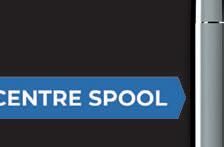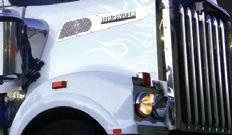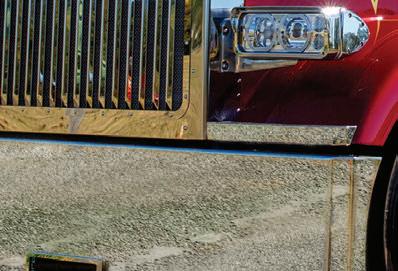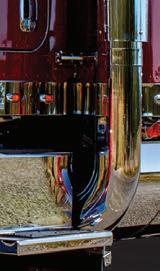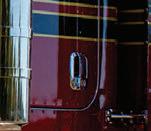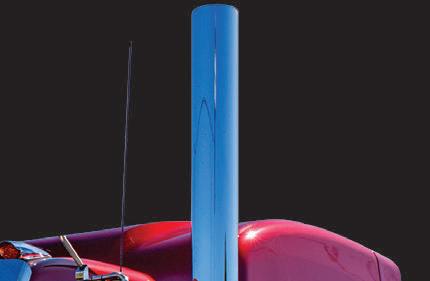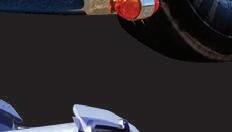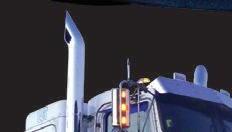



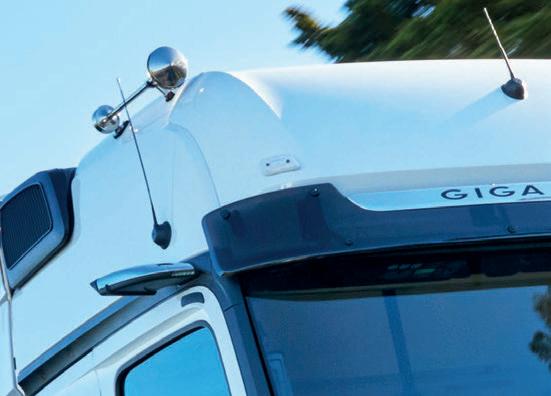
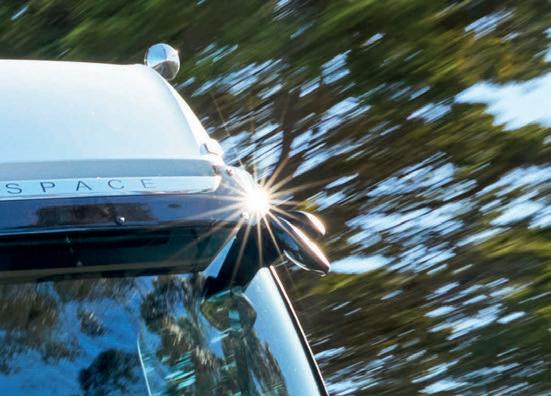

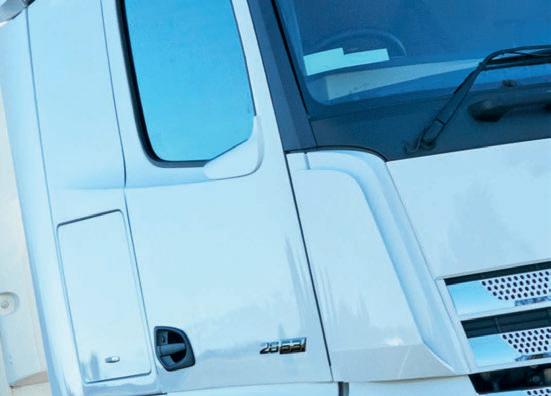
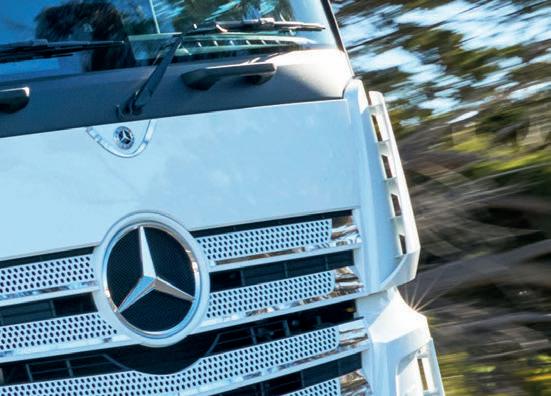
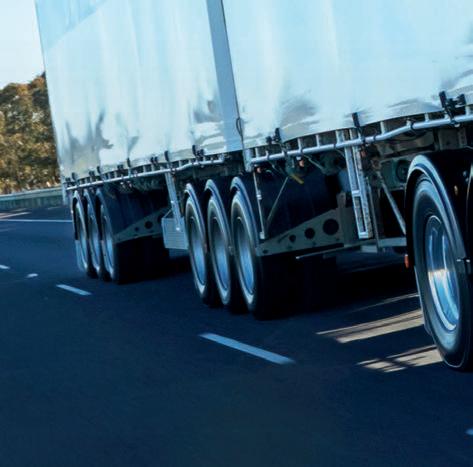
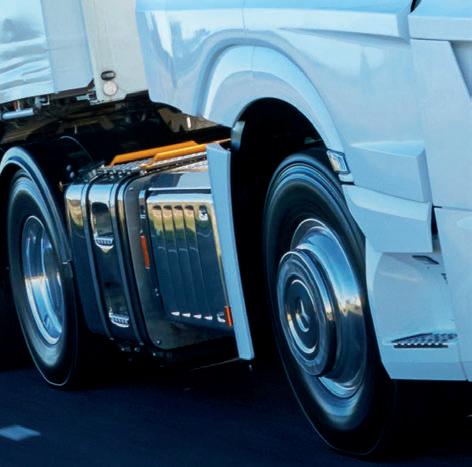
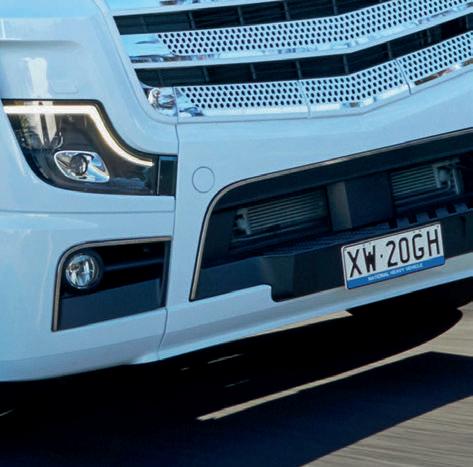


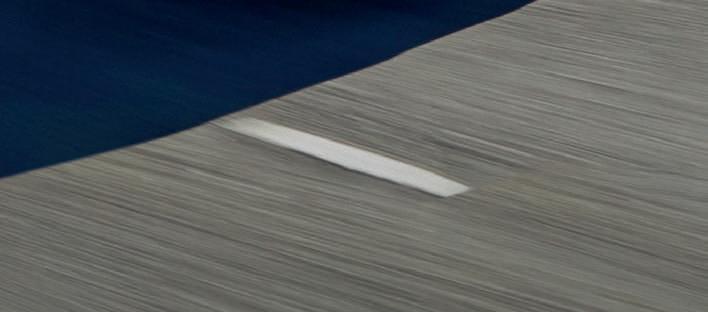

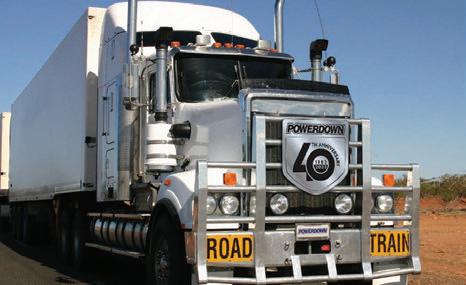



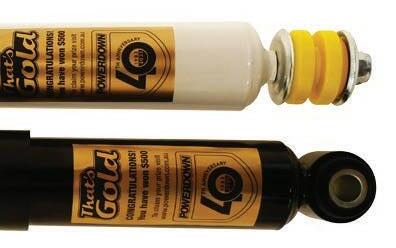
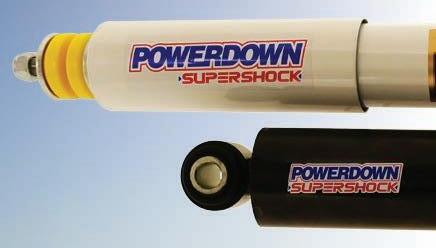



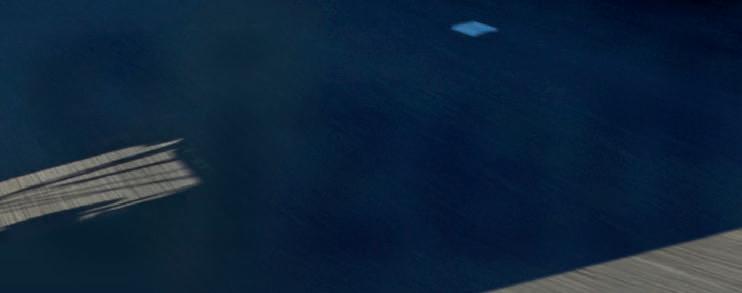

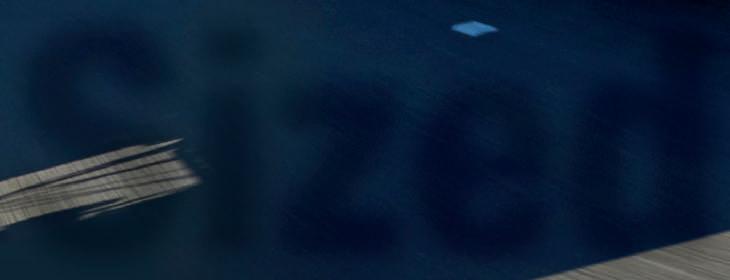





























AS troubling as the 2020 incidents were that led Peter Stoitse Transport (PST) back into court last month, it is not the same company that is operating today, stresses CEO Mike Munday.
PST was convicted and fined $110,000 in the Melbourne Magistrates’ Court on August 21 for workplace health and safety offences – and ordered to pay $6358 in costs –after two drivers were injured in separate milk tanker accidents in 2020.
The offending follows earlier convictions and a $490,000 fine against the family-owned and operated South Gippsland company in June 2022 after the 2018 death of tanker driver Rodney Lunson, 50, in an incident at Leongatha.
“All of its sad but I’m glad as a company we’re able to now start putting this behind us,” Munday told Big Rigs.
“This has been a cloud over us for a while. It was a tragedy what happened to Mr Lunson and these incidents were terrible on so many levels for the people impacted by them, as well as our other employees.
“Peter Stoitse Transport and the Stoitse family acknowledge
for our leadership team to training for our drivers to improved technology and equipment.
“We are very confident in how we operate and in all of our safety process and policies and procedures, and have a very strong focus on our employees and providing assistance to them for not only training, but also their mental health, and any other support that they may need.”
PST has pared back the operation and today focuses mostly on general freight. that there were errors in the way were operating and conducting business, and that led to significant changes.”

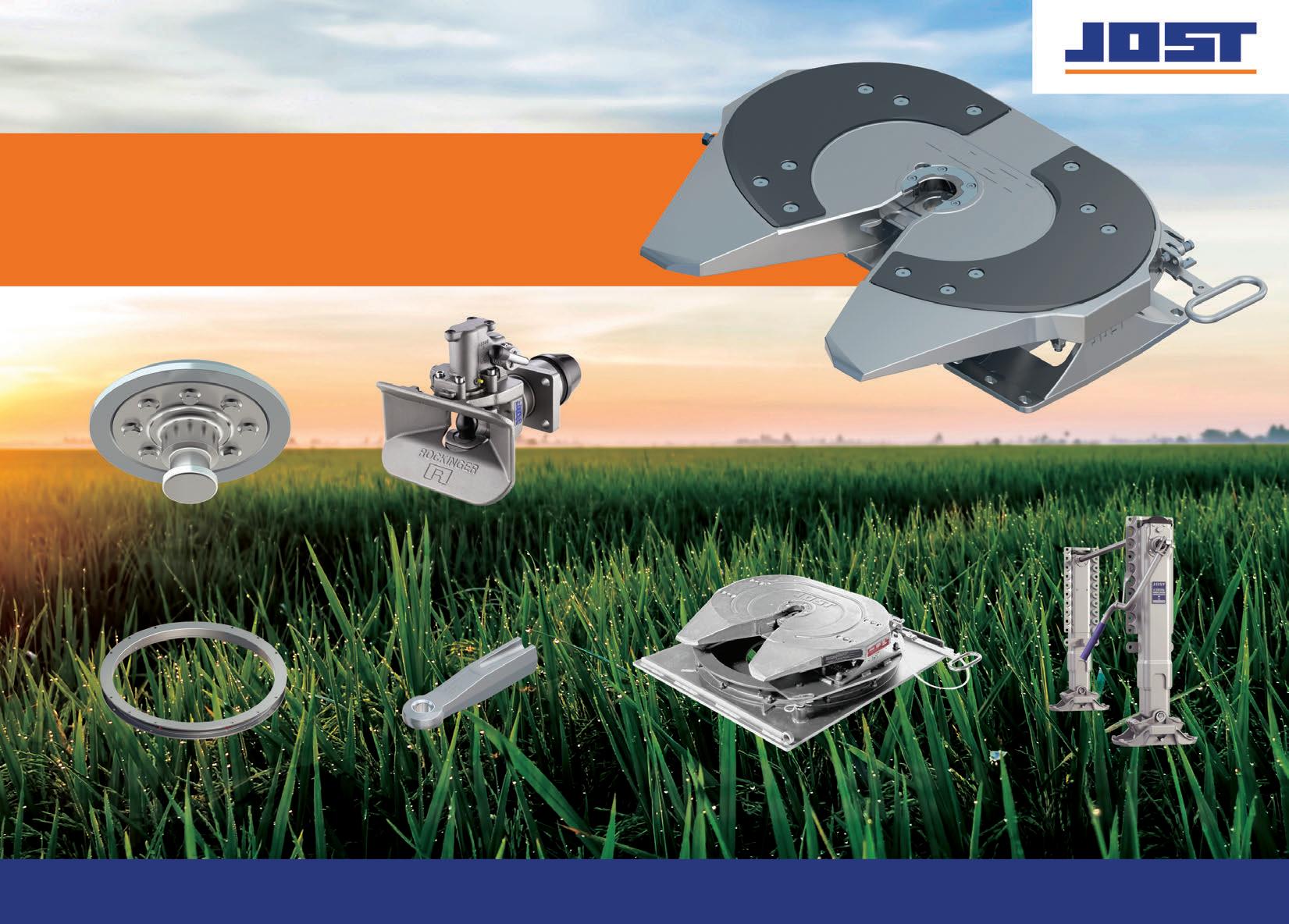
Munday said he doesn’t agree with the statement made by WorkSafe Victoria executive director of health and safety Narelle Beer that the company had not drawn lessons from its “previous failure” after the latest fines and charges.
He said the company simply grew too big too quickly, experiencing “unmanageable” growth for a number of years without the right people in place to manage that properly.
After the 2018 tragedy, he said changes were made but admits they weren’t as effective as
they could have been.
In the latest prosecution, the court heard that a truckie raised issues with a tanker he was to drive in February 2020, despite the vehicle being cleared by the local service provider and his supervisor.
While driving in Poowong East, the driver realised the brakes were faulty and, as he attempted to slow, the prime mover and trailers drifted in opposite directions and jackknifed. The driver was taken to hospital with soft tissue and finger issues.
A few months later, another worker was driving down Korumburra-Inverloch Rd when the trailer suddenly began to
sway and the truck lost control before rolling into a ditch. The driver was taken to hospital with bruising and swelling to his foreman.
Today, Munday said PTS is a completely different operation.
It’s divested its milk division, transferring the operations and equipment to McColl’s Transport, and pared back the fleet from 120 to 40 trucks focused almost solely on general freight.

Most importantly, it’s invested heavily in safety and compliance since the 2020 incidents, said Munday.
“Well over a million dollars in safety and compliance, anything from leadership training
Munday said that PST had been audited by WorkSafe [Victoria] since the 2020 incidents – in 2021 and 2022 – and received positive reviews for all of its improvements with no improvement notices, or comments.
“We’ve completely changed the business and these fines won’t impact our business, or deter us, because what we’re doing now is above the industry standard.
“From the Stoitse family perspective, after these incidences they could have closed the doors and moved on, but they decided to continue operating and reform the business and to evolve.
“They have made some significant changes, at a significant cost, in order to continue to be an employer in South Gippsland.”
 BY JAMES GRAHAM
BY JAMES GRAHAM
A LEADING caravanners’ advocate has taken to his popular social media page to remind motorists to show truckies more respect at designated rest areas. Writing on his popular Truck Friendly – caravan road safety program Facebook site, administrator Ken Wilson was reacting to a picture

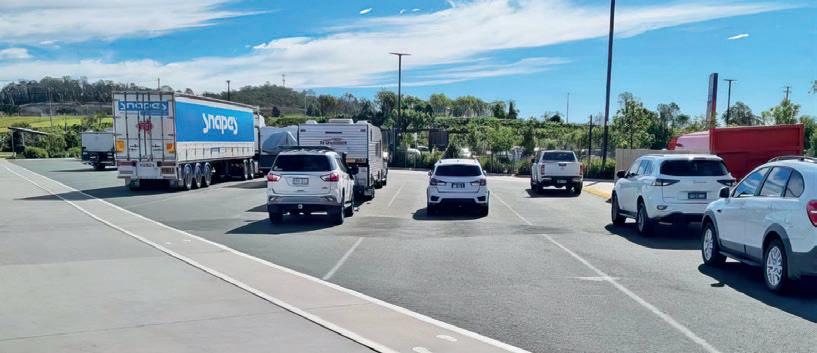
that truckie David Oxley first shared with the On the Pads Queensland Facebook group. Oxley also agreed to share the picture with Big Rigs.
In the shot, taken at bp Caboolture northbound on August 13, all the B-double slots on site are taken up by caravans.
“Couldn’t even get a park,” Oxley wrote. “No wonder caravans are not popular with truck-


ies – especially when it comes to us doing things right by the book to avoid fines.”









Oxley said he sent the same picture in an email to bp but has not heard back.
Wilson, meanwhile, told his 23,000 Facebook followers that if caravanners want respect, and to be treated with respect by other road users, they need to earn it.
He says the photo clearly shows the lack of “courtesy, respect and consideration” that some caravanners and motorhome drivers have for other road users.
“The selfish and inconsiderate behaviour of the drivers in the photo is unfortunately a very common problem,” Wilson said.
“With September school holidays only a few weeks away, please stay out of truck parking bays. Do not park in truck turning circles, as they need space to turn, so we can all hopefully have a good day and take a break from driving.”
Wilson also told his followers not to be surprised if someone leaves a note on their windscreen if they parked their caravan or motorhome in a bay designated for trucks.
“Don’t be surprised if a truck parks in front of you blocking you in.
“They may not legally be allowed to drive it for several hours, so may not be able to

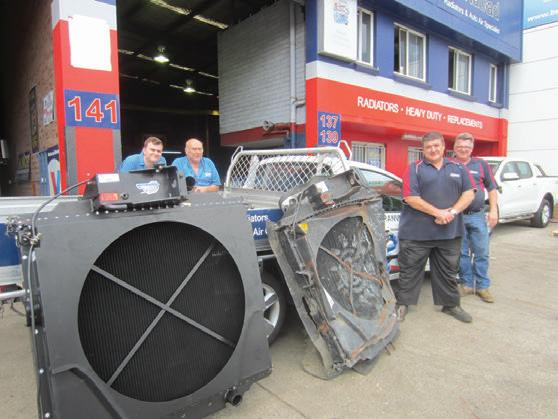
The situation wasn’t much better for Oxley a week later at the Caltex in Traveston, Queensland. all to see your lack of consideration for others. These are all suggestions and actions taken from the comments to the article in ‘On The Pads’.
pure laziness and incompetence.”
move the truck once parked so you can be stuck there for some time.
“Do not be surprised if someone yells out in the roadhouse restaurant or over the PA asking the caravanners to move their vans and embarrassing you. You are in the wrong.
“Don’t be surprised if a frustrated truck driver posts a photo of your rig on social media for
“We all agree there are not enough parking and rest areas, and the governments and corporations need to do more, however it does not excuse bad behaviour.”
Oxley, who travels between Brisbane and Cairns on a weekly basis, told Big Rigs that the problem is by no means limited to bp Caboolture.
He also sent us a picture of his battle to find a spot at the Caltex (formerly Puma) at Traveston this weekend.
“There was a separate area for caravans at both bp Caboolture and the Caltex Traveston that was half-empty,” Oxley added.
“I just think it comes down to
Some followers of Truck Friendly – caravan road safety program pointed out that there needs to be more respect shown by all of those sharing the road.
“Parking is not behaving badly,” wrote Erika Vorlicek after we first shared the story at bigrigs.com.au.


“It is also necessary for caravan drivers to do so to take a legally required break. So where exactly are the alloted caravan parks?
“Also, as the daughter of a long list of truck interstate truck drivers, don’t get me started on truck drivers behaving badly stories! FGS!
“It’s posts like this that create animosity between road users. Shame on you.”
Big Rigs has approached bp and Caltex for comment.
THE SELFISH AND INCONSIDERATE BEHAVIOUR OF THE DRIVERS IN THE PHOTO IS UNFORTUNATELY A VERY COMMON PROBLEM.”
KEN WILSON
WA’s peak trucking body welcomes the fast-tracked 2023 review of the National Freight and Supply Chain Strategy but isn’t pinning its hopes on it for tangible fixes.


Rather than wait for results from the federal government’s review, now brought forward from the scheduled overhaul in 2024, Western Roads Federation CEO Cam Dumesny says the industry is now on the front foot in a bid to off-set potential issues.
As WA heads into another fire/wet season, Dumesny says transport is already operating with “one arm tied behind our backs”.
“The Perth to Darwin freight route will be in limp mode as we still don’t have a bridge and come the wet season the low-level [Fitzroy] crossing will be under water,” Dumesny said.
“We have a briefing session for industry next week on the upcoming risks for this season, so that companies can begin to work with WA clients to assess the risk and put plans in place.”
Dumesny believes that
the current national strategy, first hatched by the Coalition in consultation with state governments and industry, has delivered “nothing but a bright shiny brochure”.
“The assessment is welcome, and yes we need a logistics systems approach, but we are fast losing confidence in the review, given its lack of achievements.”
The review of the National Freight and Supply Chain Strategy has commenced, following agreement with state and territory infrastructure and transport ministers.
Federal Transport Minister Catherine King says the review will ensure the strategy remains “fit-for-purpose” for the Australian freight and supply chains industry.
“We know this industry has experienced unprecedented and compounding disruptions over the past four years including a global pandemic, extreme weather events, geo-political tensions, skills shortages and more,” King said in a statement.
“The review is a critical opportunity to take stock

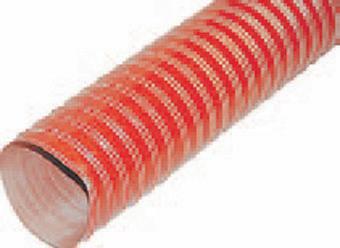
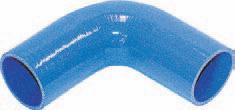
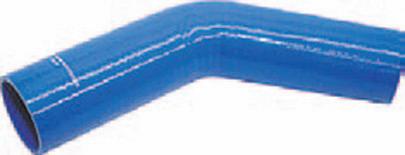

of what has changed and what has been achieved since 2019. It will help build a more effective strategy that is better equipped to address Australia’s growing and changing freight task.”
The review will assess if there are gaps in the strategy’s goals and identify priorities for the next five-year National Action Plan.
“Stakeholder engagement will be an important part of identifying these gaps and priorities,” King added.
“The review will undertake stakeholder consultation and consider public submissions. In late August, I am looking forward to hosting a round table to hear directly from industry how the strategy can be strengthened.”
Ministers will consider the recommendations of the review by the end of this year.
To have your say, visit infrastructure.gov.au and search, Review of the National Freight and Supply Chain Strategy Underway.
Submissions close on September 29.
OVER the next 12 months, a total of 123 girders will each make the 400km journey from Newcastle to Dubbo for the construction of the $220.2 million new Dubbo Bridge.
With piling work progressing well for the 660m bridge, which will run across the Macquarie River and open to traffic in 2026, the precast beams to support the new bridge are being transported by road between now and August 2024 – the first of these have now been delivered on site.
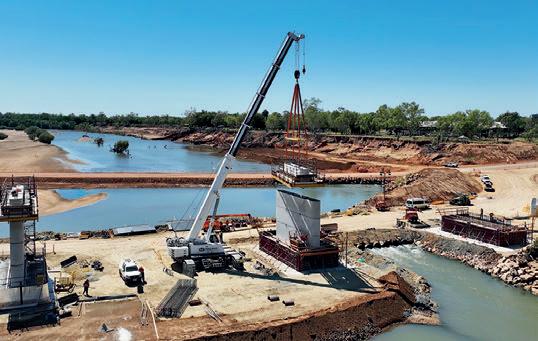
The girders weigh 60 tonnes and are 34m long. Due to their size, only one girder fits on each truck and Goldsprings Heavy Haulage has been tasked with the moves.
Once a truck makes the
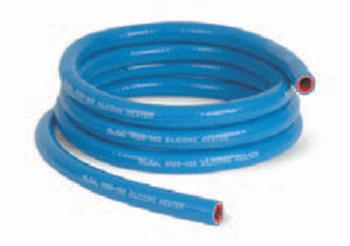



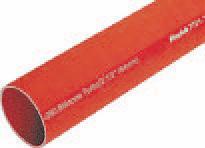
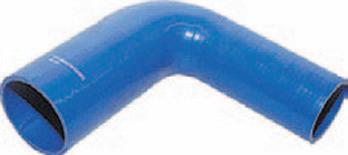
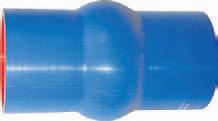
journey from Newcastle, travelling west along the Golden Highway before arriving in Dubbo, a crane is used to retrieve the girders from the trucks and place them into storage.
“There are several small bridges and tight turns to navigate along the route, including at Dunedoo where the pilot vehicle needs to stop traffic to coordinate getting the load around the tight corner safely,” said Transport for NSW regional director west Alistair Lunn.
Each convoy consists of a truck between 38-45m, accompanied by escort vehicles.
“At this stage, we expect to be placing the girders onto the bridge structure from late 2023, weather permitting,” added Lunn.
TRUCKIES have reacted to news of a NSW parliamentary inquiry into the pressures they’re under with a lukewarm response.
Writing on our Facebook page in response to the initial announcement, most were dubious about the upper house probe – chaired by Greens MP Cate Faehrmann – actually heading anywhere.
One reader also wondered why the NSW didn’t just read Senator Glenn Sterle’s detailed inquiry into the Importance of a viable, safe, sustainable and efficient road transport industry tabled in 2021.

“Didn’t Senator Sterle get all this covered in his inquiry. So why are people from other parties spending money on reinventing the wheel?” they wrote.
Faehrmann’s office did not return a call from Big Rigs for more comment.

According to a media release announcing the investigation, the inquiry will examine the extent, nature and impact of pressures on heavy vehicle driver practice
and how regulatory obligations are observed.
In particular, the committee will investigate how these pressures contribute to over-height vehicle incidents and the use of rest areas and other fatigue management practices, the statement said.
“The committee is also interested in exploring the impact, effectiveness and enforcement of current mechanisms to address the pressures on heavy vehicle drivers, including training and education requirements, penalties for overheight vehicle incidents, and the availability, suitability and accessibility of heavy vehicle rest areas in metropolitan Sydney and rural and regional New South Wales,” Faehrmann added.


“In addition, the committee will consider the capability for new and emerging technologies to assist in reducing pressures for heavy vehicle drivers.”
Simon O’Hara, CEO of Road Freight NSW, and a member of the NSW overheight taskforce, said he un-
derstands truckies’ frustrations and scepticism around what impact an inquiry will have.
But he urges drivers to use this unique opportunity to have their say.
He said this is the first inquiry of its kind in NSW in his eight years in his role.
“It’s time – freight deserves to get rest areas, just on the basis of the work they did during Covid,” O’Hara said.
“The community, particularly white-collar workers wouldn’t tolerate it, and neither should truckies.
“We can’t approach this from the position of cynicism. We have to be constructive; we need to get in there and put our submissions forward and ensure that our voice is heard.”
O’Hara acknowledged that Senator Sterle had done some “awesome work” in a similar vein with his 2021 report.
“But in NSW the focus hasn’t been on these sorts of issues, at least in my time. We need to approach this with a constructive attitude
SYDNEY
510 Victoria Street, Wetherill Park NSW 2164 Ph. 02 9756 6199, email: isri@isri.com.au, www.isri.com.au
BRISBANE
3/120 Gardens Drive, Willawong QLD 4110
because if we don’t, it may be another eight, 10, 15 years before we get the opportunity to try to address it again with the political class.”
The inquiry has stated it has a focus on the issue of over-height trucks, and how pressures may be contributing to the spate of recent breaches, and although O’Hara believes the inquiry is much broader than that, it’s essential this issue is addressed.
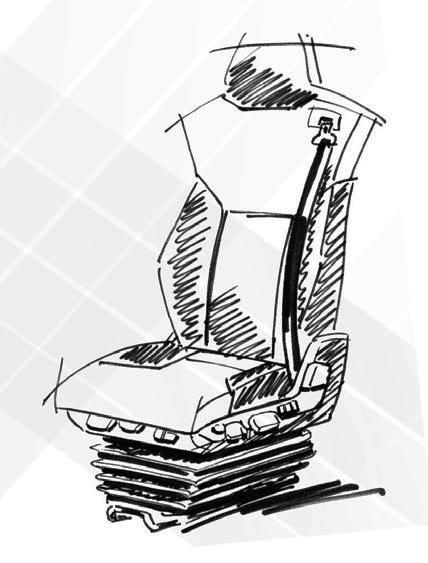
“The community is not going to tolerate it and we need to, as much as possible, get this issue to the forefront so we don’t have the [Ray] Hadleys of the world castigating truckies over what sometimes may, or may not be, an overheight truck.”
For a submission form, further information about the inquiry, including the terms of reference, visit parliament.nsw.gov.au/committees/inquiries/Pages/inquiry-details.aspx?pk=2980.
Submissions close on September 18.
“I’d encourage truck-



RFNSW urges drivers to use the parliamentary inquiry to have their voices heard.
ies and operators to either make submissions, or contact us and we’ll incorporate aspects of what they would like to raise,” O’Hara said.
“I think we’ve got to approach it holistically so that we encapsulate everything from industry and we don’t go off on our own niche areas, and we end up with points being raised from silos.
“It’s not about attributing blame, it’s about resolving these issues in a fundamentally constructive way.”
The others on the parliamentary committee are: Sam Farraway (Nationals), Mark Banasiak (Shooters, Fishers and Farmers Party) Anthony D’Adam (ALP), Dr Sarah Kaine (ALP), Bob Nanva (ALP) and Natalie Ward (Libs).

Ph. 07 3275 2044, email: sales@isribrisbane.com.au, www.isribrisbane.com.au
MELBOURNE
Unit 1/569 Somerville Rd, Sunshine West VIC, 3020
Ph. 03 9311 5544, email: sales@isrisunshine.com.au, www.isri.com.au



MACKAY , Ph. 07 4952 1844, email: admin@isrimky.com.au, www.isriseatsmackay.com.au
PERTH R , WA 6106
Ph. 08 9362 6800, email: info@mmtisri.com.au, www.mmtisri.com.au
DARWIN
Mobile Sales and Service



Ph. 08 8927 0986, email: info@isridarwin.com.au, www.isridarwin.com.au
ADELAIDE
TAMDELE, 21 Hakkinen Road, Wingfield SA 5013
Ph. 08 8347 1222, email: sales@gitsham.com.au, www.gitsham.com.au
NEWCASTLE/HUNTER VALLEY
Unit 2/13 Hinkler Ave, Rutherford NSW 2320
Ph 02 4932 0600, email: sales@hvss.com.au www.isri.com.au
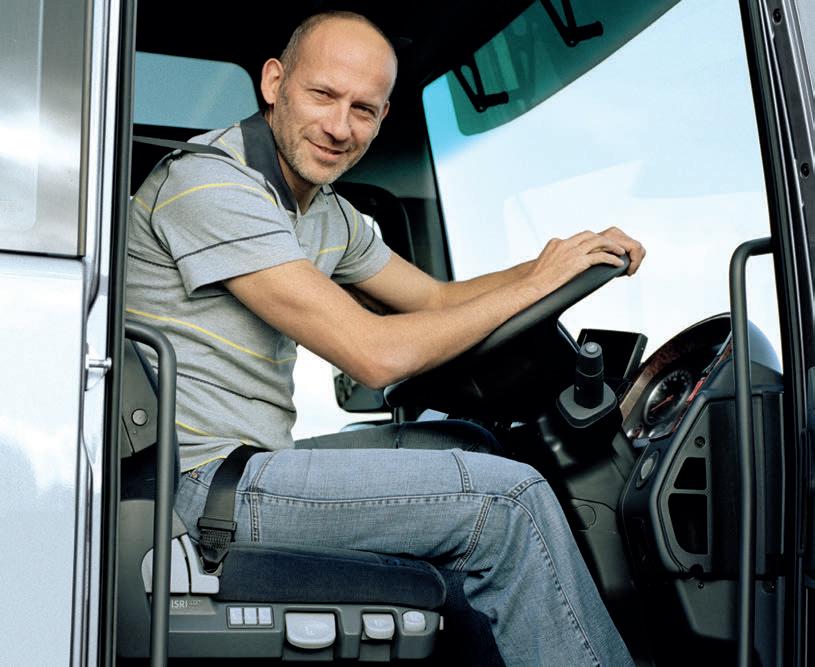
ALMOST every day of the week Queensland pensioner Wes Walker still pulls into the Gatton hook-ups in his trusty black Chevy Silverado to police the parking and chat to truckies.
He’s no longer cleaning the two popular portaloos on site that he campaigned so tirelessly to get due to the prohibitive costs.
But more than a year on since they arrived in August 2022, Walker still wants one question answered by Queensland Transport Minister Mark Bailey: Where’s the permanent solution he promised to investigate at the time?
In a statement last year, Transport Minister Mark Bailey told Big Rigs – and all the other media that picked up on our story –that he thanked Senator Glenn Sterle for his advocacy and vowed to work on providing something grander in terms of facilities for truckies on site.

“I’m committed to working with Senator Sterle,

Transport and Main Roads and the heavy vehicle industry to find a permanent solution at the site, and have commenced discussions with my department on how best to do this,” Bailey told us.
When approached for a progress report this week, it seemed that the wind had gone out of Bailey’s sails. The Department of Transport and Main Roads (TMR) did not respond for comment when we asked for an update.
Walker is mystified as to why it all seems so hard for the state government. He’s aware of concerns around potential contamination to University of Queensland’s neighbouring agricultural fields, but isn’t buying that argument.
“The permanent solution is one massive portable one, not these part-time things,” Walker said.



Earlier research by Walker revealed that it would only cost $200,000 to have a larger unit delivered to the site, complete with a urinal, three toilets and a shower.


“They’re self-sufficient still, we just had to plug into power on the Gatton side of the bay for the hot water and lights.”
Meanwhile, Walker is happy to report that the hygiene of the two portaloos is at least being maintained at a pleasing level by the local crew that services them three times a week.
Carefully selected, TRAIL-LINK’s range of accessories will ensure safe and reliable complementary products for trucks and trailers:
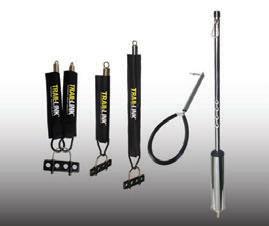
Universal Plug catch
*NEW* Back up/Reverse alarms in 3 sound options (Beep/White-Noise/Beep with Auto-adjust for ambient noise)
Suzi hanger suspension springs
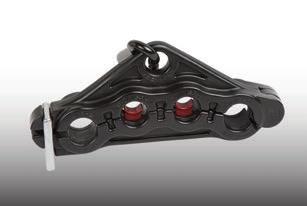
4-hole clamps
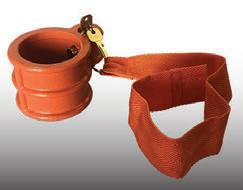

*NEW* Cab mount slider bars in 4 lengths

Pogo sticks
King Pin safety lock
“Everyone’s being very respectful of what they’ve got there, but we need to provide something better. There’s no reason why we can’t move forward to a bigger unit that has lighting at night, that’s the big thing.





“As we come into summer, sitting in a portaloo in the middle of a paddock ain’t going to be pleasant.”
BY SPY ON THE ROADTHE Fishery Falls rest area which is located 39km south of Cairns beside the Bruce Highway should be one of the best for truck drivers.
After all, it has two unisex toilets, tables and chairs and signs advising most parking areas are for heavy vehicles only.
Just across the road is the popular Fishery Falls Hotel where anybody who stops there can wander over for a meal or cold soft drink.
Despite all these facilities, the rest area is not a great place to stop for anybody wanting to answer a call of nature.
Because the toilets’ interiors are mostly dirty, they smell, and generally are swarming with blood sucking mosquitoes or

other disease carrying insects. It is because they are what truckies describe as “hole in the ground” toilets.





These are the ones with no flushing system and just a deep hole into which urine or waste drops into chemicals.
Most of the smell is a result of people, who stop there and not truckies, who leave the lid of the toilets open.
I have been there at least six times in the past year and it has always been the same.
It is such a shame considering many truckies tell me we need more rest areas and to find one which ticks most boxes, and has this problem is disappointing.
It certainly isn’t any fault of the poor people who have to clean the toilets.

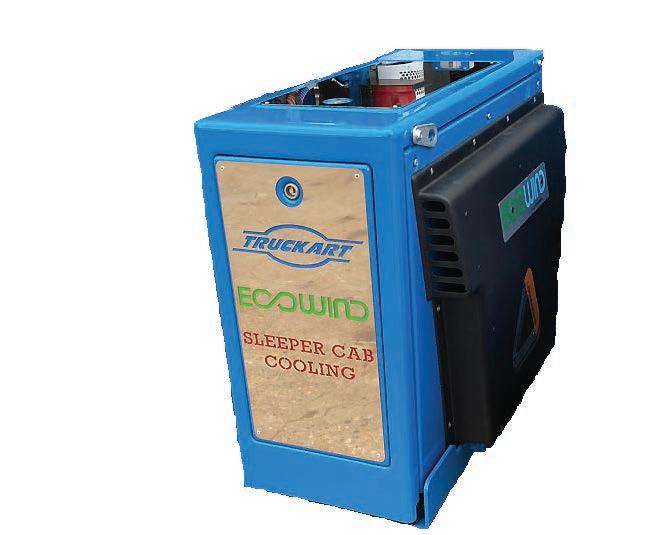




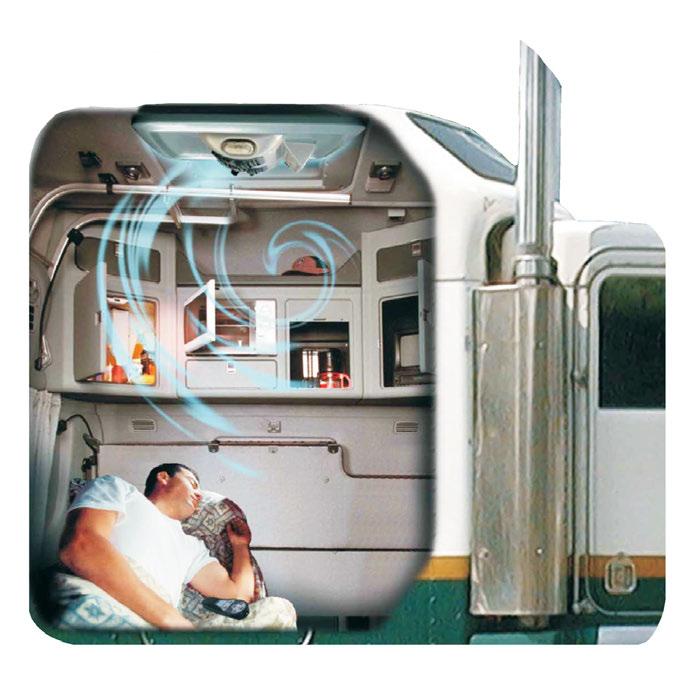






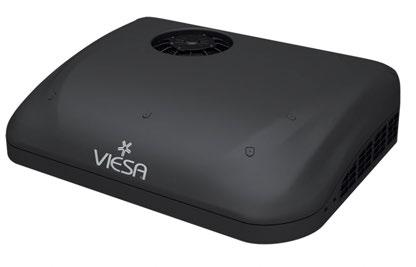


I HOPE I’m wrong about the NSW parliamentary inquiry into the pressures on truckies.
Like many of you, I’m extremely sceptical about anything good coming out of it. The industry is drowning in expensive reports and reviews that go absolutely nowhere, so why is this going to be any different?
If a few unfortunate operators hadn’t had the misfortune to drive into Sydney tunnels over-height of late - and hold up angry commuters on their way to work - this inquiry wouldn’t have happened at all.

They don’t care about truckies. Look at the way they treated you during Covid. All they want to avoid is another serve on the Ray Hadley radio show and get re-elected. Answer? Hold an inquiry, fire out a few well-meaning media releases and stuff the results in the draw right next to Transport for NSW’s two recent ‘Have Your Says’ on where rest areas in the state should go.
Too cynical? It’s hard not to be from where I sit.








WOULD YOU LIKE TO CONTRIBUTE TO READER CORNER? EMAIL US AT EDITOR@BIGRIGS.COM.AU
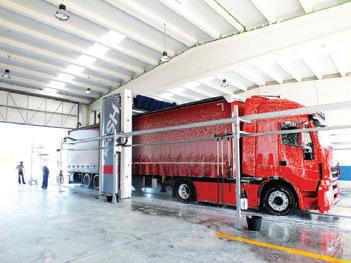
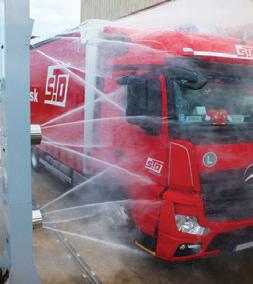
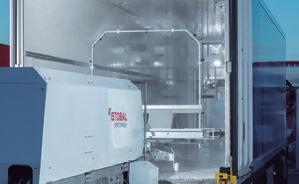




OUR cover story in the last issue on safety crusader Rod Hannifey drew plenty of support for the loudest voice for truckies in Australia today.
Thank you Rod for all you do,” wrote Ken Wilson of the Truck Friendly – caravan road safety program. “You certainly

do not get paid enough for all the lives that you would have saved through you advocacy and hard work to help gain safer roads and facilities for the trucking industry drivers. Stay safe mate.”
Greg Jack Grabham added: “Great work Rod.”
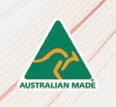
TRUCKIE Trevor Warner’s suggestion of using the Derrimut Grassland Nature Conservation Reserve bordering the Western Ring Road to alleviate the chronic parking problem for Melbourne truckies was another hot topic online. Here’s an idea,” wrote Niell Graham, “Instead of towing
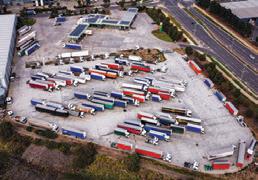


trucks, tow the cars that are left there for over 2 hours so when they knock off for the night, they will have to take their truck home and that way it will free up a truck space.”
“What a joke,” added Brad Simmonds. “It’s not BP or the local council’s responsibility to provide you with parking.”
The ultimate wheel finish, crafted without compromise.
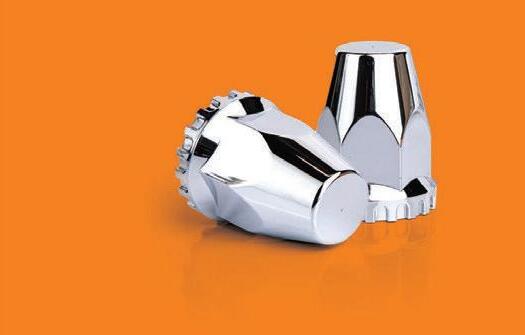
ArmourBrite combines superior performance with long-lasting shine for a premium, easy-clean wheel finish. Championing durability, protection and style, ArmourBrite is exclusively created by Armoury Wheels, for wheels that go the distance.

CHOOSE ARMOURBRITE



















































IF YOU ARE LOOKING FOR:



Ultra-quality drop forged wheels value Water, stain and UV resistant cleaning time gloss











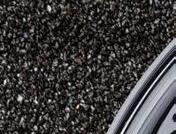




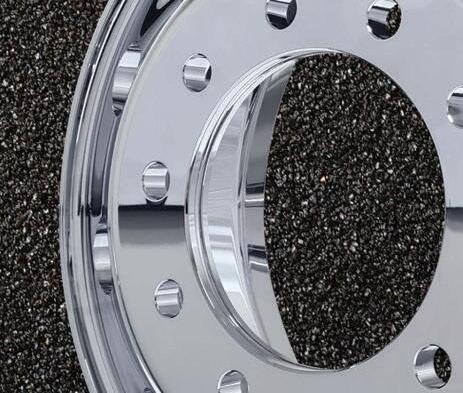






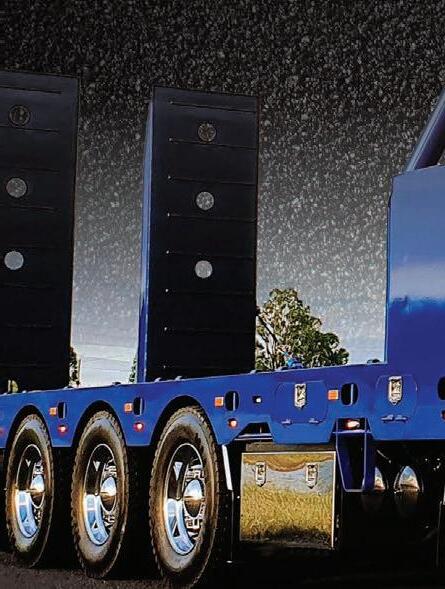




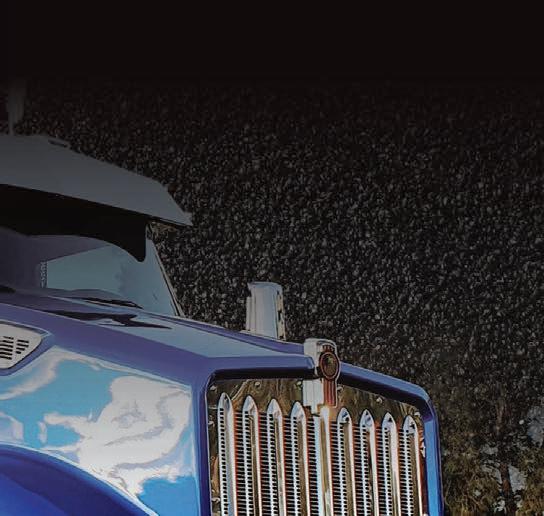




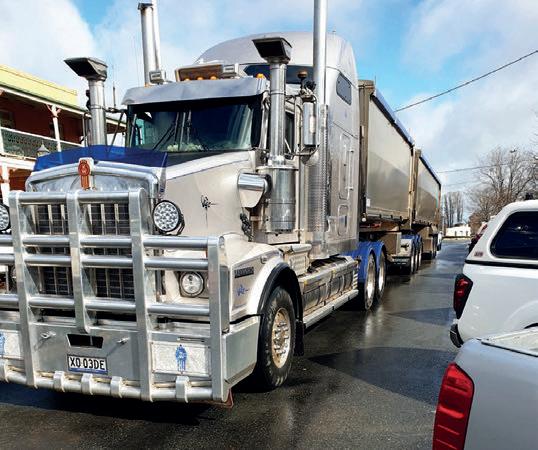 BY DANIELLE GULLACI
BY DANIELLE GULLACI
A RURAL NSW transport operator, who was recently fined $711 when he tried to avoid a town’s busy main centre in his B-double due to safety concerns, says he plans to take the matter further.
Brian Leihn runs a farm along with a transport business called Frontier Ag Solutions in the small town of Rugby in the Southern Tablelands region of NSW, where he’s been for the past nine years. He runs a fleet of three 26-metre B-doubles, which are used for livestock and tipper work.
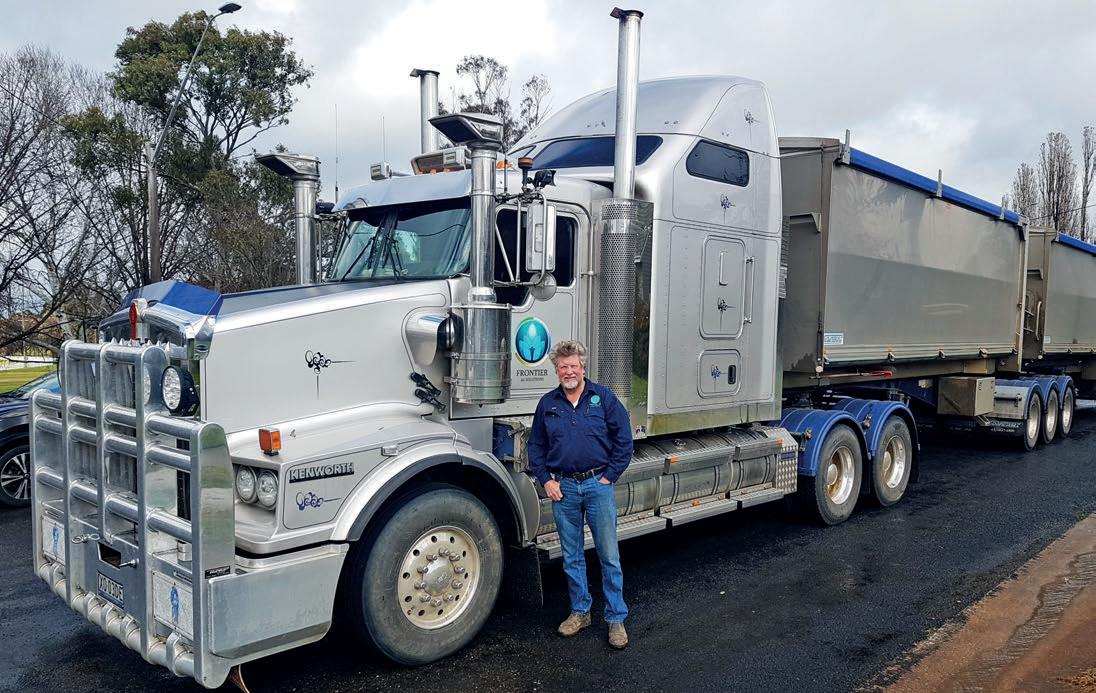
He regularly travels through Boorowa, a picturesque little town about 26 kilometres from his base.
The town’s main centre runs along Marsden street and Pudman Street, with the latter being home to an IGA supermarket, chemist, coffee shop and various other businesses.
With nose to kerb angle parking along Pudman Street, decorative rose bushes running through the centre of the road and high pedestrian traffic, including people unloading trolleys behind their parked cars, Leihn thought he was doing the right thing by avoiding it while travelling in his B-double.
Interestingly though, this section of road is approved for B-double use. When Leihn was recently pulled up for travelling along a section of nearby Brial Street, he says the enforcement officer advised he should’ve been travelling through Pudman Street.
“The only B-double route
in 150km going east from our base is Brial Street. I’ve been running this business for nine years and have never travelled down Pudman Street once. Both the manager at IGA and at the chemist said they’ve never seen a B-double on this road,” said Leihn.
“It’s a narrow street which has been made narrow due to an island with roses and flowers, and the fact that people have to nose in to park.
IMAGINE A -METRE F LL LOADED B-DO BLE COMING DOWN THAT S A MA IM M OF A METRE TO A METRE AND A HALF AWA FROM PEOPLE EMPT ING THEIR TROLLE S BRIAN LEIHN
“For the last nine years that I’ve been in this district, I have always used Brial Street, which goes onto the B-double route – no truck in their right mind would use Pudman Street.
“Imagine a 26-metre fully loaded b-double coming down that’s a maximum of a metre to a metre and a half away from people emptying their trolleys. And they can’t see you coming until they get out in front of the truck.”
Big Rigs contacted the National Heavy Vehicle Regulator (NHVR) for further information about the route.
“The approved route for 25/26m B-double access

Alcoa®

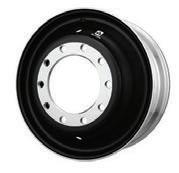

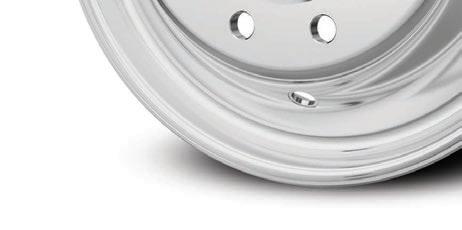
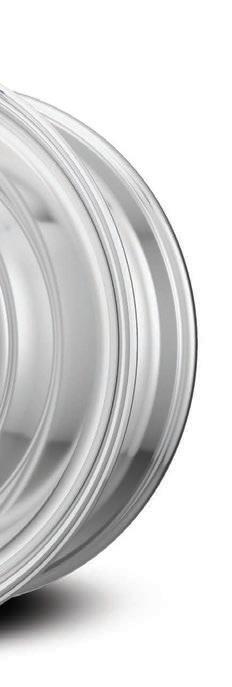

through Boorowa is Pudman Street, Court Street, Brial Street and Long Street as per the NSW Restricted Access Vehicle (RAV) maps and lists,” said the regulator.
While B-doubles are able to travel through the town centre on Pudman Street, the section that follows, which is near a school, is not an approved B-double route.
On Brial Street, only part of the road is approved as a B-double route. “Brial Street is not an approved B-double route from Murringo Road to the intersection of Court Street as per the NSW RAV maps and lists,” advised the NHVR.
Leihn says he was pulled up recently. “They pulled me up on the side of the road and said, ‘Look I’m very sympathetic, I know the street, I’ll talk to my boss before I write this up.’ He goes back that night and talks to him. I asked if anything was going to be done about this road. He said you’re off route, go talk to the council, government or the NHVR.
“I explained why I don’t use Pudman Street – because it’s dangerous for pedestrians. You’ve got people getting in and out of cars, people backing out in front of trucks.
“They’re basically taking
955 191
us from a nice wide open street with no shopping centre or businesses there, and saying you now have to go down the main street past the IGA, straight through the heart of town.”
He continued, “I came through there last Friday afternoon and it’s really busy then. There was a lady standing at the back of her vehicle, she opened the boot






up and realised there was a truck coming past and had her mouth wide open in shock. It’s a 40km/h street and I was doing 10-15km/h. If anyone backs out in front of me, I can’t stop.”




Sue Corcoran is co-owner of the Boorowa Pharmacy on Pudman Street. She explained, “We have nose to curb angle parking along the street, so there’s

elderly people backing out with their cars. I can see why it wouldn’t be a good idea to have these bigger trucks going through here.
“I agree with Brian that it’s not great to be driving down here in a B-double during business hours. It’s quite narrow, there’s not a lot of room and the street is divided with rose gardens in the middle of it.”
Corcoran added, “I understand Brian’s annoyance at being fined. Boorowa is a small town and there’s really only two blocks in the town where there is significant traffic, so it is the right thing to support him.”



The town of Boorowa falls under the Hilltops Council, which Leihn has approached about the issue.
When contacted for comment, the council said, “We’ve taken notes of his concern. This is a route that’s been on the NHVR register for many years. We will have to look into this but it is a process.”

Leihn is now planning to start a petition in the hope of future change.

“I’m also taking that $711 fine to court. We’re going to make a video too of what it’s like to be standing at the back of your cars and have trucks coming down at you. Imagine a mother backing out with two little kids in the back seat. Who’s going to get hit first? And then there’s the trauma for the truck driver too. Imagine if they killed someone.”
A NEW project will see recycled plastics incorporated into asphalt as a performance enhancer at 10 sites across Victoria.
The RMIT University-led project is being supported by the Australian Research Council, Austroads and 10 Victorian councils.
The new roads will feature recycled plastic from consumer and industrial waste, including soft plastics.
According to RMIT, Australians generate 2.6 million tonnes of plastic waste each year and landfill space is expected to reach capacity by 2025. “This project is helping to address an urgent challenge.”
Project lead, RMIT associate professor Filippo Giustozzi, said the team will also produce best-practice guidelines on the use of recycled plastics in asphalt roads.
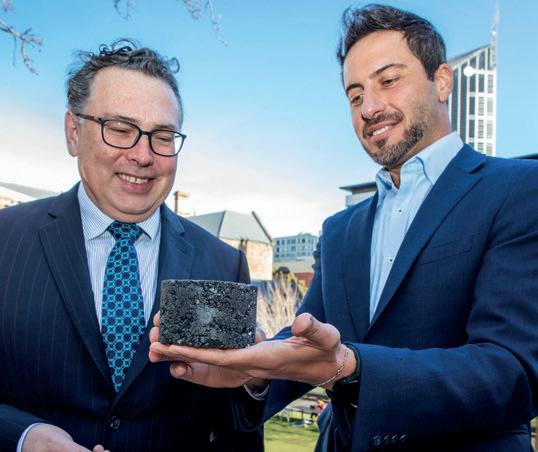
“These guidelines will enable local governments, which control 80 per cent of the nation’s roads, to begin widescale adoption of this innovative recycling solution,” he said.

The City of Melbourne and nine suburban and regional councils will each have sections of recycled road up to 900 metres long paved over coming months.
The 10 project sites will use an estimated 21,000kg of recycled plastic, but there
is the potential for this solution to be adopted more widely. “If Australia’s 537 local governments each used a small amount of recycled plastic in the many roads they resurface each year, then nationally we’ll have created a large end-market for recycled plastic,” he said.
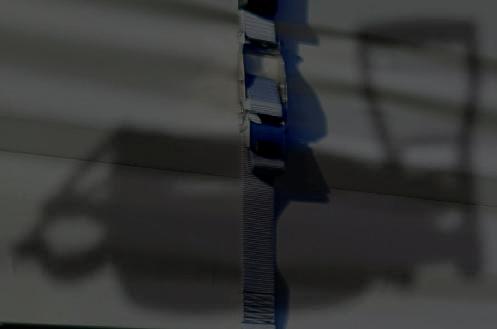
RMIT has conducted extensive laboratory studies for Austroads on the viability of the recycled plastic asphalt mixture, which it says proves it is a mechanically, chemically and environmentally sound alternative.
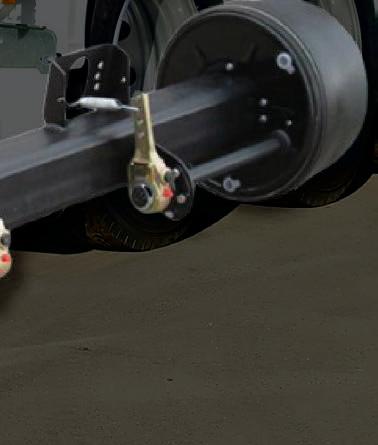

“The performance of roads can actually be im-







proved with the additions of recycled material, such as plastic and rubber, to be more durable against traffic and resistant against ageing,” Giustozzi said.
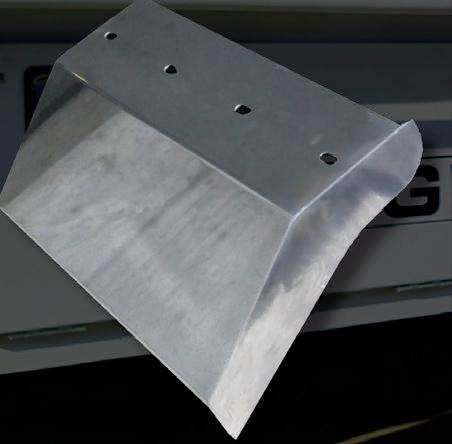

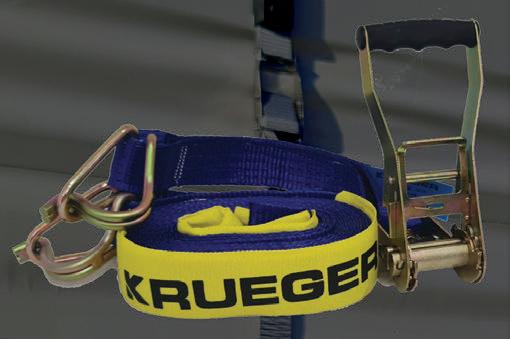
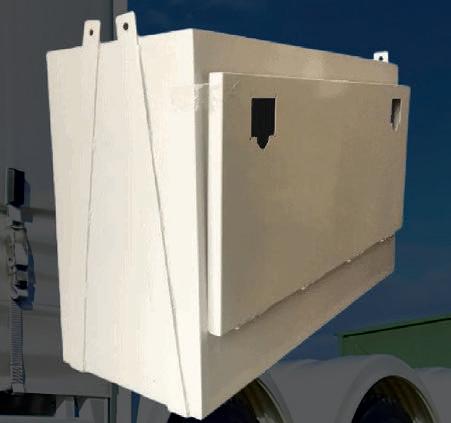
The team’s latest study found the recycled plastic asphalt mixtures had 150 per cent less cracking and 85 per cent less deformation under pressure testing than conventional asphalt.


Local government areas involved in the project are City of Melbourne, Banyule, Bayside, Moonee Valley, Hobsons Bay, Baw Baw, Latrobe, Casey, Mornington Peninsula and Wyndham.

“I’LL go and stand at the back of the truck with my boot at the end of the trailer. All you do is use the arrow up and down on the wheel and when the green line on the mirror lines up with my foot, you go left to right and the other side will also be set.”
ese instructions came from Mercedes-Benz’s Noel Gri ths who is riding shotgun in the new M-B Actros 2663 GigaSpace.


He wants me to set up the second-generation MirrorCam so I know exactly where the back of the trailer(s) will be. Above this green line are three others in orange which indicate 30m, 50m and 100m behind the trailer.
Looking at the setup that green line looks like it’s halfway down the length of the trailer. “So, try it,” says Grifths. “Back up to the fence behind us.”
I do, and I put the trailer within six inches of that fence! And I’m being cautious. You can put a trailer (or two, or more) smack bang up against a loading dock all by yourself with this system. Ok, I’m convinced. More on this later.
e Actros GigaSpace
Driver Edition was on display at the Brisbane Truck Show in May and attracted a lot of attention. So much so that it was sold well before the show was over. Now M-B has invited me to take the truck for a spin.
Climbing up into the cab I’m surrounded by truck luxury. e two high resolution tablet screens – one
behind the stitched leather wheel and the other slanted toward the driver are familiar, having driven a number of Actros’s over the years.
Apart from looking like they’ve been lifted from an S-Class sedan (and they have – with software designed for a truck obviously) these screens are, to my eye, the best in the biz, both in looks and the way they operate.
Fact is, you don’t need 30 di erent dials staring you in the face when this system will tell you all you want to know at any time. Instead of regularly scanning all those dials you can keep your eyes on the road.
e dashboard is a mix of shades of grey and a swathe of beige, split with a tasteful strip of dark timber veneer (you have other choices here) and it looks luxurious, especially with the two supremely comfortable, quilted leather armchairs for driver and passenger.
All the trays are rubber-faced so no sliding around of odds and ends.
ere’s a phone recharge pad atop the dash, cup holders of various sizes galore, USB-C, 12- and 24volt sockets and a work/ dinner table that folds out of the dash in front of the passenger seat.
A drawer in the lower centre of the dash is perfect for the log book with another open space beneath it. Between the seats is a decent slide-out fridge and space for a second. Behind them is, of course the bunk and, in this case a second above it with plenty of headroom above that when folded out.
It’s Euro so you’re not going to get a queen-size bed, but it is supremely comfortable with plenty of room for my girth to constantly roll around on. Switches for lighting and reading lamp are also in the bunk area.
e cab is nished o with a skylight, side window shade blinds and a curtain running around the perimeter.
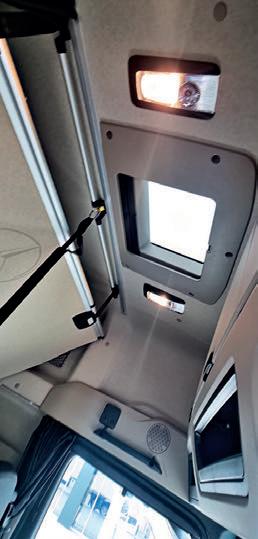
row the proximity key into a cubby, foot on the brake, press start and the 16-litre, 630hp, 3000Nm diesel purrs into life. I twist the right-hand wand into drive and the electronic park brake automatically disengages.
e truck knows that I haven’t moved yet so keeps some pressure in the system until I dab the accelerator, then the brakes automatically release and we’re on our way.
Now I’m using those MirrorCam screens placed on the A-pillars of the cab and the view is just brilliant in any direction as I peer through the glass. I can check the LH screen with barely a move of the head. Changing lanes, and those green and orange lines extend across the screen so I know that the truck behind me is more than 100mmetres away.
e cameras themselves are now 100mm closer to the cab, lessening the chance of damage. e advances over Gen-1 give a more normal view in the screens in that you see less of the trailer sides and still plenty of your surroundings – better than through glass mirrors in my humble opinion. ey’re heated of
course.
Active Driver Assist –level 2 automation – ‘drives’ the Actros for me, reading both lanes and keeping me in the middle.
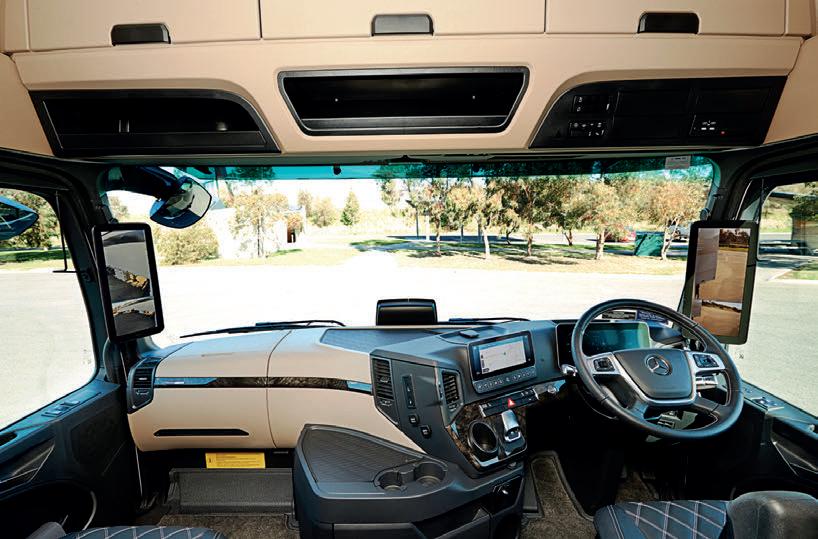
Push a button on the wheel, slide your nger across the OK button and you can reset a little to the left or right depending on your needs. Otherwise, its leave the truck to its own devices for most of the time.
Take your hands o the wheel and the truck will warn you and if ignored pulls itself up, unlocks the doors and activates the hazards. I’m surprised it doesn’t apply paddles in the event you’ve had a heart episode!
It’s wonderful this steering, as is the ride, the quietness and most everything in this truck. Alongside every safety system you could think of there’s also Predictive Powertrain Control system, which uses topographical information to enable the truck to make the best and most economical choice of throttle application and gear selection. is includes saving fuel by coasting for long periods.
e whole lot drives through M-B’s excellent 12-speed AMT auto. e 3-step intarder will haul you up quickly and in the event of an emergency there’s ABA which will pull the whole rig up as safely as possible.
Cruising through the ‘burbs is a breeze with the truck, under certain conditions, able to stop and start at lights, for example, without having to touch brake or accelerator.
e GigaSpace cab is taller - like I can’t reach the sunroof, taller – and allows for three huge front-mounted and internally lit cabinets above the windscreen, the middle containing the microwave. Below these are another couple of storage cubbies.
Whilst this doesn’t sound like a big deal, the fact is that space is at a premium in the Euros so a few inches here or there and any advance in ergonomics is appreciated.
Previously the microwave was situated above the bunk which meant having to lean over said bed. e move and the extra height means plenty of room for a second bunk and more importantly for the person occupying it, they won’t feel like they’re in a co n.
Unless you place the GigaSpace next to another Actros, you probably won’t notice the changes, but once inside you will appreciate them.
All-in-all this is one magni cent truck. It rides, drives and handles brilliantly, and will do everything within its considerable power to keep you – and by extension other road users –safe.
If you’ve never driven an Actros, or you have but it’s an older model, I urge you to go and try one. You won’t be disappointed!


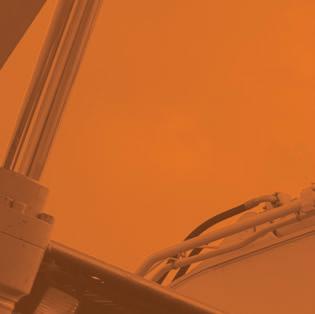


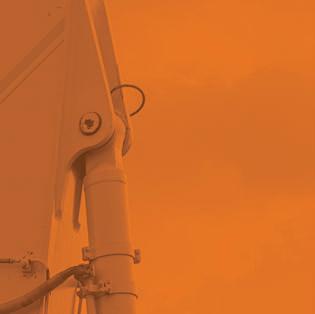


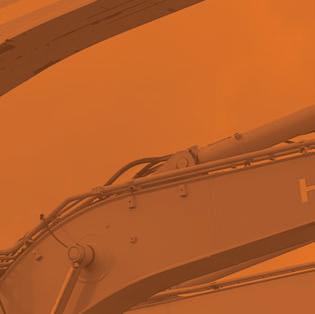
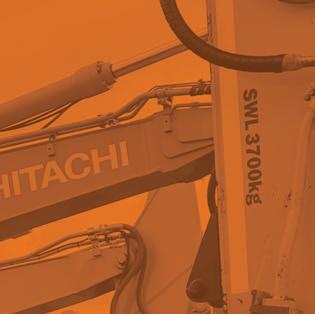


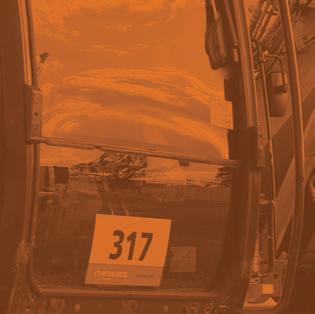








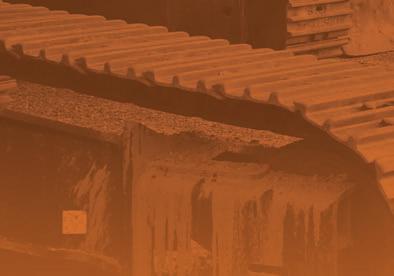

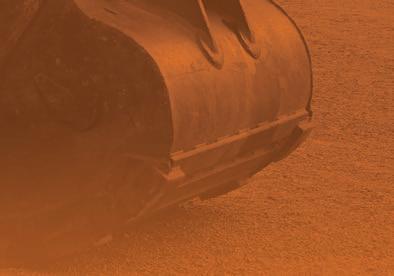









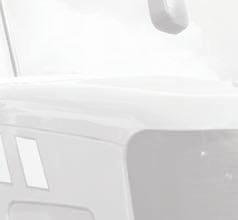


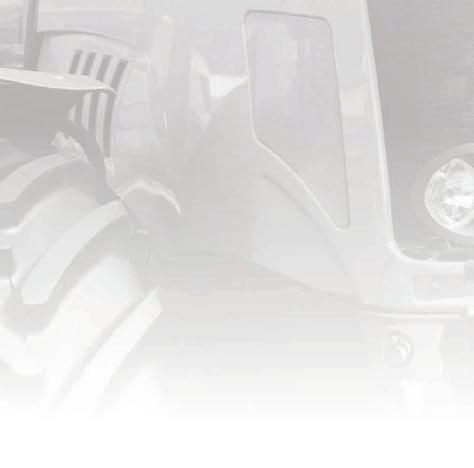
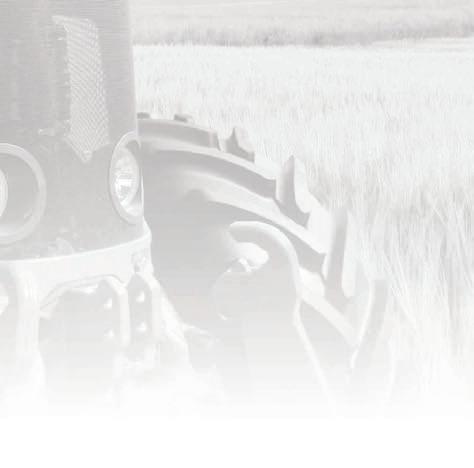

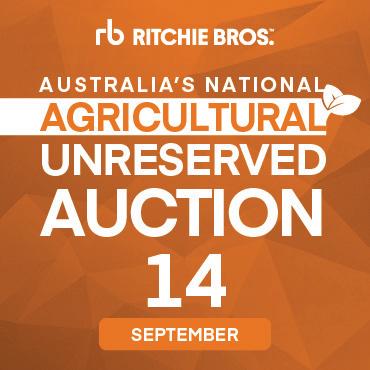

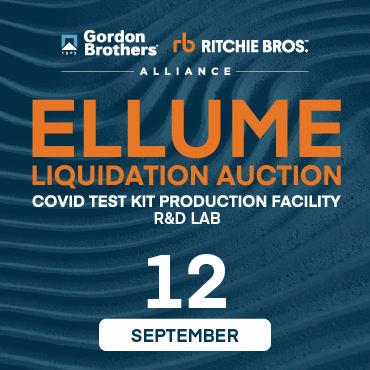

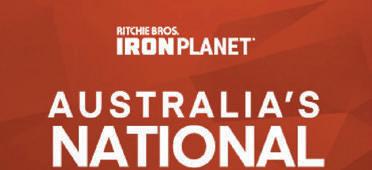





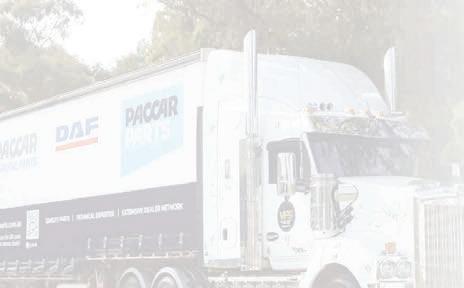









































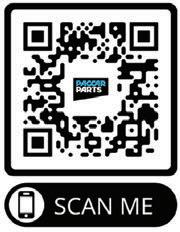






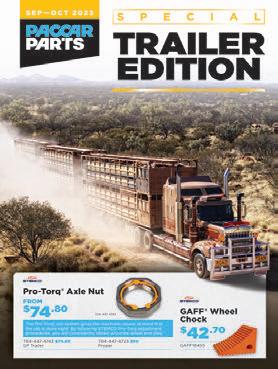




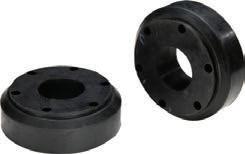





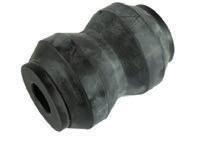
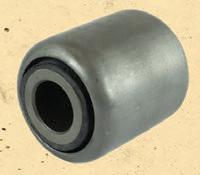
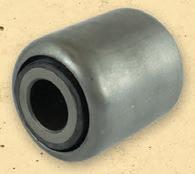















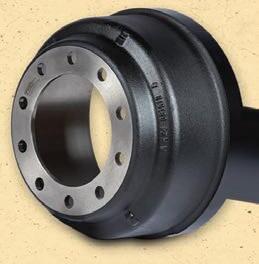















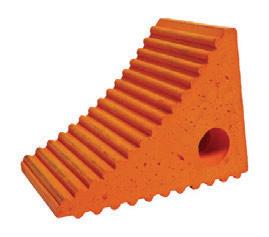

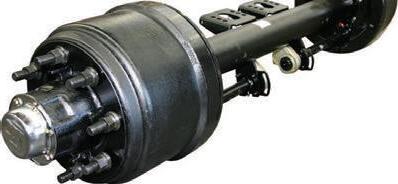






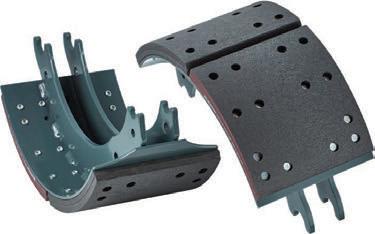















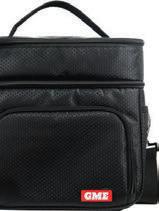

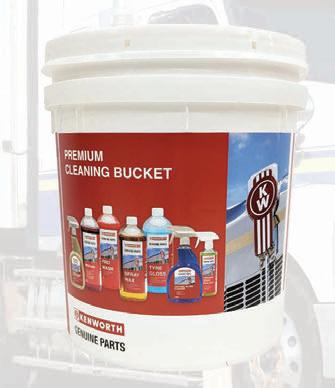





















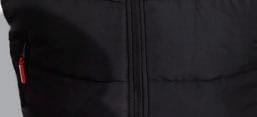


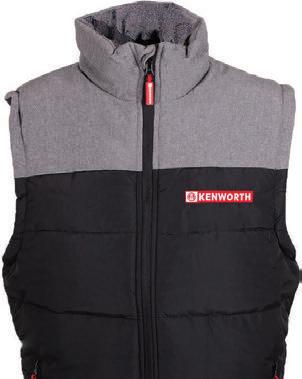



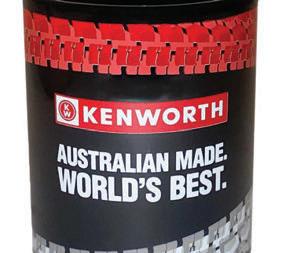


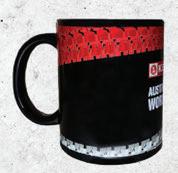

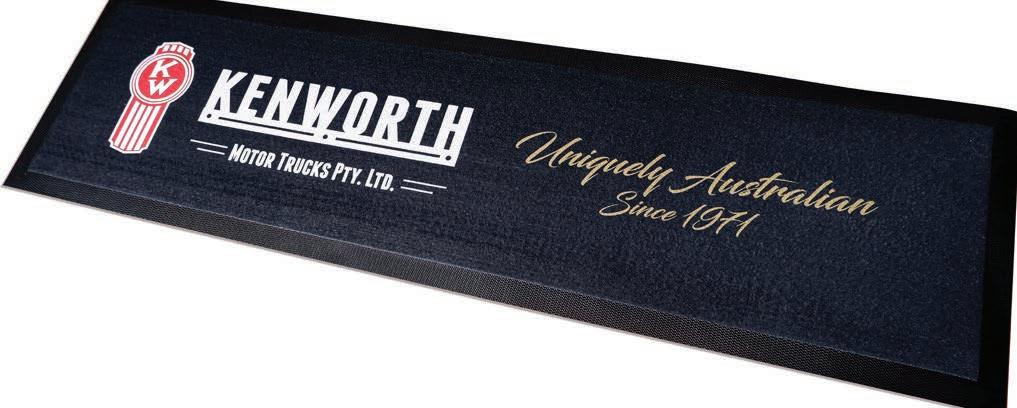

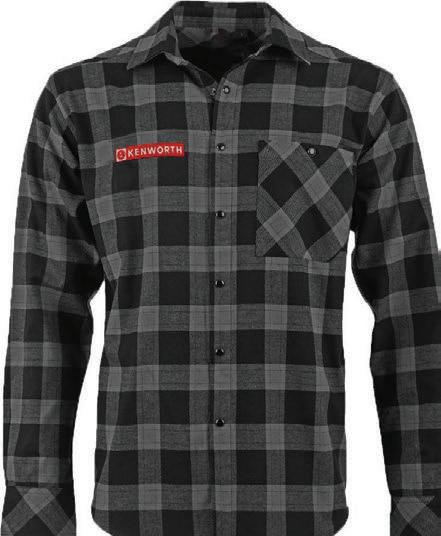































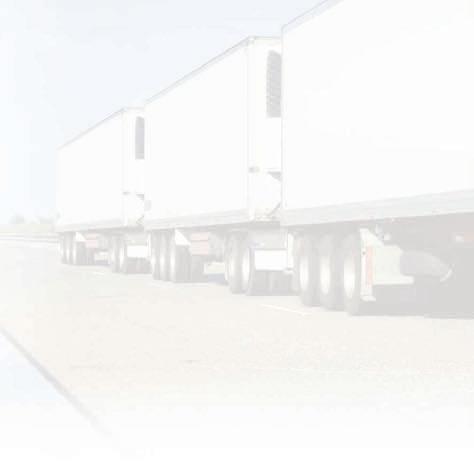





WOULD you believe it if somebody told you that a truck driver with 10 years of loyal service to a company –and who has earned long service leave – has never taken a sick day o work?
Probably not.
One who falls into this rare category is Martijn ‘Okie Dokie’ Dijkxhoorn who has been employed by Blenners for a decade as of last month and I would aptly describe him as the “employee from heaven”.
Before that, the now 51-year-old Okie Dokie was employed by several other companies for a total of another 10 years, and also never had a sickie.
I caught up with Okie Dokie after he had pulled up in his Kenworth 610 SAR at a Townsville roadhouse to fuel up and hook up a trailer.
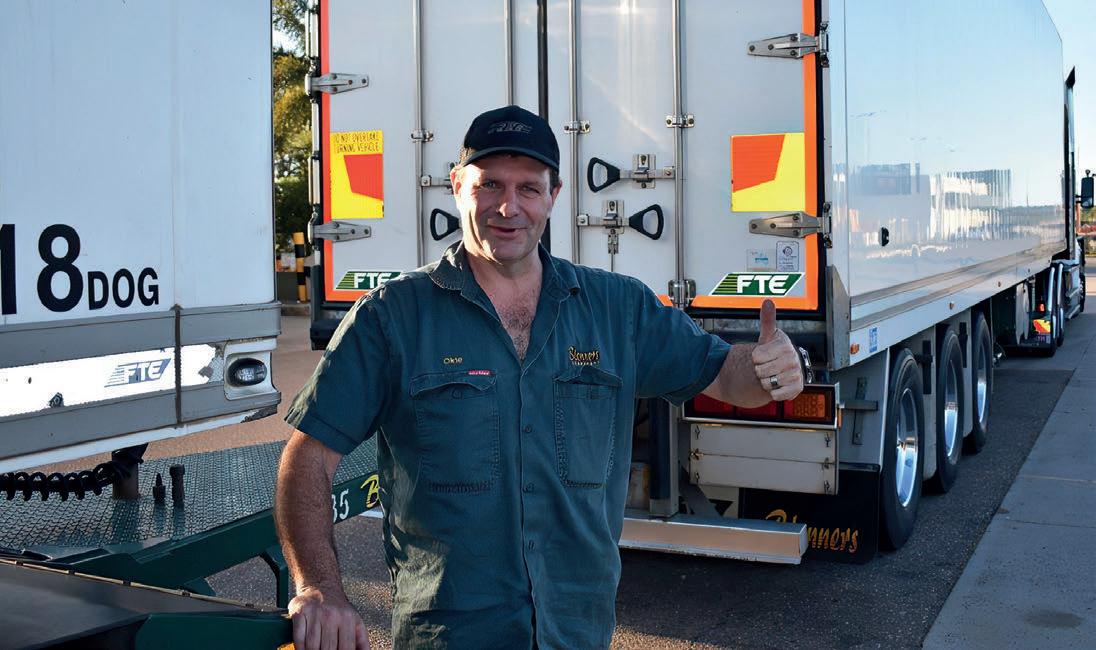
“I am heading to Perth with bananas from Tully and really enjoy what I do,” he said.
So, what is the reason that Okie Dokie has been able to maintain such good health so that he has never taken a sickie?
“I try and eat healthy with lots of fruit and mostly buy food at supermarkets and have it whilst on fatigue breaks. I had the odd case of the u but the best place to be then was in the truck away from everybody and be by yourself. I did have all the vaccinations during the Covid outbreak to
abide by border movement laws but never got it. But I have a medical check-up every year and had one recently. Everything was ne including my blood pressure and other things,” he said.
Born in the village of Hummelo in Holland, Okie Dokie became interested in trucks as a youngster when a neighbour who lived nearby would take him for trips in his rig.
“Later I got my own licence and drove through Germany, France, Italy, Spain, the former Yugoslavia, to Russia including Moscow, Ukraine, to Britain and African countries such as Morocco and Algiers.
“I drove a Volvo FH-12 single drive amongst other trucks and hauled general and cows. It was well before the Ukraine war and the roads in Russia were generally long, I even went to Moscow,” he said.
When aged 31, Okie Dokie came to Australia as a backpacker and stayed at King’s Cross in Sydney.
“I bought a second hand 4WD and asked a bloke how I could get my Dutch truck driver’s licence converted to drive in Australia whilst I was here for a year and found out I had to have it translated into English and did so at the Department of Transport in Dubbo,” he said.
Okie Dokie saw an advertisement for truck driver jobs with a company at Cobram in Victoria and
soon was employed by Brian Hicks Transport.
“Brian Hicks organised all the necessary visa for me to work and live in Australia. I’m still very thankful for what Brian did for me,” he said. at is where he was given the nickname of Okie Dokie which has stuck like glue and is a slang term which means “okay”.
“When I was asked a question, I would just answer Okie Dokie and have had it [the nickname] ever since,” he said.
As I sat with Okie Dokie at the BP Cluden eatery recording his story, several truck drivers walked past and referred to him as Okie Dokie.
After the Cobram job, Okie Dokie started work with D&J Johnson which was at far away Tolga in the Atherton Tablelands region of north Queensland.
“I used to do Tolga to Brisbane carrying general freight in a Kenworth 950,” he said.
From there Okie Dokie moved on to start with Gillespie Transport at Jimboomba, carting portable buildings all over the country.
Okie Dokie got the job at Blenners from their Brisbane depot a decade ago and reckons it is the best move he ever made.
“I applied for the position on a Tuesday and started on Friday. And I drove from north to Sydney, Melbourne and Perth in a Volvo. ey really treat me well and I enjoy going to work every time,” he said.
Life has also been good to Okie Dokie whilst he has been in Australia. He married his wife Megan who he met
at a Cooper’s Plain service station.
“We have two children - a son Wesley aged 10 and a daughter Eleanor who is eight and we go camping all together whenever I get time o around the mountains,” he said.
A while back his father Aad, 83 years of age, visited from Holland and went on a marathon truck trip with him.
“Dad slept in the truck sleeper box and I was outside it snoozing under the stars in a swag. Dad has been and is always the boss. We went from Tully to Brisbane and onto Perth where I dropped him o and he caught a ight back to Holland. e entire trip took a week,” he said.
Okie Dokie is looking forward to holidays in December and will take his family back to his birth country.
“We will all be going as a family and I am so much looking forward to it,” he said.
Having travelled through every Australian state, Okie Dokie has been along many bad roads but which rates amongst the worst?
“ ey would have to be the ones between Bourke and Moree in NSW and the Goondiwindi to Millmerran road in Queensland,” he said.
As for roadhouses he rates well, the Nullarbor Roadhouse is right up at the top.
“ ey have a good kitchen, parking and showers,” he said.
Although Okie Dokie has been Down Under for two decades, he still maintains a Dutch accent.
His Blenners colleague Trevor Southern who tipped Big Rigs o about Okie Dokie’s achievement never to have taken a sickie described him as a top driver and bloke.


“Okie Dokie gets on well with everybody and is well liked,” Southern said.
Not many of Okie Dokie’s family and friends are aware he has been sick day free for so long but they will know once his story comes alive and is told on the pages of Big Rigs.
In all my years of snapping pics and doing stories for Big Rigs I have never come across anybody who has been sickie-free for so long.
As I left, I wished Okie Dokie a safe trip on his long journey to Perth and it was no surprise what his answer was.
“Okie Dokie” he said.
This indomitable truckie arrived in Australia from his native Holland as a backpacker more than 20 years ago - and hasn’t stopped working since.
WHEN I WAS ASKED A QUESTION, I WOULD JUST ANSWER OKIE DOKIE AND HAVE HAD IT THE NICKNAME E ER SINCEA neighbour in Holland sparked Okie Dokie’s interest in trucks when he was a kid. It was Okie Dokie’s colleague who got in touch with Big Rigs to nominate him for a story.
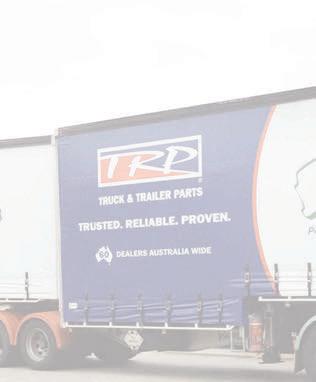

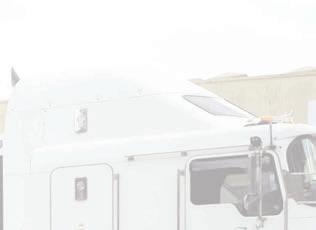





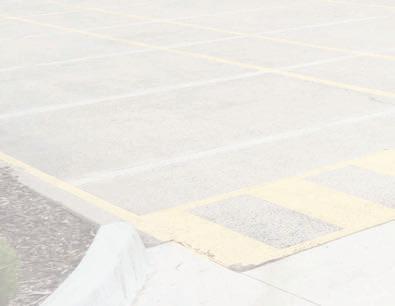








































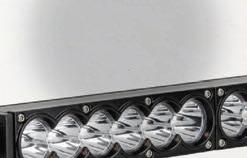















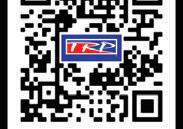
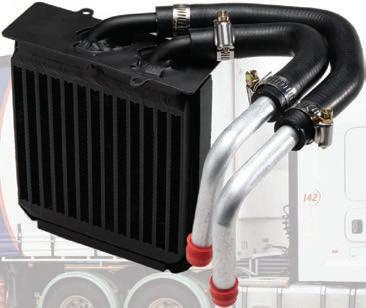













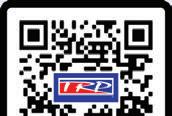


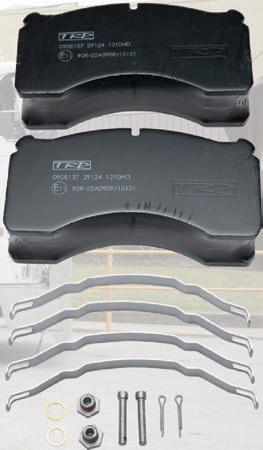









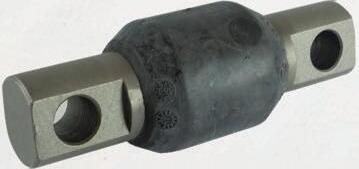


A TRUE veteran of the industry, Greg McDonald, 59, has quite literally been around trucks from the moment he was born.

Originally from New Zealand, Greg’s grandfather, Rod McDonald, ran a transport business there during the 1950s. en Greg’s parents, Graham and Nyra, bought some trucks and ran their own transport operation from the 1960s.

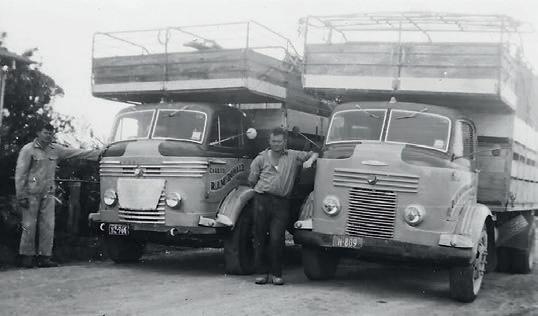
“I was driving trucks all my life. I was one of those kids who’d ride my bike to the yard every chance I could,” said Greg. “I grew up driving trucks around hay paddocks and the yard with no licence.
Once I left school, I went straight into transport. I wasn’t old enough to get my truck license yet, so was tarping loads, driving forklifts and that sort of thing.”
But as soon as he was old enough, Greg was straight behind the wheel – with his rst driving job being in a J5 Bedford. en by 23, he purchased his rst new truck, a Mack Superliner.
With such a strong family heritage in transport, it’s fair to say that trucking runs through Greg’s blood. “When I was a kid, you’d have family gatherings, and all the uncles would be there telling stories as they all had trucks as well.
My brother and sister also had their own trucks, my cousins were also in trucks. e whole family was in trucks,” he said.
Greg’s mother and father moved across the ditch to Brisbane in 1988, where they continued in the transport game through the 1990s and 2000s, eventually building up to a eet of 50 trucks. Greg moved over a few years later in 1991 and worked for his mum and dad.
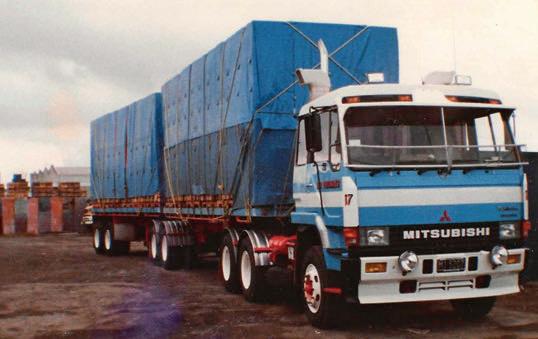
When his father decided to sell o parts of his business, Greg and his wife Sharon bought one of the transport contracts from them. at sparked the beginning of Greg
McDonald Transport, which operated out of Yatala for close to 20 years, transporting freight locally and across the eastern seaboard.

“At the time, we had a T404 SAR Kenworth and tipper. Dad was selling out and the opportunity came to buy one of his jobs in 2006. We sold the tipper to my brother and bought two of dad’s trucks, and three new ones. Over the next 15 years, with that job, we grew from the ve trucks doing local to 18 doing local, interstate as well as tippers,” explained Greg.
By 2020, the company was operating a eet of 18 trucks. Following a strategic sale, the
couple sold all but one truck in February that year, just before Covid struck. From there, the eet grew back up to six trucks: two 2022 Kenworth T909s, a 2021 Kenworth T909 Diamond Edition, a 2019 Kenworth K200 Big Cab Aerodyne, and a 2013 Mack Super-Liner, ve of which were all put under the hammer at Ritchie Bros. Australian National Unreserved Auction, held on August 23-24.

ough there’s one special truck Greg didn’t want to part with. “I’ll still keep one truck, it’s a 2015 Kenworth T950 Legend – that’s one I’m never going to sell. I’ll keep it for truck shows and that sort of thing and might do some of the convoys too.”
e decision to walk away from the industry that has been such a big part of his life for so many years wasn’t an easy one, but Greg knew the time was right. “Retiring has been a hard decision. It’s hard to leave, I’ve never not worked, I’ve never not been around trucks. I’m third generation, I’ve never done anything else,” he said.
According to Greg, increasing levels of compliance are making it di cult for many transport operators, while also impacting the industry’s ability to attract new, young talent.
“ e transport industry has become relentless in its adherence to compliance, with regulatory hurdles that seem to multiply. Jumping through hoops and navigating this has become increasingly di cult and I believe it’s time to pass on the torch.
“I understand why com-
pliance is required but a fair amount of it is just plain ridiculous. I think what a lot of older people like myself nd quite hard is when we’ve done the job well for all these years and now all of a sudden we have all of this added compliance. As a kid I was always going into the yard on my pushbike. You can’t do that now. Kids can’t come anywhere near a depot.
“ ere are a lot of older people giving it away because of over-compliance, but then at the same time, we’re not getting the young people in.”
Greg says he’d like to see more done to attract young talent into trucking once they nish school. “I got into my rst big truck when I was 20 years old, but now insurance companies say people can’t get into them until they’re 25. We need to get kids into trucks when they come out the school gate. Send them to the workshop for a month, to the o ce for a month, tyre company, etc, show them how everything is done. If kids get out of school and there’s a labouring job paying $40 an hour, they’ll go and do that instead.”
While many transport operators have grappled with driver shortages, for Greg, he says that was never the case.
“I’ve been fortunate to have fair and loyal customers who’ve been instrumental in our journey, as well as some bloody good drivers who have been the backbone of our success.
“Good equipment attracts good drivers. I only ever advertised for a driver once and he only lasted a couple of weeks and was gone. When you put the good gear out there, pay a fair wage, treat drivers with a bit of respect, you’ll get good drivers.”
Now, as the curtains close on a career that’s spanned 43 years, Greg and Sharon are looking forward to a change of pace. “As I approach retirement, I’m looking forward to travelling and spending more time with my family. I’m hoping to travel overseas and maybe take a closer look around Australia too. I’ve been through all these towns, but never actually stopped to have a good look. It’s time for a new chapter,” he said.
the time was right to begin aGreg’s grandfather’s two Commers, which were driven by two of his uncles (pictured). This Mack Super-Liner is the first new truck Greg owned, purchased when he was 23. A 400hp Mitsubishi twin turbo from the 1980s. Greg’s parents ran their own transport operation from the 1960s. He worked for his parent’s transport company during the 1990s. The fleet there eventually grew to 50 trucks.
RETIRING HAS BEEN A HARD DECISION. IT’S HARD TO LEAVE, I’VE NEVER NOT WORKED, I’VE NEVER NOT BEEN AROUND TRUCKS. I’M THIRD GENERATION, I’VE NEVER DONE ANYTHING ELSE.”
GREG MCDONALD















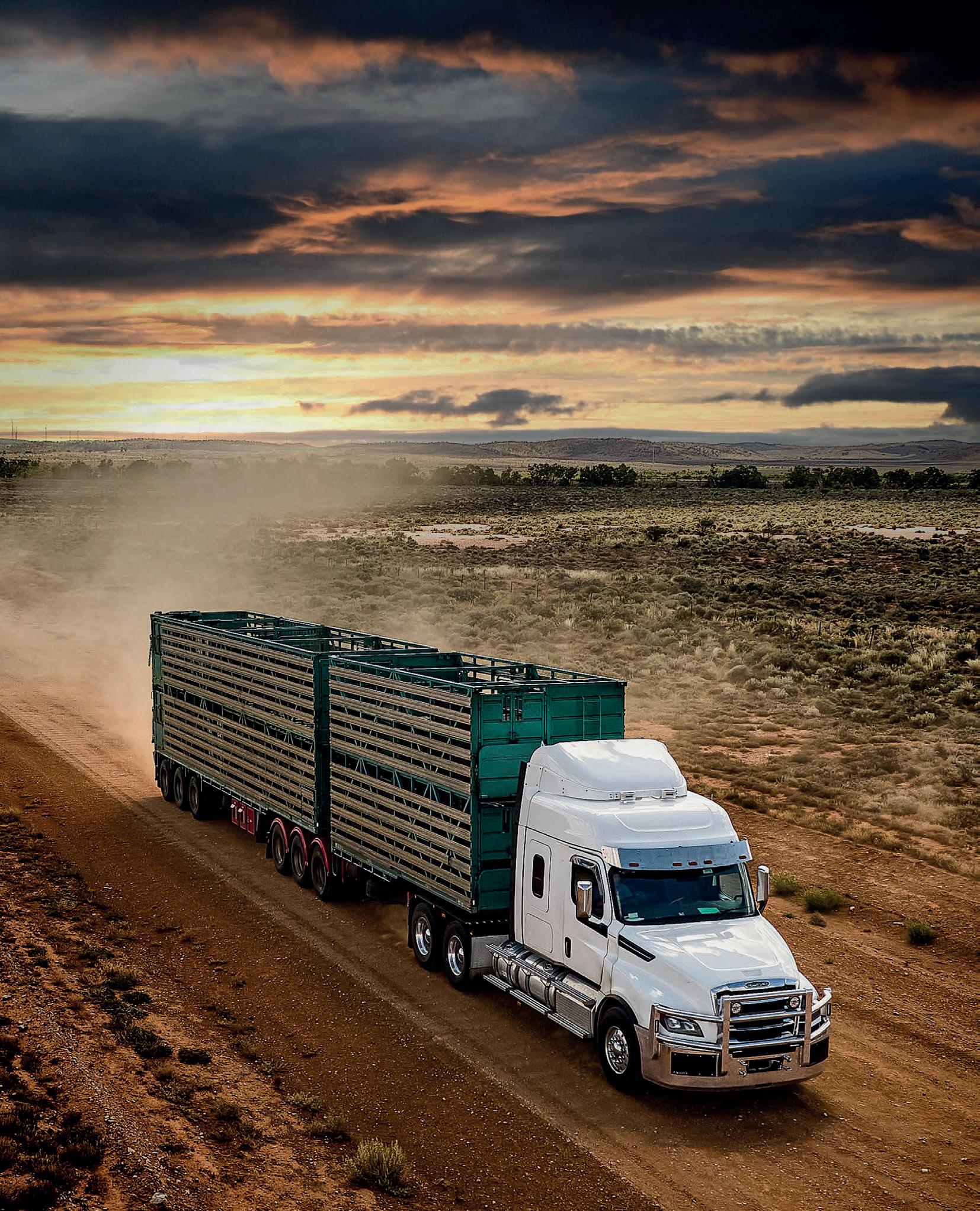
AFTER almost 20 years in Tasmania, we recently made a short return road trip to South Australia and Victoria.
is entailed crossing from Devonport to the new purpose-built facilities at Geelong, aboard the Spirit of Tasmania. For those travelling to south or western Australia, Geelong is convenient, elsewhere not so much.
After many years away, it was reassuring to see the familiar liveries of K & S from Mount Gambier and John Collins still running, and gratifying to see some Tasmanian names on the road including Sea Road, Crips, and SRT.
Reassuringly we found the same friendly and positive attitudes in the drivers we spoke to as before, and it was refreshing to note the continuing support for Big Rigs.
Despite intermittent rain along the way we were fortunate to catch up with several trucks and drivers and here is what they had to tell us:
Loyal Big Rigs reader
Near Tailem Bend in South Australia, we caught up with Jason Vanderwel from Colac when he stopped over for a quick refreshment break.
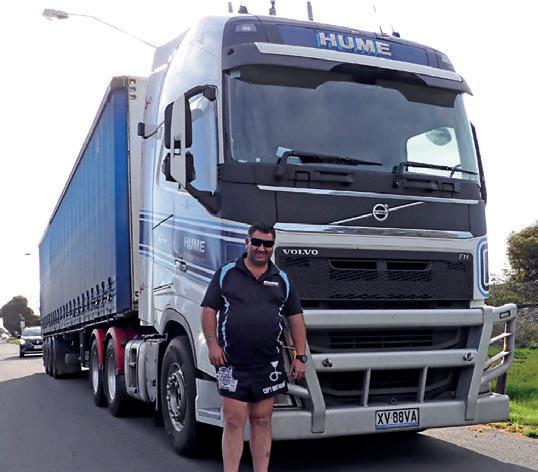
He was driving a Shiell’s 2015 K200 with an X15 Cummins up front and towing
a B-double on his way from Port Adelaide to Mount Gambier to load up for wherever.
He told us he has been on the road for 20 years now, and has seen many changes over that time, but he said it was still a good job, though there is way too much “Go go!” these days, and though you may still want to catch up with your mates on the road, you rarely have the time to stop.
He added he counted himself lucky though to have a great boss who took care of both his men and his equipment, which makes all the difference.
“I started out doing local for the rst couple of years and have been doing Interstate with them ever since,” he said. He has been reading, and enjoying Big Rigs since he began driving.
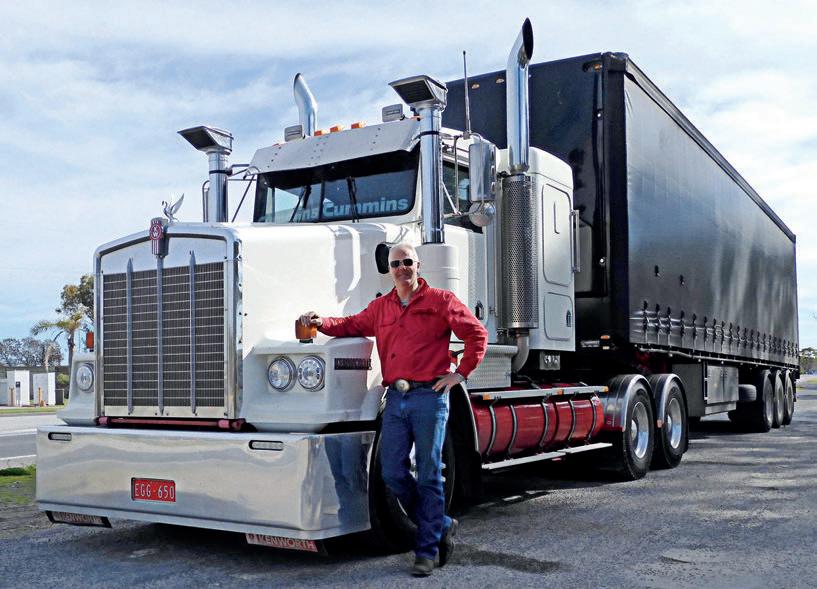
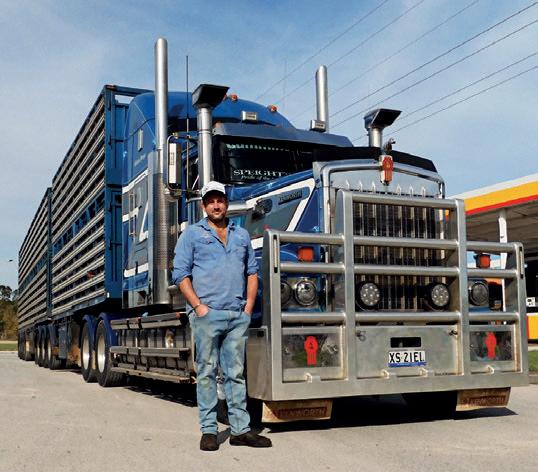
Still a good job
Stopping over at Keith, the familiar bp Servo now having become Shell, but otherwise still a top spot and good friendly service, we caught up with Jason Mullenger from Kyneton.
He pulled in for lunch driving Bruton’s eye-catching 1995 T650 with a Gen 2 600 Cummins up front on his way from Murray Bridge to Stawell to pick up a load of sheep skins.
He told us he has been on
the road for approximately 30 years now, and he reckons it’s still a good job as he is fortunate to have an awesome boss who is strong on maintenance and easy to work for.
“Well, I reckon things have deteriorated a lot in the last 20 years, it was certainly a lot better in the ‘old days’, but just now I am not complaining, mainly because I still have a real truck!”
Whilst still at Keith, we were fortunate to catch up with Will Cassidy from Murray Bridge.
Originally from Christchurch, NZ, Cassidy rolled in driving an eye-catching Trans Australian Livestock’s 2021 T909 with a 580 Cummins up front and hauling a Bx2 stock crates.
He had just unloaded cattle from Queensland and was on his way to Adelaide for a load of sheep.
“I’ve been driving for 20 years now,” he told us, “15 years in Australia and the last 13 years with this company.
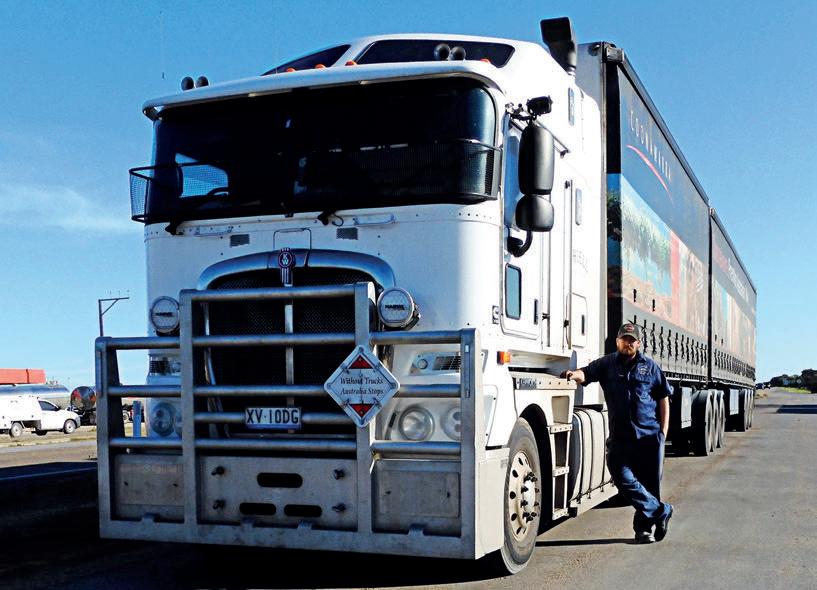
“So far, I’d have to say it’s all good, and I’m happy with the job, top out t, and gear which they look after, you can’t do
much better than that. I originally came over for a look around, then met my partner Harnah and we have a couple of kids, and the rest is history.”
Passing through Horsham we were fortunate to catch up with Michael Harris from Wagga Wagga when he stopped for a cuppa.
Driving a Hume’s FH Volvo, he was on his way from Adelaide to Oakleigh South and he told us he was a newcomer to the job, having been doing interstate for just a year, and prior to that doing local.

“So far, I’m loving it and it’s all good, and there’s nowhere I’d rather be! It’s usually Adelaide-Melbourne-Sydney and occasionally Brisbane.
“Love the Volvo, and Hume’s are a great family-based company who really look after their drivers and keep their gear well maintained, so I reckon I made the right choice!
Always looked after at SRT
Stopping at Little River for fuel we were happy to catch up with Josh Gardner from Melbourne driving a Tasmanian SRT Logistics 450 Iveco Stralis towing a fridge pan.
He was also on his way to catch the Spirit of Tasmania
at Geelong.
“I’ve been on the road now for 15 years all up and I reckon it is a top job. For the last ve years I have been working here for SRT.
“ ey have great management and have always looked after me, hence this is my longest job, and I am truly happy here. I reckon the move to Geelong was a good one, as unless you have to go into Melbourne, or maybe Eastern Victoria, it saves all the hassle of city tra c. I was here on day one of the move from Station Pier to Geelong, in fact I rolled up with the second truck to load.”
Rocke solid roles for this pair
It was also good to catch up with David “Butch” Butcher from Geelong, and William Cockerell, also from Geelong, at Little River grabbing a quick cuppa on their way from Melbourne home.
ey were driving a Rocke Brother’s 2016 FH500 Volvo and Butcher told us he has been on the road for 20 years all up, and Cockerell for ve years, but new to this job, just one week, and still learning the ropes.
ey both reckon it’s a great job and a top out t, and a regular run which gets them home daily. We noted that Butch barracks for Carlton, and William for Richmond.





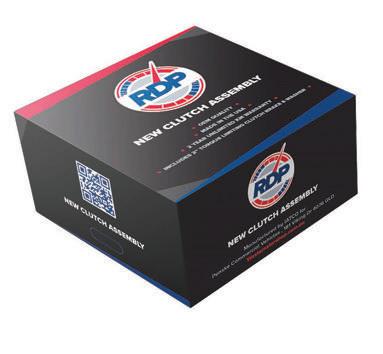


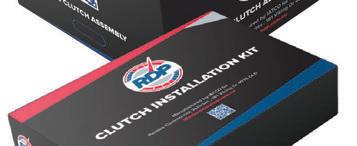

















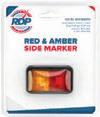


RETIRED truckie Col
‘Snow’ Lovett, 74, fell into trucking almost by accident. Originally from NSW’s north coast, he headed to Camden in 1969 for a holiday and worked bailing hay on Camden Park Estate before getting a job in 1970 as a truck driver at TRN Haulage (now TRN Group) – and so he stayed there until he retired 37 years later in 2007.
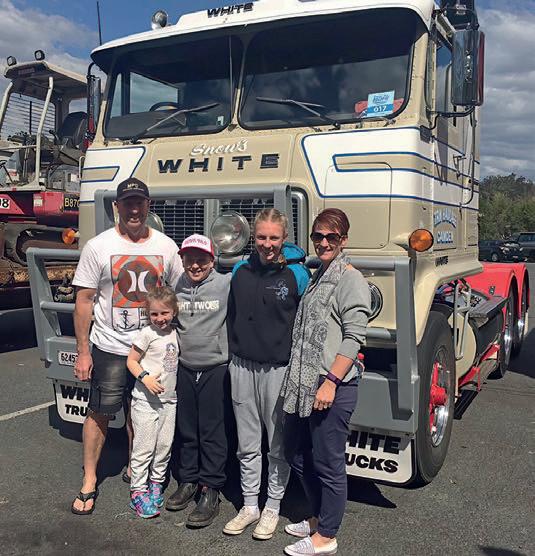

He moved back to Kyogle to enjoy a slower paced, semi-retired lifestyle –though he continued to work on the road, this time
driving a school bus, and occasional runs delivering trucks around the country.
A few years into his job at TRN, Col was handed the keys to ‘Snow’s White’, a 1978 model White Road Commander.
His son Andrew Lovett recalls countless trips travelling in the truck as a kid, while sitting in the passenger seat, particularly during school holidays. He was six years old when Col started driving the Road Commander.
“ at was a big truck for the day. It was put to work subbing for Mitchell Brothers, running between NSW, Victoria, South Australia and Queensland, as well as the coal mines around the Burragorang Valley and NSW south coast,” explained Andrew; adding that his father was also one of the drivers of the successful Shell Volvo race truck back in the day.
Col was in the Road Commander until it was upgraded to a V8 Mack Superliner, but that truck always held a special place in


his heart – possibly because it was a step up from sleeping across the seats or over the steering wheel.
White manufactured the Road Commander between 1972 and 1983. e one Col drove was powered by a 290 Cummins engine – and so a few years ago, Col and Andrew set about nding a truck based on the same specs that they could complete together as a restoration project. As luck would have it, they located one in Naracoorte, SA, in 2015. “After a few phone calls, the deal was done,” said Andrew. “We had to get it trucked over. e truck was still running, but not in good enough condition to drive it that far. e guy who owned it actually had it working up until a few years
before he sold it. We don’t know the VIN of the original but this one is the exact same spec.” e father and son team soon got to work making the truck look as good as the original Road Commander driven by Col – and TRN was happy to help. ough Col retired from the company nearly a decade ago, Andrew is em-
ployed at TRN Group as its chief nancial o cer. “I fell into driving coal trucks for TRN back when I was 19 as a way of paying the bills while I was at uni doing a Bachelor of Commerce,” he said.
Following that he spent time working as an accountant for an engineering company and driving coal trucks on weekends. “It’s an odd combination I know, but it’s one that worked,” added Andrew.
“After a stint working in nance for Guinness in London, he came home and, sick of wearing a suit, jumped back into driving for TRN for about six months before moving into the o ce.”
ough he continued to drive on weekends or nights when he was needed, he stepped away from full-time driving in 1997. But 26 years later, he’s still at the company which now employs 360 people, albeit in a very di erent role.
“ e owners of TRN were on board with the restoration which was a good thing,” said Andrew, admitting that while he can drive a truck and is a whizz with numbers, his experience at xing and restoring a truck is very limited.


“ is gave us a place to store the truck during the process as well as the use of some great mechanics during their down time. Fortunately, the truck was mechanically sound. It was a credit to the previous owner who had spent a bit on it. Until a few years before it was purchased it had still been doing Nhill changeovers. After giving it a thorough check, Ben Rose started the process of stripping the cab down for restoration.
“It took about a year to get it back on the road. Because we were going back to the old TRN set-up, it was great to have TRN carrying out most of the work.”
Continued on page 24
This beautifully restored White Road Commander isn’t just a reminder of times gone by, it’s also an ode to this retired truckie’s long career – and a home on wheels.The original Road Commander tipping gypsum near Boggabilla, NSW, in the late 1970s. The restored Road Commander and mobile home is an impressive sight. Photo: Diesel Fumes Photography Three Generations: Kaden, Andrew and Col Lovett.
FORTUNATELY, THE TRUCK WAS MECHANICALLY SOUND. IT WAS A CREDIT TO THE PREVIOUS OWNER WHO HAD SPENT A BIT ON IT.” ANDREW LOVETTThis is how the truck looked at purchase in 2015, prior to the restoration. The original truck parked outside the family home in Camden, NSW (circa 1978). (l-r): Andrew with his children Addison, Kaden and Georgia, and wife Dannielle Lovett.


















































With the shortest bumper-to-back-of-cab dimension in the 13L conventional market, it doesn’t get more versatile than the all-new Western Star 47X. Offering tremendous visibility and jam-packed with innovative Detroit Assurance safety features, truck occupants can rest assured that they’re in the safest hands.


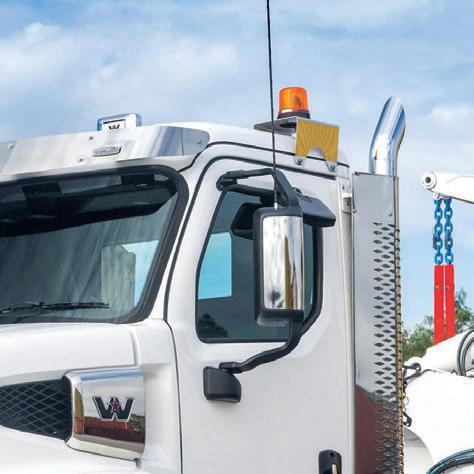

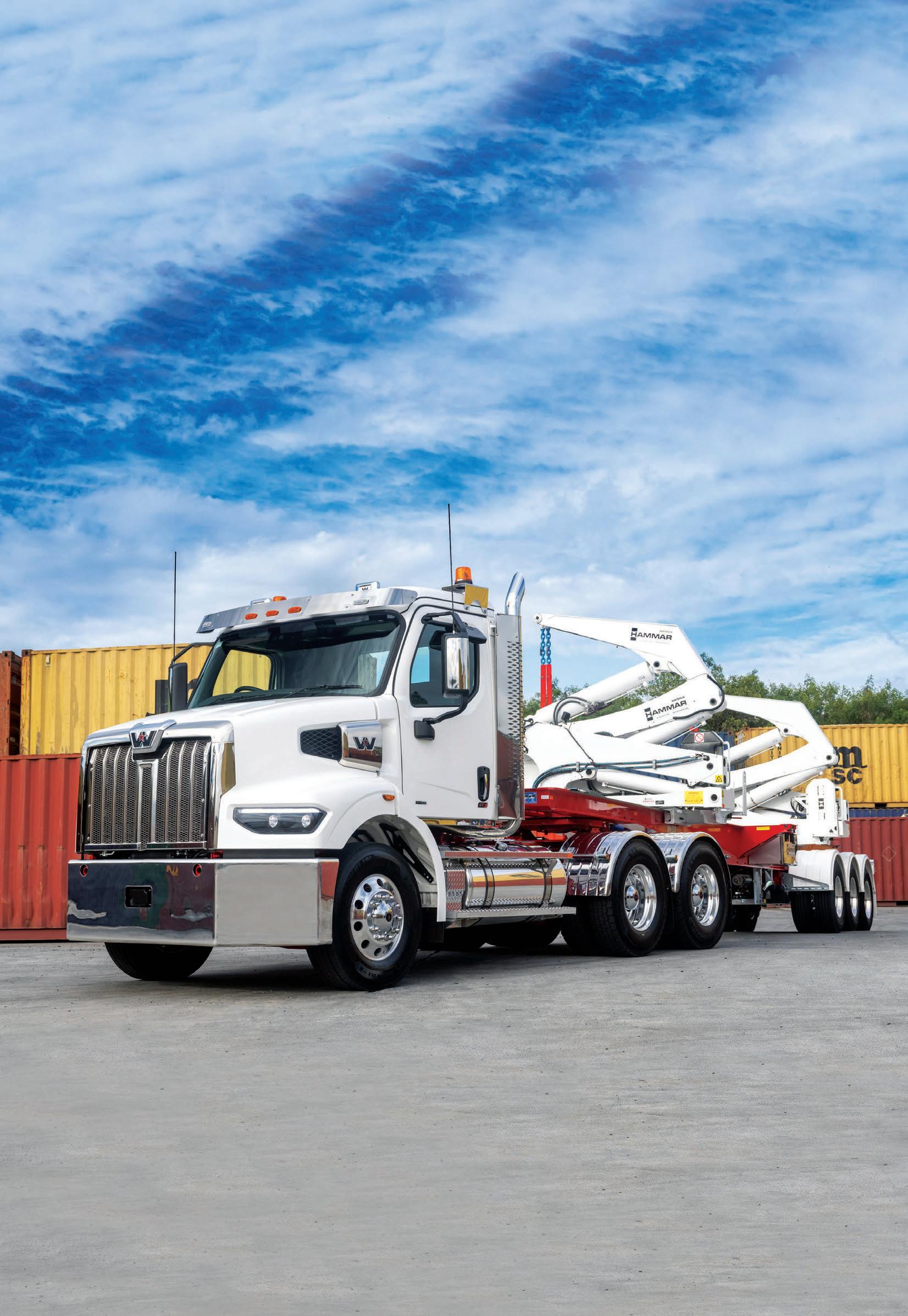
Designed from the ground up, the 47X is available with either the automated manual Detroit DT12, manual Eaton Fuller, or fully automatic Allison transmission. With either Detroit’s new 525hp DD13 Gen 5 engine or Cummins 380hp L9 engine under the bonnet, the 47X delivers superior efficiency, power, and reliability.
Working on a job site or hauling on the highway, the 47X punches above its weight.





From page 22 ANDREW explained the restoration process from beginning to end. To start, he said the chassis was sandblasted. “ en the truck went to the Adco Trailers workshop where some space was o ered for a spray painter to work out of. Jason Gibson stepped up to the challenge of repairing the cab and bringing it up to the look we were after. e doors were rusted out and needed to be re-skinned. e biggest repair was to the passenger side of the sleeper where it needed to be re-sheeted.”
He continued, “Over the next few months as time permitted, repairs were done, rivets and huck bolts
replaced and the cab was ready for paint. Denis from Signs Lines ‘n Scrolls then worked his magic with some old school signwriting. Alex and the boys from Adco Trailers did some fabrication work, including the checker plate and everything was starting to take shape.
“A few nishing touches like new mud aps from Dutchy’s Mud aps and new mud guards, and a little over a year from when it was purchased, the restored White rolled out the door in 2016.” at was the same year that TRN celebrated its 50th anniversary. e old White, adorned in TRN’s traditional colours, served as a centrepiece during a special celebration, sitting
alongside one of the company’s late model Kenworth cab-overs.
ough it sat pretty for that event, Andrew added that his Road Commander “isn’t just a show pony”.
“It travels up and down the east coast to shows, attending events from Queensland to Victoria,” he said.
With the truck looking as good as the day it rolled o the production line, the next step was nding a suitable trailer. And this is where the metamorphosis from truck to mobile home took shape.

“We needed to put a trailer on it because it was too rough on the road. We had a at top for it, and
then a cheap furniture van came up, so we tted it out,” Andrew explained.
While Col travels the show circuit, the trailer serves as a home away from home.
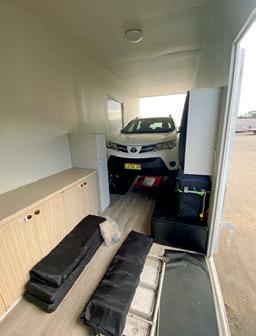

“My nephew Harrison is a chippy so he helped out with the conversion. e nished product provides some comfortable beds, a toilet, shower, kitchen and room to put the car in the back. It can be hooked up to mains or run o a generator or the batteries that are kept topped up with solar panels.”
It’s the perfect set-up for Col and his wife Heather to travel around the truck show circuit and enjoy their retirement.
ough the initial plan was for the truck to spend half the year with Col in Kyogle and half at Andrew’s in Camden, it spends much more time up north.
“With Dad being retired now, he uses it much more than me, so the majority of the time, it’s up there in Kyogle. He loves it and uses it at least every couple of months. He just spent two weeks away in it doing a few shows. I usually bring it down here for a few months each year,” said Andrew.
So far this year the truck has been to truck shows in Gundagai, Lockhart, Clunes, Kyabram, Rocklea, Gundagai, Wauchope and the Casino Truck Show, which took place on Saturday August 5.
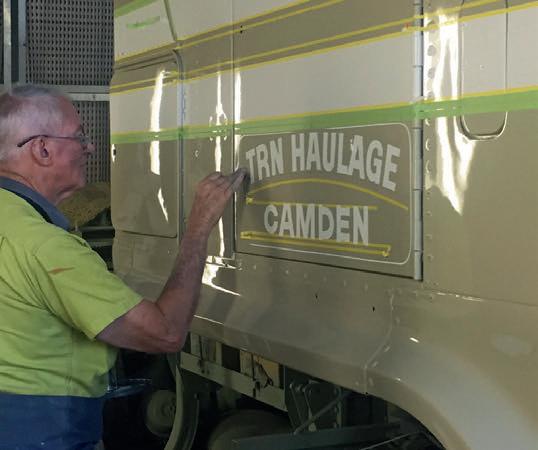
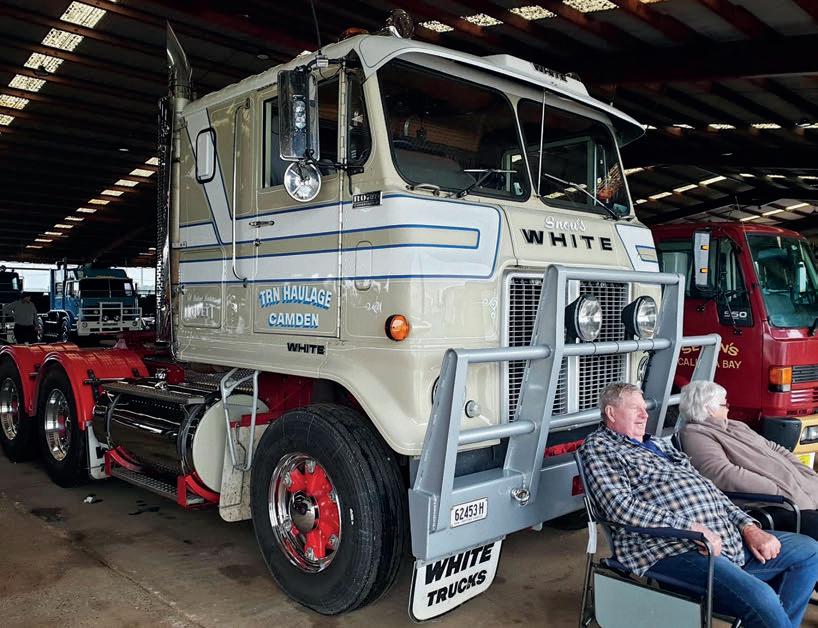
Whilst it missed this year’s Haulin’ the Hume due to other commitments, it is a regular at the event, as well as Crawlin’ the Hume.
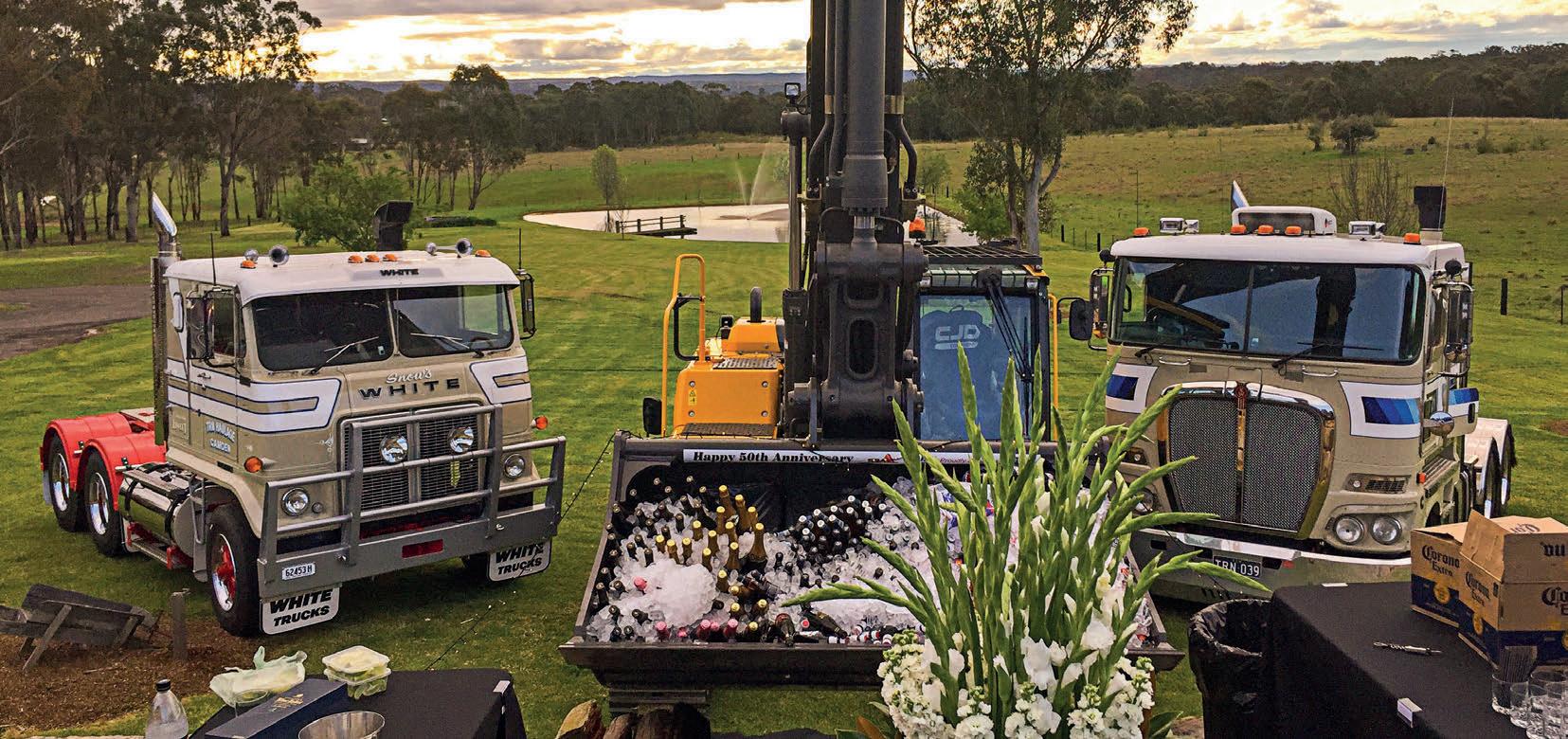
NO COMPROMISE
@ 1,800 RPM
1,850-2,050
lb-ft @ 975RPM
Extreme duty and heavy hauling for your biggest jobs
Detroit’s most powerful truck engine ever, the DD16 boasts up to 600 horsepower and 2,050 lb-ft of torque. The big bore workhorse provides efficient and dependable power and performance without compromise.
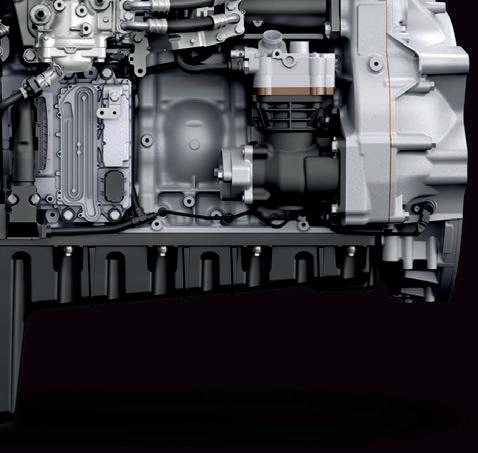
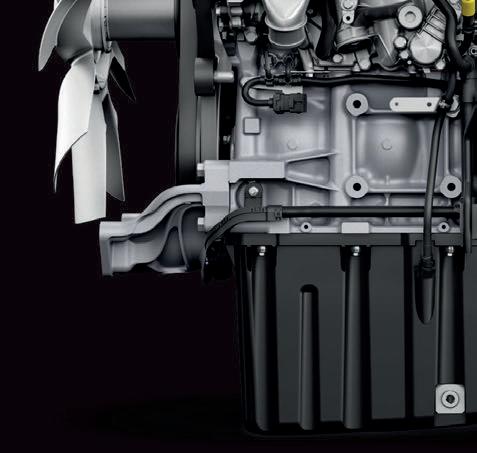
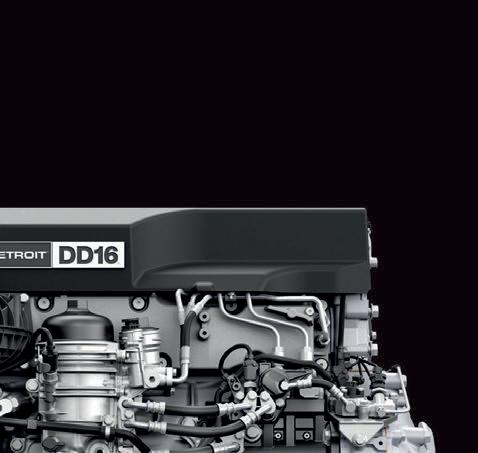
15.6L INLINE 6
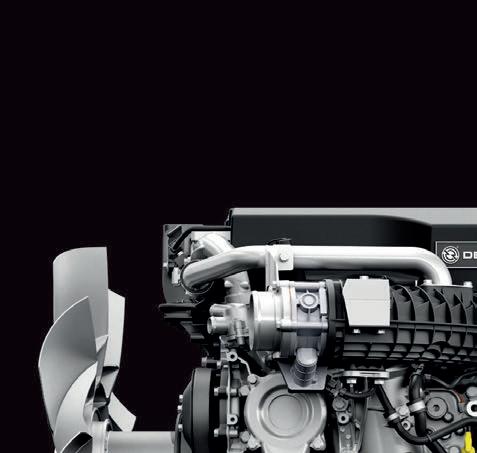
DIESEL ENGINE
Detroit’s advanced technology also means emissions requirements are met through innovative fuel efficiency.

This power, performance, and efficiency are backed by the most comprehensive warranty and extended coverage packages, ensuring the highest level of support for our customers.
When you buy a Detroit product, you’re buying billions of miles of engineering excellence. Tried and true, Detroit engines that are built to ride the roughest roads.
With Detroit, there’s no compromise.
detroitaustralia.com.au

THINK of a classic American trucking icon of the 1970s and the cabover International Transtar would have to be a contender with its imposing size, trapezoidal grill and trim styling carrying from the front of the cab around the sides.
While a number of these units were put to work in Australia, today they are somewhat of a rarity, and to nd one painted up in the colours of another iconic American brand makes for a unique truck.
Such is the case with the ‘Bud Express’, Jason Huet’s bright red 1974 CO-4070, which is decked out with Budweiser Beer signage, and is a familiar sight at historic vehicle shows and events around the Brisbane area.

e big Transtar previously wore the colours of SCT Logistics before being painted up in the ‘Bud’ paint schemes it was used as a tow unit for a Budweiser drag-bike racing team based out of Brisbane, with the truck having stuck in Jason’s mind from a young age.
“I remember seeing this as a kid, and when I set out to buy something, I wanted something that I could drive around and have some fun with,” Jason explained.
“I was after a Ford LTL, but I said to my dad Des, ‘Something like the old Budweiser Transtar would be good’. Lo and behold about two weeks after that conversation he rang and said, ‘I know where it is!’ and he dragged me out to show me.
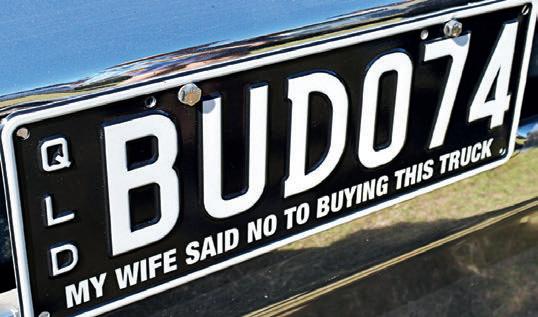
“He had already made an o er with my money, but it all
worked out well. e biggest hurdle was trying to convince my wife Karly to take it on. In the end I said, ‘Well, it’s going to be a truck or a Harley’ and she said, ‘You’re not getting a bike!’ so a truck it was!”
However, it seemed Karly had the last laugh when it came time to getting the International registered, having a bit of input to the personalised number plates.
“She ordered the number plates for it; she thought it was rather amusing. It’s amazing the number of people who notice that,” Jason said with a grin.
With father Des, a truck driver for a number of years, there is a bit of diesel in Jason’s blood, and he currently operates a variety of tip trucks including a Hino truck and dog carting landscaping supplies.

With the Transtar in his possession he was able to put his trade skills as a mechanic and auto-electrician to good use giving the truck an overhaul.
“We have just done a lot of tidying up - especially with the wiring and so forth and have put a lot of elbow grease in pol-
ishing it - the paint was done in 2004, it was parked out in a yard for a few years, but the paint has stood up to it pretty well. I have had the Budweiser stickers re-made but other than that it is what it is, it’s pretty good inside as upholstery had been done previously,” he said.
Sitting between the chassis rails is a Detroit Diesel 8/71 which has been turbocharged and is married up to a 15-speed Roadranger. Despite the Detroit’s having a reputation for being somewhat rowdy it doesn’t appear the bother Jason’s neighbours.
“It goes very well and it’s a fun truck to drive, I love driving it up over the Gateway Bridge from time to time to give it a good run. e plan is to keep working away at it, and I have
been toying putting on it on a rolling dyno just to give it a real good run under load. I have a classic Falcon at home as well as this and the neighbours reckon this isn’t as loud as that!” he explained with a smile.
With its bright colour and imposing presence, the Transtar is somewhat of a magnet whenever Jason has the truck either in the driveway at home, or out and about at some of the automotive gatherings around Brisbane.

“I can be out the front cleaning it up and it’s amazing the number of conversations I have with people just walking up and down the street.
“I have taken it to a few car club shows. e promoters love it because it draws people to it. We have also run it in the
Brisbane Convoy for Kids the last two years, and I really love doing that as it’s such a great event.”
Overall, the Transtar has been a worthwhile project for Jason to take on, and it is something that is worth preserving as a both a ful lling hobby along with maintaining a link to one of the highway haulers of times past.
“I really enjoy it. is is our hobby, and this is something you can see.
“You could buy a jet ski, which would cost more to maintain and own than this thing. I love the classic American ‘Big Truck’ styling of that 70s-era and it attracts a lot of attention - whether it’s a young kid or and older person it always gets the thumbs up from them.”
This stunning tribute to the 1970s big American truck era is the toast of Aussie fans whenever his besotted owner takes it for a run.Jason Huet with his project truck at Rocklea. The ‘Bud Express’ – Jason Huet’s Transtar is a 1970s-era classic. Jason’s wife Karly had the last laugh when she organised the number plates.





Versatility is what distinguishes the DAF range from other trucks in its class. So you need a tipper built to cope with the toughest conditions? There’s a DAF for that!
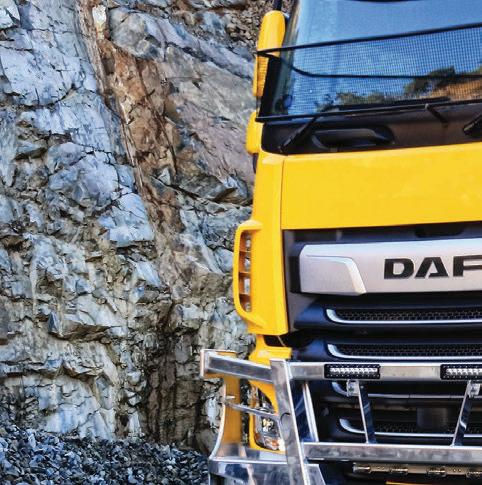
Whether your needs are long-distance haulage, city distribution, construction transportation, bulk or tank transport, the versatility of DAF keeps you moving, and that’s good for business.

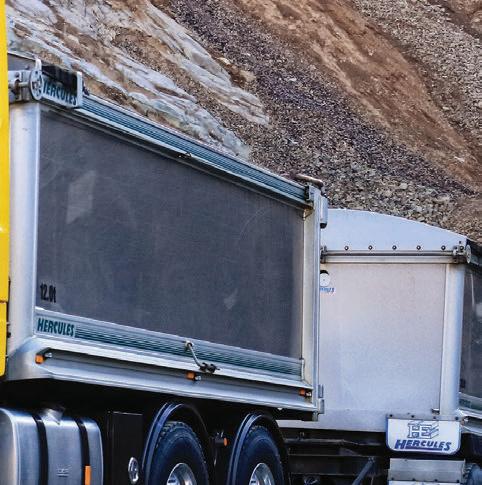


SEE DAF VERSATILITY IN ACTION




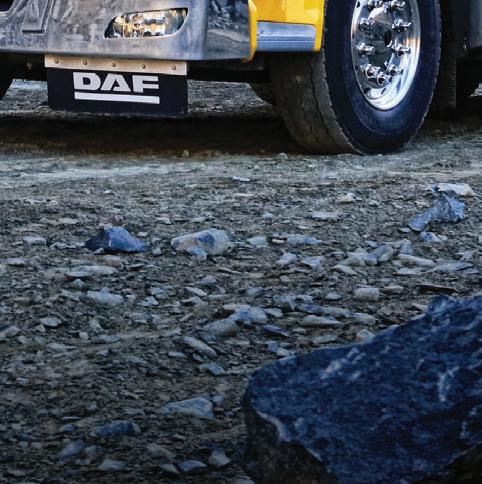
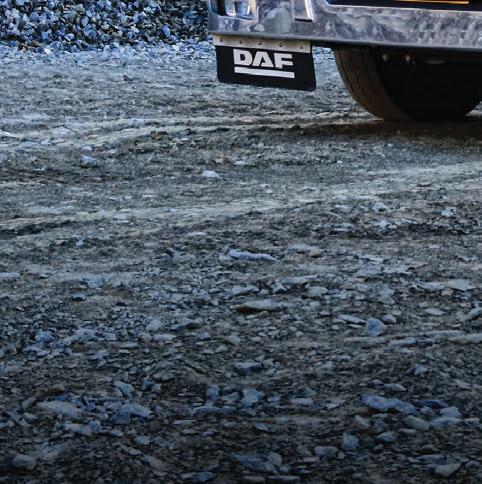
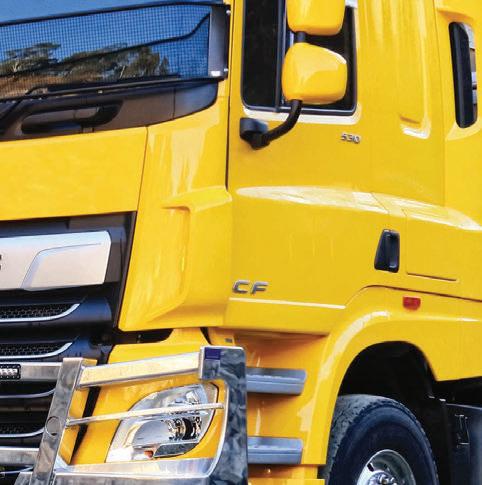
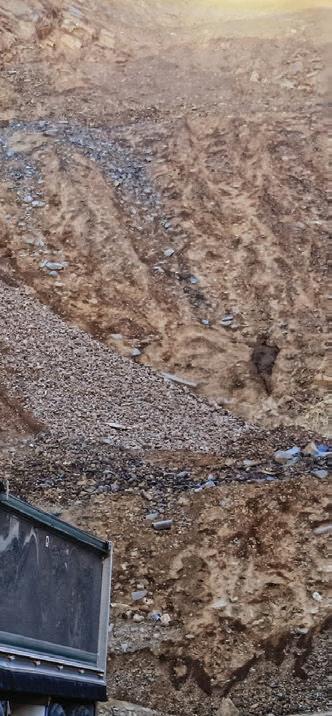
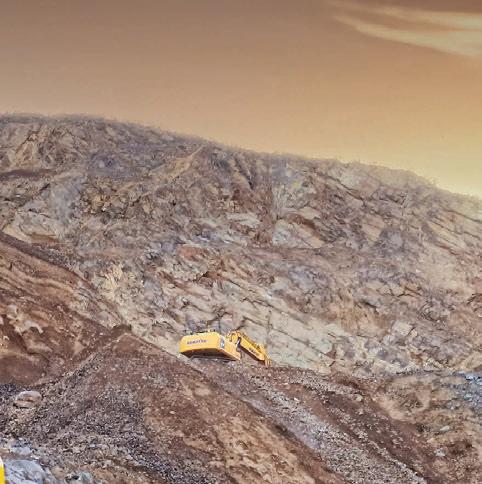

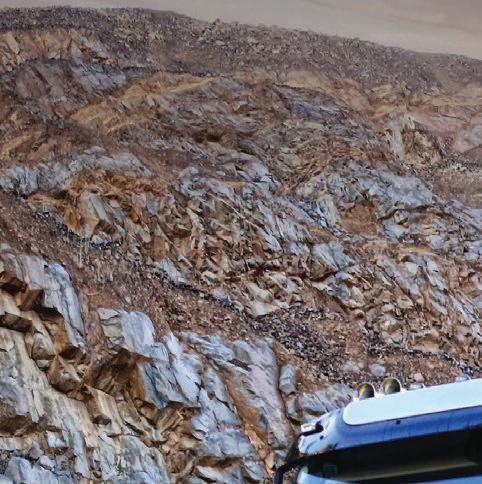


SHELL Rimula has partnered with Big Rigs in a big way – so there’s even more reasons to send in your best truck shots.

Each month, the Big Rigs team will choose a #PicOfTheMonth, with the lucky winner receiving a $500 Shell Coles Express Gift Card.
Keep an eye out for our regular posts on the Big Rigs National Road Transport Newspaper Facebook page, calling
for your best truck photos and add yours in the comments, or email them to editor@bigrigs. com.au.

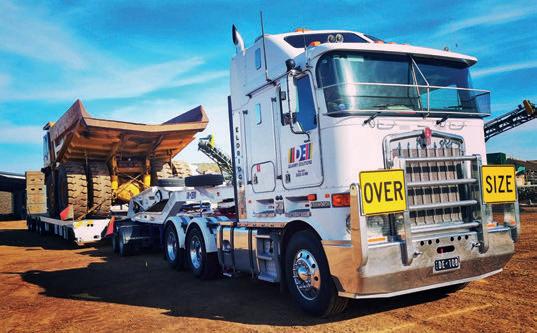
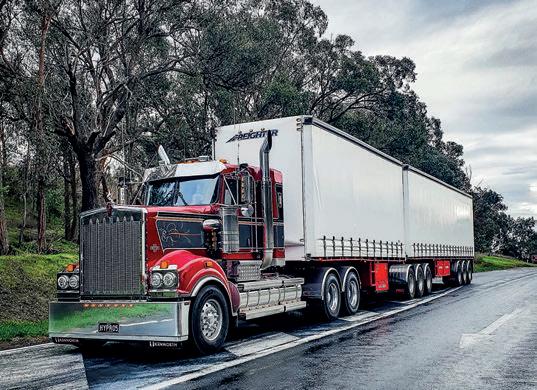

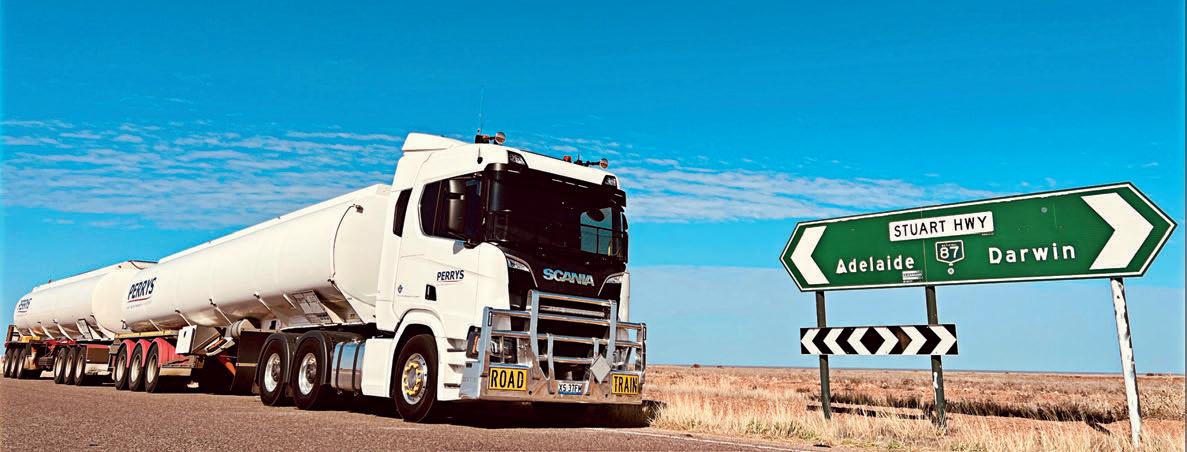
Don’t forget to include a brief note about the truck and where the photo was taken. We’ll feature some of the best photos in each edition of Big Rigs Newspaper, with one winner announced each month. Keep those amazing truck pics coming!





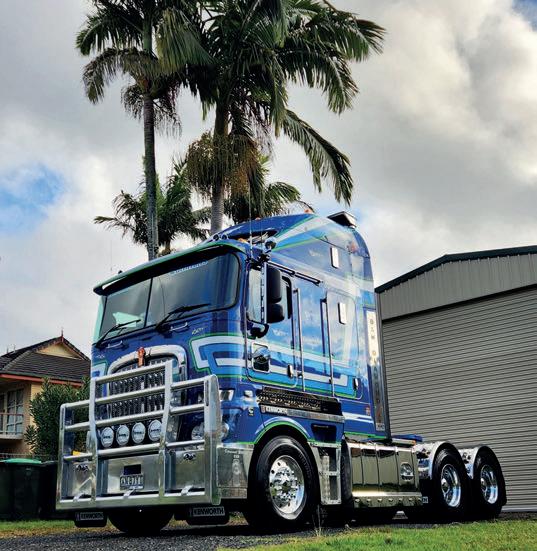

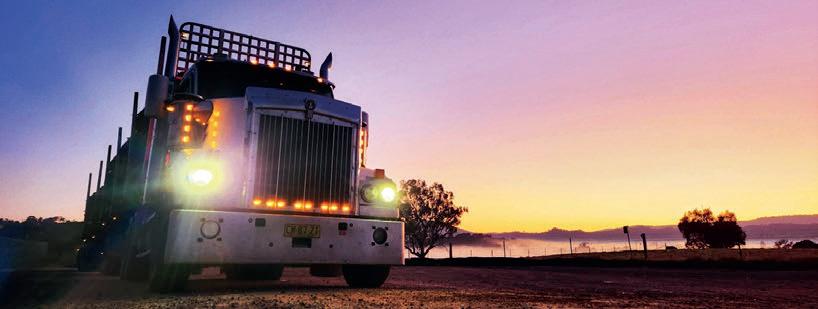
When the going gets tough, truckies keep everyone goingJason Pin captured this great photo of a morning sunrise at Fyshwick, ACT, just before jumping in the bunk. Owen M Weir snapped this photo, before heading to the recent Casino Truck Show, where he says a wonderful time was had by all. Ben Rice took this great shot while heading out of a forest south of Adelaide. Aaron Broz shared a great shot of Acacia Transport’s new Kenworth Legend SAR, “Sitting pretty outside the yard before its first official day on the road,” he said. Dale Clark shared this shot of this Mibus Bros 2019 Kenworth T659 and Drake trailer carrying a Terex Finlay I-130 crusher. Joe Watts captured this amazing pic of the super quad loaded with 195 tonne of iron ore at Marble Bar Rd, WA – bound for Port Hedland. Michael Roels captured the spectacular view of the sunrise at Tumut, NSW.
A Western Australian truckie who had a record of being spot on with information he passes onto Spy has slammed the state of the Barrier Highway which runs through parts of SA and NSW.
In particular he said the 49km section between Broken Hill and Cockburn was in urgent need of work.
“It is winding in places and has broken edges and some are very deep. If the second trailer of a road train got caught in one it could go over. You would think that with all the mining royalties from Broken Hill that it would be in top shape,” he said.
The long time truckie said when repairs are done they just “patch it up”.
This driver does a lot of interstate travel and said the roads in WA are very good when compared to many others around the country.
“We are very lucky in WA to have good roads,” he said. When interstate he likes stopping at the Little Topar Roadhouse.
Old Ford a highlight
An old but beautifully restored 1921 TT model Ford created plenty of interest when it was on display at the recent Townsville Show. It has a 22hp four stroke motor and was in a hall with other vehicles as part of the Vintage and Historic Motor Club display. Member George Sellen said it was restored by a club member and lots of people checked it out when they visited the hall.

In previous years it had been displayed at a historical museum run by the Townsville City Council at the park near the West End cemetery.
The club is based in Townsville and was started in 1968, and has members in Ingham, the Burdekin (Ayr and Home Hill) and Charters Towers.
Its objectives are to encourage the preservation, restoration and use of veteran, vintage and historic vehicles.
Cyclone like winds in Tassie
Strong winds and wet weather in Tasmania have been causing havoc on major highways travelled on by many truckies.

One told Spy that 43 trees had been blown down across or close to the Lyell Highway.
“That is on the west coast road between Tarraleah and Strahan, making some sections hazardous. Part of it is through the west coast range,” he said.
One of my best sub agents who lives along the north coast near the Bass Highway sent Spy an email detailing a spate of bad weather down there.
He lived in the North Queensland tropics for decades and moved to the Apple Isle a few years ago and has never experienced anything like it.
“It defies belief. There’s no end to this idiocy. We’ve been copping a battering for two days from strong winds and it’s still going. Lost power at 4am and still out. Outages right across the state. Winds over 100km/h. One place was 173km/h on west coast. Just no lights etc but got torches, candles, lanterns and it’s like an FNQ cyclone,” he said.
Several truck drivers have told Spy they were outraged to be told that a hamburger with
the lot would cost $25 at a remote roadhouse.
They realise that the business would have heavy freight costs for supplies but thought that was over the top.
Neither complained about the service or food standard but said they wouldn’t pay that even if they won first division in lotto.
Both doubt that the establishment will sell many of the burgers.
Dead animals appear
Carcasses of dead animals along the Cobar to Griffiths road have been a problem for truckies according to one veteran Deniliquin driver.
“There are many of them and some are in the middle of the highway. Truckies can’t just pull over and remove them,” he said.
The driver has appealed to the local council to have road workers remove them on a more regular basis.
“When I have been interstate I often see workers holding big sticks with a hook on the end doing the job,” he said.
He is not the first truckie I have spoken to with a similar gripe.
Truckies realise it is a dirty and smelly job but somebody has to do it.
Whilst on many trips in north Queensland one of the places I always stop at is the rest area just north of Innisfail at the junction of the Bruce and Palmerston Highways.
At busy times of the year there has always been a Driver Reviver site there where motorists stop for a break, free cuppa and a biscuit.
It is run by loyal volunteers including Innisfail Police liaison officer Michael Sands.
The rest area has toilets and trucks can park around the back next to a scenic view of a cane field.
The Driver Reviver is one of many that the Queensland Government has closed during 2023.
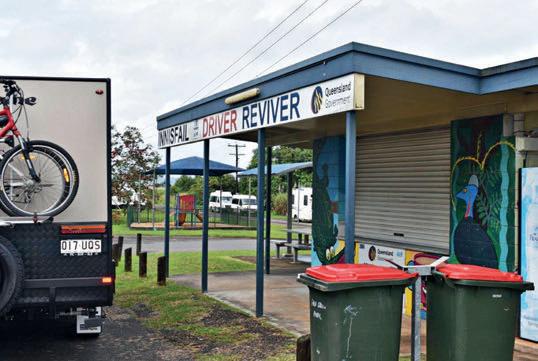
When I stopped there in early August I saw Sands and another PLO picking up material from the Driver Reviver building.
“It is finally closing,” he said.
On the positive side, Spy hears that there may be another rest area planned for nearby which will accommodate a Driver Reviver.
Having worked at the Cardwell Puma Roadhouse for seven years, Lilian Bosun has become well known to visitors including many truck drivers who have told Spy she is a very courteous employee.

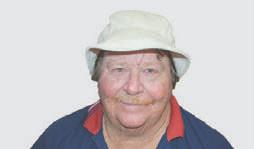
The roadhouse is along the main street of Cardwell which is beside the sea and 160km north of Townsville and 190km south of Cairns.
Bosun is a renowned friendly worker who has been praised by many patrons at the roadhouse for her courteous and efficient manner.
Every day scores of truck drivers stop there and either
park across from the roadhouse if space is available or in the street beside it.
I stopped there in early August and was served by Bosun who was very friendly.
The roadhouse has clean toilets and a good selection of takeaway food and plenty of seating inside and outside.
You can also pick up a copy of Big Rigs – which lots of truckies do.
“I have been here for seven years and get to meet a lot of people every day including locals and many others passing though,” she said.
Bosun has Torres Strait Islander heritage with many family and friends living at Kubin Village on Moa Island.
The day I yarned to her she was delighted to see friends LJ Shibasaki from Thursday Island and Fred Mills and Florence Mills from Mount Isa who were heading down to Townsville for the Cowboys versus Brisbane Broncos NRL match.
“It was really good to see them,” Bosun said.
The north Queensland towns of Tully and Babinda are renowned for having amongst the heaviest rainfalls per annum in Australia.
Spy can well and truly attest to that after travelling the Bruce Highway and passing both towns in early August.
It pelted cats and dogs along sections between Babinda and Tully – and driving conditions were difficult.
The rain was so heavy for a period that the only visibility was paying careful attention to the white lines in the middle of the highway, and looking at the tail lights of the vehicles travelling in front of you. There are a lot of roadworks along the highway but all the workers had to leave because of the downpours.
A t-shirt worn by American sailor Haden Keils stood out like a Bulldog’s you know what when he was in port.
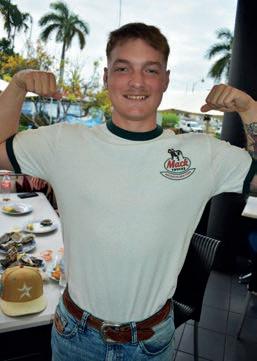
Keils was with other US sailors enjoying fish and chips whilst his ship was having a
stopover at Townsville Port on August 11.
Screen printed on the back of his shirt was “Built Like a Mack Truck”.
People sitting in the eatery looked at the shirt so I asked Keils what was the story behind it. After all he is a man working on the oceans.
“I am from Texas and my grandfather was a truck driver and I seen this here at a local shop and bought it,” he said. He was very friendly and referred to me as “Sir” when we spoke.
“We loved the fish here,” he said.
Jail bar escape
Could one suggest that old Spy had to attempt a “jail bar escape” when speaking to learned 85-year-old Eddie Abrahams.
Eddie was commenting on a story we ran in a recent edition about an old Charters Towers ambulance which I referred to as a jail bar.
Because the vertical strips on the front grille resembled prison bars.
This gentleman lives at Grandchester near Ipswich and is well known for his knowledge of vehicles, especially Ford cars and trucks.
“This is a Ford Freighter and is not called a jail bar. They were made in Sydney, less than 100 of them. It is a piano key grille and some were converted to paddy wagons by the police and had jail bars on the back and that is what is referred to,” he said.
During our conversation I tested Eddie about his knowledge of Ford trucks and referred to a model T I photographed recently.
He came up trumps and rattled off the 1921 year model and from now on Eddie will become a Spy sub agent whom I will contact whenever I need info on such Fords.
The veteran is also a huge Big Rigs fan and told me he has many back issues and collects his copy from an establishment every fortnight.
It was great to have a yarn with Eddie but it was with some relief that I was not sentenced to any time behind jail bars.








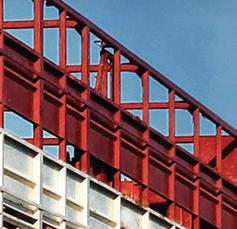
We’re not all made the same and neither is a Kenworth. With a huge range of options, a Kenworth can be customised for the driver and the task at hand. Drive something to be proud of; “a truck that’s uniquely yours”.

kenworth.com.au








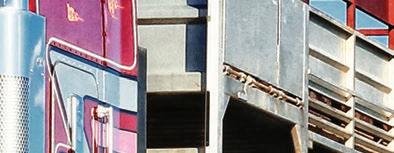
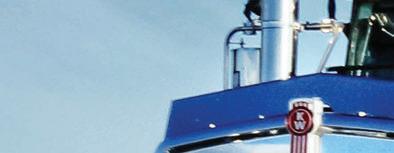
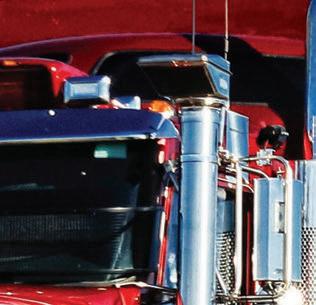

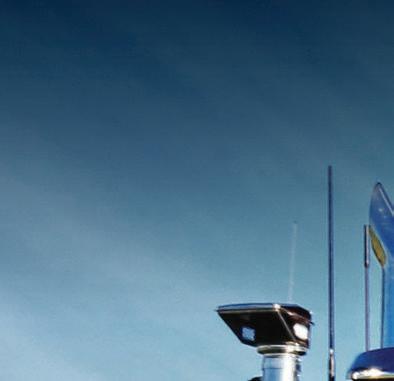
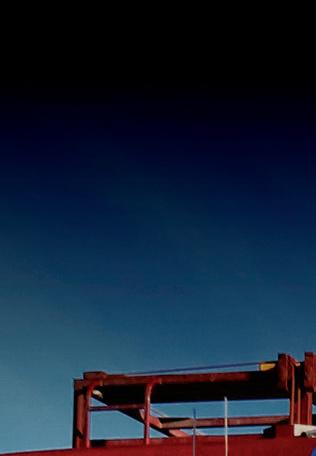







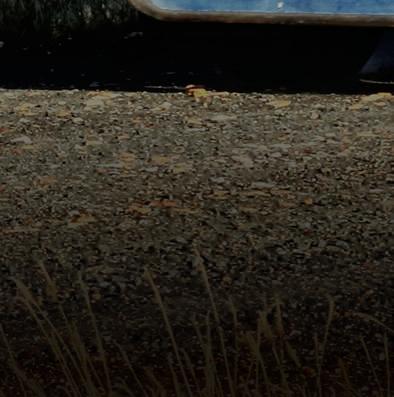

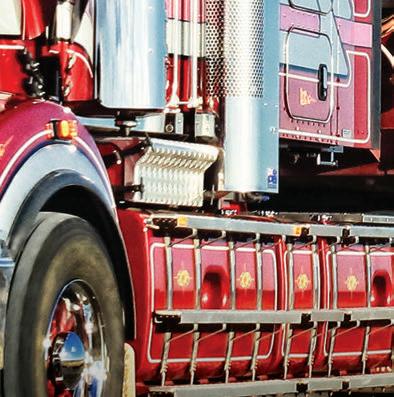

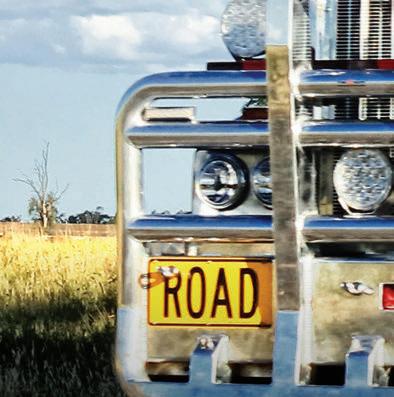







 BY DANIELLE GULLACI
BY DANIELLE GULLACI
“TRUCKING is everything I am, who I identify with. For me, this is the dream,” said Darwin-based quad road train driver Kattie Risk, 36.

Starting her driving career as a bus driver when she was 22, before moving into trucks at 24 and working her way up to her MC, Risk is now behind the wheel of a double-deck quad (two B-doubles connected by a dolly), transporting cattle for Hale River Transport.
The company has a station about 100 kilometres south of Alice, with a trucking base in Clare, SA.
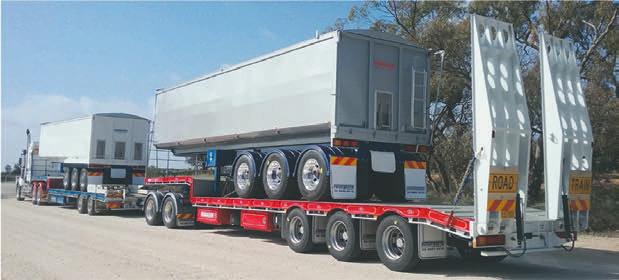
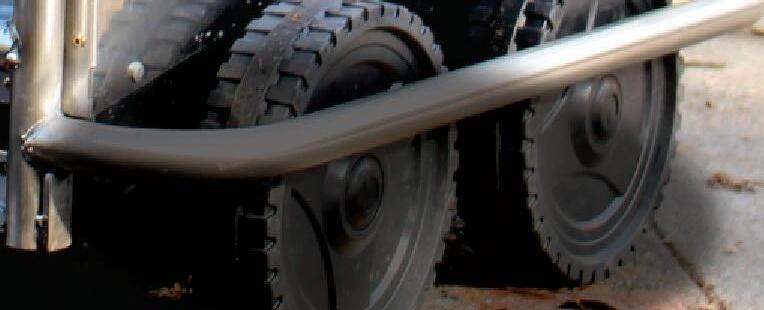



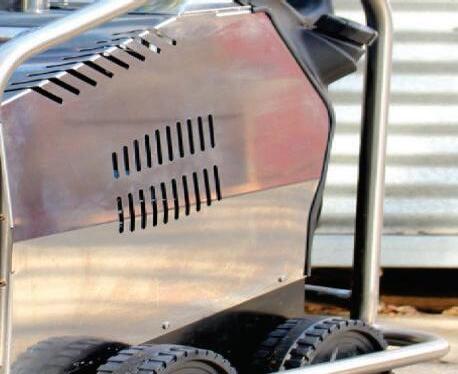
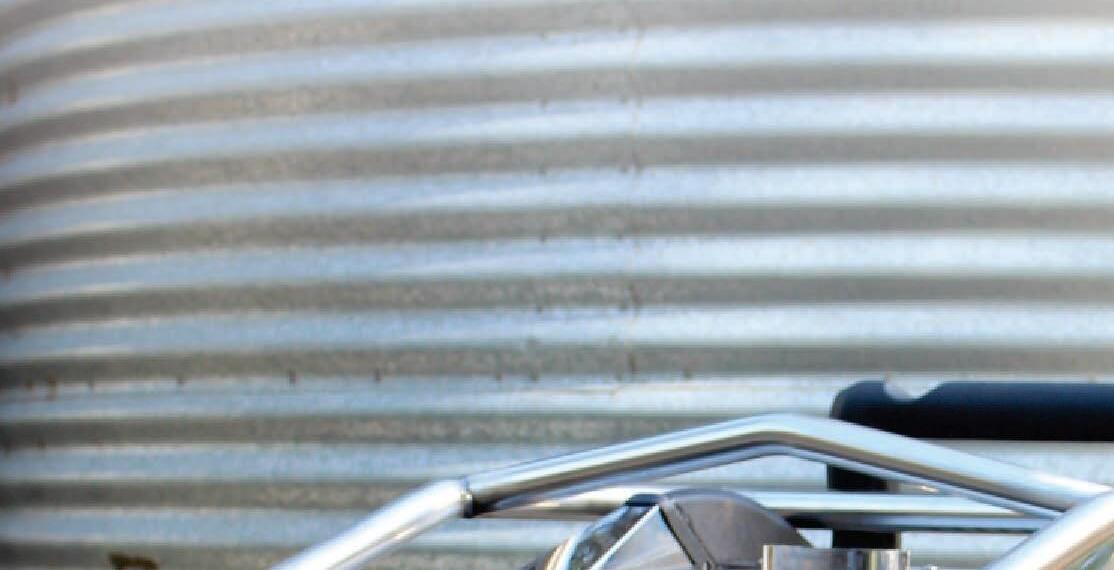




“This is my first cattle season. I started in April. I travel everywhere. I’ve been over to the west, done quite a few trips on the Great Central Road, go to some of the stations around Alice, up to the stations in Darwin, down to Victoria, and all
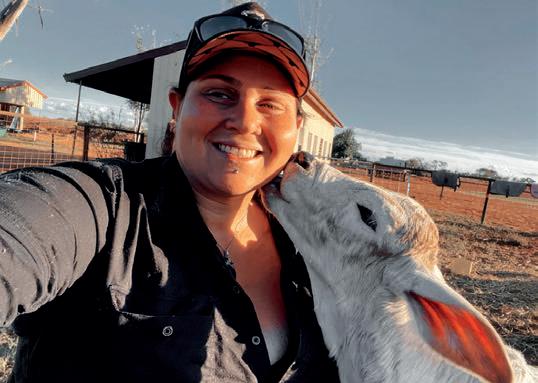
around SA. There’s only two places I haven’t trucked in Australia and that’s the ACT and Tassie,” said Risk, who is also a mother of two boys, aged eight and 15. You’ll find her behind the wheel of a 2017 model Western Star 6900. “I love this truck. I call her Gloria because she’s glorious – she’s my green-eyed girl.”








Though Risk didn’t grow up around trucks, she says, “I grew up under the bonnet – I have six brothers, so I grew up around cars and everything mechanical.”
She also has one particular childhood memory that really stands out. “When I was a little girl, I would have only been five or six years old, we pulled up next to a road train. I remember looking up and seeing the driver – with that iconic blue singlet and tattoos. When I saw him, I thought wow, it’s really something else to be that man in that
road train,” she recalled.


“I never in my wildest dreams thought I’d be that person sitting in that truck. As far I’ve now come, I never thought I’d amount to be doing what I’m doing, in the quads, cruising around the outback, it’s just so unreal. Before I got into a truck, every other job I had was just another job, just a pay cheque. Being in the quads is something that was on my bucket list.”
Risk got her MR licence in 2011 and drove school buses. She upgraded to her HR 12 months later. “I tried to get work driving heavy vehicles and just couldn’t get a break,” she said. “Then my dad bought trucks and he’s the one who actually taught me how to drive Road Rangers. About 12 moths after that I got my MC in 2013. I drove hard bodies for two years, learning how they all work, learning how to drive a Road Ranger and honing in on that. I was driving hard bodies, water tankers, then I got into double side tippers. I worked for my father for a little while before moving into road trains.”
But one of the most unusual and interesting loads Risk has carried were crocodiles, which she transported from Darwin to Queensland. “That’s one of my favourite loads I’ve ever done. You know those big water pipes, they put the crocodiles in them, with a little bit of water, and it’s refrigerated. The crocodiles go dormant because of the cold and sleep the whole way.”
With her husband also being a truck driver, with a career of over 20 years, the couple spent four years doing two-up. “Working together, we both taught each other different things. I taught him how to change an alternator on a truck, he taught me how to chain an axle after we had the bearings go and the hub heat up. Then he wanted to step away from trucks for a while – but I wasn’t ready to hang up the boots,” explained Risk.
“He stepped away from linehaul for about 12 months and then in February, he was out of trucks all together – but he’s going back into it next month, working for the same company as me. He loves cattle carting and did it for many years.”
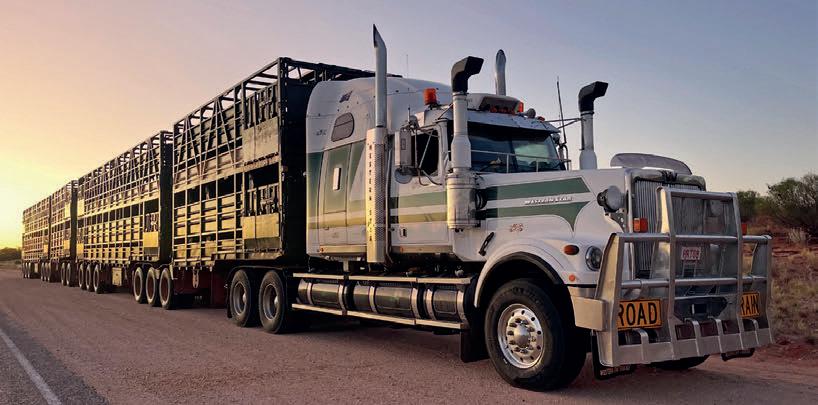
Risk said they won’t be jumping back into two-up, but they’re happy to do it when and if the need arises.


















Though the number of animals onboard the quad differs depending on their size, Risk says the most she’s carted at once is 167 head of cattle, which is about 13 head per pen. “At the moment I have about 140 on. The bigger they are, the less you can carry,” she said.
Her runs can also differ, depending on the season. “When I first started in April, it was a lot of off road. I did four trips along the Great Central Road back to back, back and forth – and that road apparently breaks









a lot of people, who will go across it once and never do it again. It was 1100 kilometres each way – 900 kilometres of that on dirt,” explained Risk.
On the topic of difficult roads, Risk says there’s one route she used to travel that was particularly challenging, on the way to a remote town called Bulman, about 400km from Darwin. “I used to run up to Bulman quite often to deliver freight for the shop up there. It’s a small com-
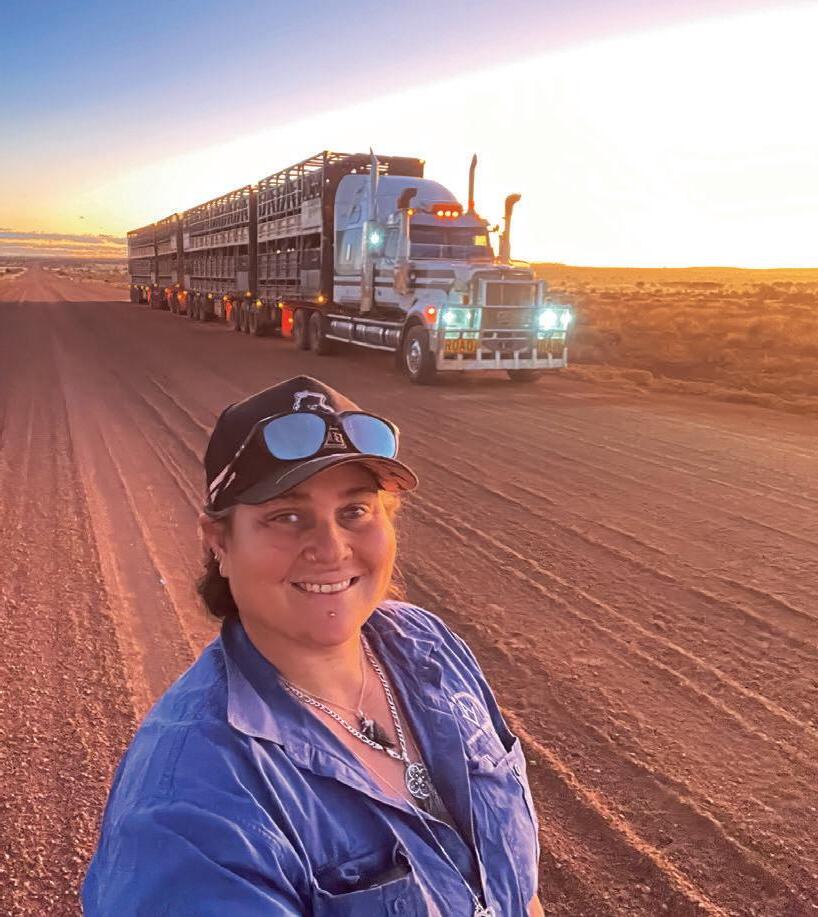
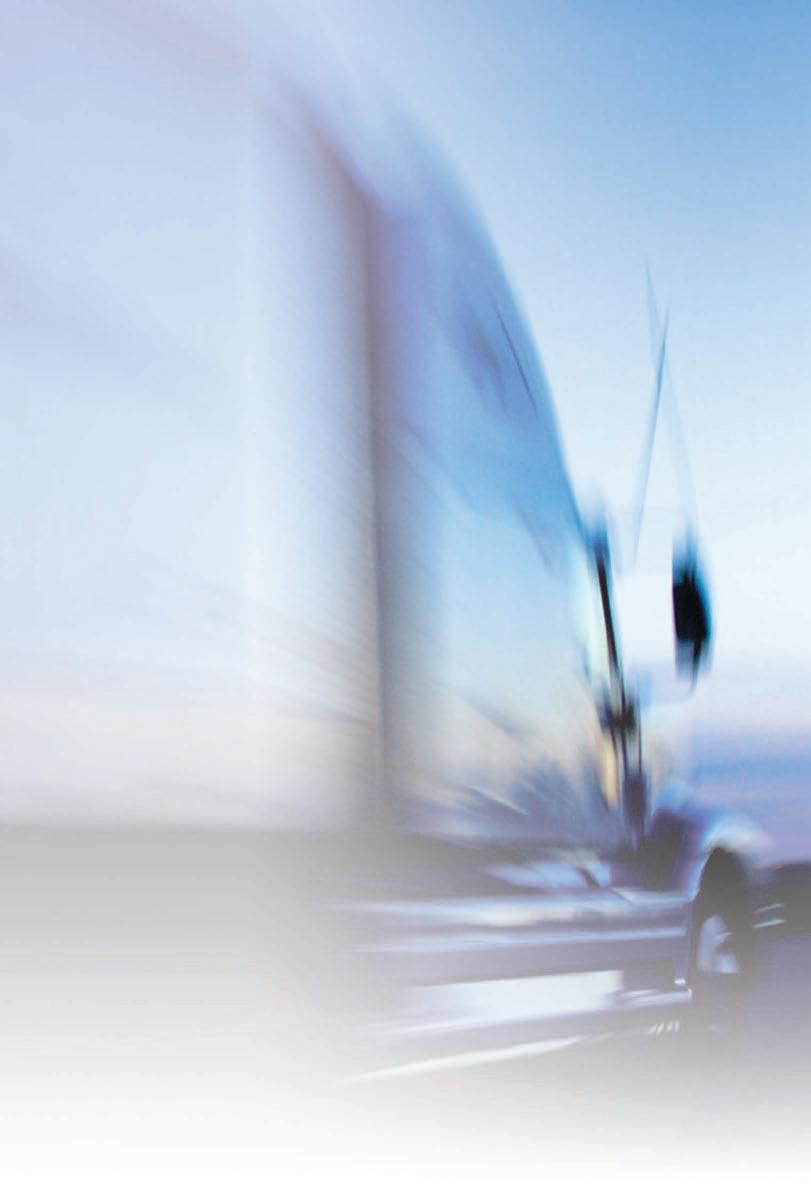

onto the outside, and had to go all the way back like that.
“There’s a sense of pride and self-satisfaction, especially when I tackle an issue on my own and I’m able to get myself out of difficult situations, when all I have to rely on is me.”


While the job is undoubtedly tough and challenging in so many ways, Risk says this is where she wants to be. “I had that dream of going into carting cattle. Then when I started it dawned on me that I grossly underestimated how hard it is. It’s the hardest trucking job I’ve ever done. But thankfully I had built my trucking knowledge and experience up before trying to tackle cattle carting.
munity. That would have to be the worst road I’ve travelled on, it was horrible. It’s about 250 kilometres of dirt but it takes about 5-6 hours. I actually had the bolts snap from under the microwave while going through there and it just hit the floor and the glass shattered everywhere,” she said.
“Then I got up there to do the load and had two flat drive tyres and didn’t have any more spares – so I pulled the pumped up ones onto the inside and the flat ones



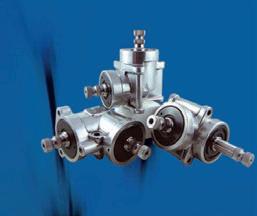

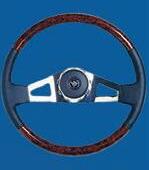



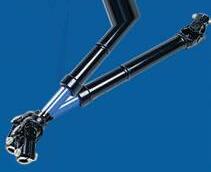



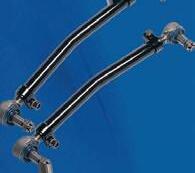



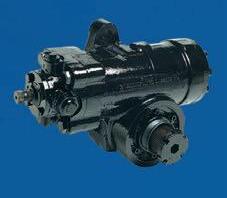
“Being a woman in this sort of role, I feel like I constantly have to perform at the highest level. You have to be in front of the ball, because if you drop that ball you know you’re going to be judged more harshly than if a bloke drops the ball. There’s no room for error.
“This is what I’ve worked so hard at. Looking at my mirrors and seeing all those crates and the cattle’s’ snouts hanging out the sides – everything that I’ve worked towards is for this moment. When I go and check the tyres, I’ll chat with them on my way down. Cattle carting for me is the pinnacle of trucking. I’ve done oversize, general, but in my experience this is where I want to be.”

AS FAR I’VE NOW COME, I NEVER THOUGHT I’D AMOUNT TO BE DOING WHAT I’M DOING, IN THE QUADS, CRUISING AROUND THE OUTBACK, IT’S JUST SO UNREAL.”
KATTIE RISK
OWNER operator Steve Krahe was fuelling up his 2006 model Freightliner Argosy at the Gold City Roadhouse on the outskirts of Charters Towers when Big Rigs saw him.
It was just before lunchtime and Krahe had brought up portable huts and containers on the double road train from Brisbane to Mareeba on the Atherton Tablelands.
He sub-contracts for ECS Project Logistics out

of Brisbane.
“I came up via the Kennedy Highway and will be going back empty and then will be back up that way with wind turbines for Ravenshoe,” he said.
Aged 67, Krahe is of German descent and has been a truckie since he was 17 and won’t be changing any time soon.

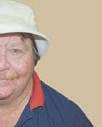
He likes stopping at the Gold City Roadhouse where there is plenty of parking for heavy vehicles.
Many drivers stop there who have travelled from out west along the Flinders Highway.
“You get a good feed here. My favourite meal is pork chops,” he said.
Krahe rates the highway between Charters Towers and Clermont as one of the worst to get along.
In the NRL, he barracks for the Brisbane Broncos. “I also like watching motor sports and used to be into drag racing,” he said.


FOR 20 years Marty Coates had worked as a water rafting tourist guide before snaring his ideal job as a truck driver.
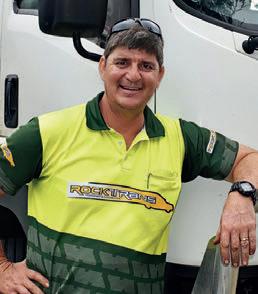
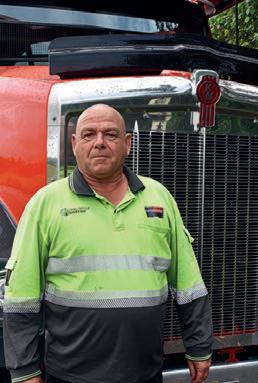
That was three years ago and the 56-year-old is now employed as a driver by Rocktrans, based at Tolga, a small and vibrant village on the Atherton Tablelands.
“Covid stuffed up the tourist industry back then

and so the water rafting job stopped and I am so glad to now be a truck driver,” he said.
Big Rigs saw Coates on August 4 when he stopped in his Isuzu 900 Sitec 255 at a rest area in Craiglie which is off the Captain Cook Highway near the turnoff to Port Douglas.
“I have freight for Kmart at Port Douglas and travel











around the Atherton Tablelands as well as Mossman. This is really a good job,” he said.
Not surprising when you consider the drive along the winding Captain Cook Highway between Cairns and Mossman offers some of the most scenic views in the country.
Although he does find the drive along the Gillies High-
way between the Atherton Tablelands and Gordonvale very challenging.
Coates is a passionate NRL follower and I asked him if he has any other special hobbies.
“I like to relax when off work and enjoy a few cold Toohey’s New beers,” he said.
Other than the variety of people he meets and the


beautiful region he drives around, what are the other lures of this job?
“I have two children aged 14 and 17 and get to spend a lot of family hours together,” he said in conclusion, as he drove off in spitting rain. Ironically the water rafting industry around the Tully River has been rejuvenated and I saw a group stop off at Malanda after that.
PART of the duties for Matt Coubrough and Shane Black is clearing fallen tree branches from the road between Mount Molloy and Mossman in far north Queensland.
The pair work for the Mareeba Shire Council and get around in a Fuso.
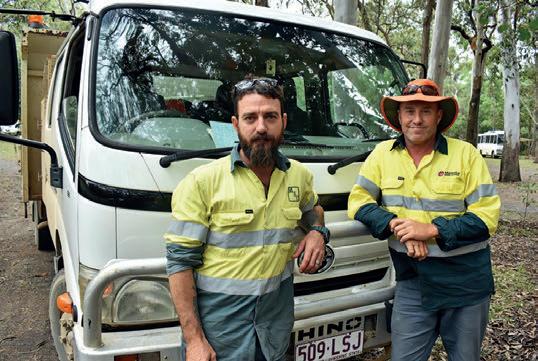
When Big Rigs saw them last month, they were having lunch at the Rifle Creek rest area just near Mount Molloy.
It is a hidden oasis for travellers with lots of parking space, clean toilets, and tables and chairs.
However it is often overrun with parked caravans leaving little space for trucks.
“There were many caravans here today,” Coubrough said.
The work they do is vital as much of the section of Nine Mile Road they clear branches
from is amongst a rainforest area.
Often fallen branches make it difficult for travellers to negotiate.
Outside work, Coubrough enjoys camping and fishing out at the Great Barrier Reef.
“When the weather is good,” he said.
I asked the friendly pair what aspects of the job they like. “The hours we work are good for spending time with family after we finish,” Black said.
BEFORE returning as a truckie, versatile Joe Allen had been a bus driver for 22 years.
“I got out of being a bus driver taking tourists around because I was tired of dealing with some of the people on them,” he said.
The 53-year-old gained his licence at age 20 and was travelling from Mareeba to Townsville when Big Rigs met him at a rest area near Tully.
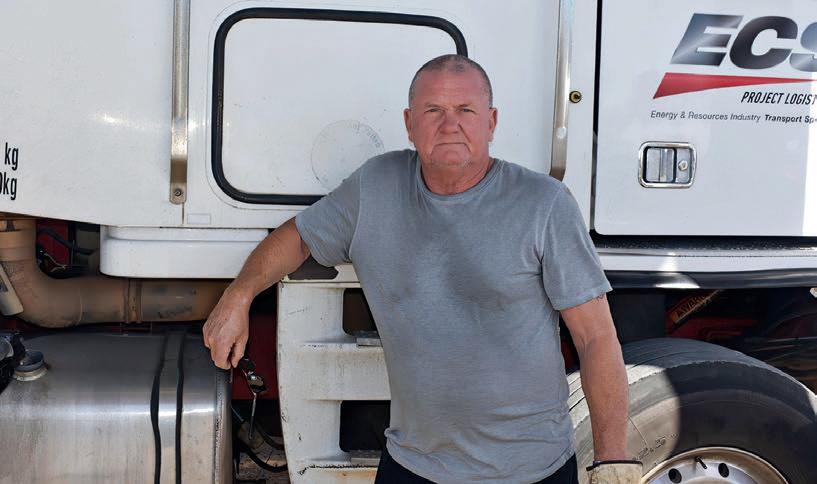

“I used to live at Rosebud in Victoria and barrack for the Footscray Western Bulldogs in the AFL. But I also
follow the Cowboys in the NRL as I live up here now,” he said.
Allen doesn’t stop at many roadhouses for food and said he tries to carry his own on trips.
“I generally take sandwiches along with me as it is hard to find a good place to get meals,” he said.

Whilst Allen feels there could be more driver friendly rest areas along the way, he has a preference for one.
“It is near Babinda on the Bruce Highway and is a good place to stop,” he said.
WHEN you require rubber or steel cable for your transport needs, look no further than Andromeda Industries, industry leaders in rubber and wire rope products.
Located right on the New England Highway in the village of Moonbi, 22km north of Tamworth, Andromeda Industries prides itself on producing innovative solutions for the transport and heavy vehicle industry and beyond with new and used rubber products to suit all areas of the transport industry.
Products produced by Andromeda Industries meet and exceed the high demands of the Australian transport industry, including our Heavy Load Safety Mat which is designed to improve safety by providing an increased coe cient of friction during the transportation of heavy loads that include heavy

machinery, OSOM loads and many more applications.

e Heavy Load Safety Mats provide increased friction and a non-slip surface to improve safety and stability, while also protecting the deck on your truck and trailer from machinery grouser plates.
Heavy Load Safety Mats are also re retardant and resistant to oil and fuel spills, resulting in years of constant use which allows a great return on investment.
Andromeda Industries also produces split belt rubber for use as mud aps and rubber fenders/guards. Easily installed and extremely durable, these mud aps and guards are ideal for use in the extreme conditions faced by our transport industry here in Australia. Extremely hardwearing, they are perfect for your transport needs.

Some other products produced by Andromeda Industries include splash guards for livestock trailers, anti-slip ooring rubber for livestock oats, load binding rubber, anti-slip traction mats and holey belts for ute and truck trays. Need steel cable and wire rope for your transport requirements?
Andromeda Industries has you covered.
Proudly Australian owned and operated, Andromeda Industries has been manufacturing Super ex steel cable since 1972.
Andromeda Industries is an industry leader in the world of wire rope and is very well versed to be able to provide you with all your wire

ndromeda ndustries has your steel cable and ire rope needs covered. rope and steel cable needs. Whether you are looking for a tow winch cable, lifting slings or just general-purpose wire rope and accessories, Andromeda Industries will ensure you have the correct equipment for the job, with our range of general-purpose steel cable ranging from 5mm through to 24mm and Superex steel lifting slings rang-
ing from 10mm through to 96mm. With lifting capacities from 1.0t through to 168.0t there is a wire rope or steel cable for all of your transport and lifting needs.
For any further information or to see our complete range of products, please visit the website at andromedaindustries. com.au or call the friendly sta on 02 6760 3773.

PRODUCTS PRODUCED BY ANDROMEDA INDUSTRIES MEET AND EXCEED THE HIGH DEMANDS OF THE AUSTRALIAN TRANSPORT INDUSTRY.”
BIG RIGS has been to countless truck shows over the years so it could be easy to become blasé about them – not that we do. But to say we were blown out of the water by the Casino event last month is a masterclass of understatement.
is year, Casino attracted 581 registrations and, it was estimated another 40 or so turned after registration had closed, making it ocially the biggest truck show in the southern hemisphere.
Known to all for his tireless work in organising Haulin’ the Hume and e Clarendon Kenworth Klassic, Bruce Gunter arrived at Casino for the rst time with his newly restored 1978 Kenworth K125 CR.


Originally owned by Max Keogh and admired by Bruce when he was a lad, he bought the truck in 2011.
e restoration, done himself with some help from good mates took nine years – a little longer than the12 months Bruce had originally envisaged.

Running an 892 Detroit through a 13 speed non-preselect and on torsion bars, Bruce has retained as much of the originality is possible.
With Bruce bringing his Denning bus to Casino, driv-
ing duties for the K125 were left to mate, Glenn Dawson.
“Since his accident, Bruce’s back isn’t really up to this so I drove it up from Sydney,” laughed Glenn. “I think my back might be worse than his now, and we still have to get it back home.”
Jon Kelly has been an ambassador for Casino since its inception 10 years ago. Last year he turned up with 12 trucks, upping the ante to 16 this year, “because my team insisted.”
“You know, we’ve put $10 million worth of gear
on the ground here to maybe win a ‘$30 trophy’. Seriously though, that’s not what it’s about. e outside world needs to see this. We all know what the average bloke driving up the highway thinks of trucks and its shows like this that are good for the industry as a whole.”
Jon and his Heavy Haulage Assets business won three awards.
Scott McSweeney turned up with his truck, ‘Top Cat’ one of the most unique Peterbilts in Australia, if not the world. With a 3408 CAT V8 motor, it is one of only three trucks with this motor working in Australia – the others being Midway Concretes Peterbilt and a cab over Kenworth that runs Melbourne to Perth. But Top Cat is much more than just the motor in it.
“It’s a 1967 Peterbilt that a friend of mine imported from America and it was a basket case. Everything was stu ed on it. So we converted it, stripping it down to a bare chassis, lengthening the cab by 10 inches so that I would have more leg room.
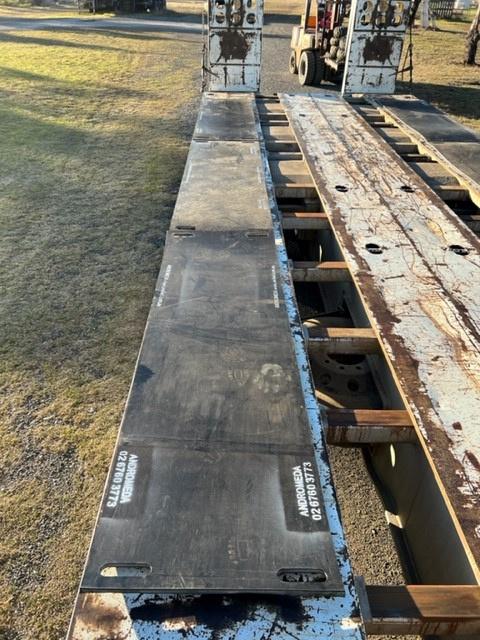
We lengthened the bonnet by 18 inches to t the CAT and because the door pillars were bent, we converted them to suicide doors, getting rid of the door handles in the process.”
Keeping it full-American, Top Cat has 24 inch rims (very rare in Australia) and a 6 and a half metre wheelbase.
e truck has been built out of at least four others - the motor out of a 1984 cab over American Freightliner, the running gear from a 2000 Peterbilt 379 extended hood, and the bunk from a 1986 Pete. Of the cabin, the mudguards are from a 1967 Peterbilt with the rest being hand made.
“It has a Morris Minor wiper motor replacing the original air wipers which were noisy and don’t work. Also there wasn’t the room for the original.”
It’s worth noting that this is a working truck.
“ is truck was originally built by Mack for Shell Australia which is why it sits so high. It’s a heavy spec prime mover with all the good gear on it. ere is a medallion
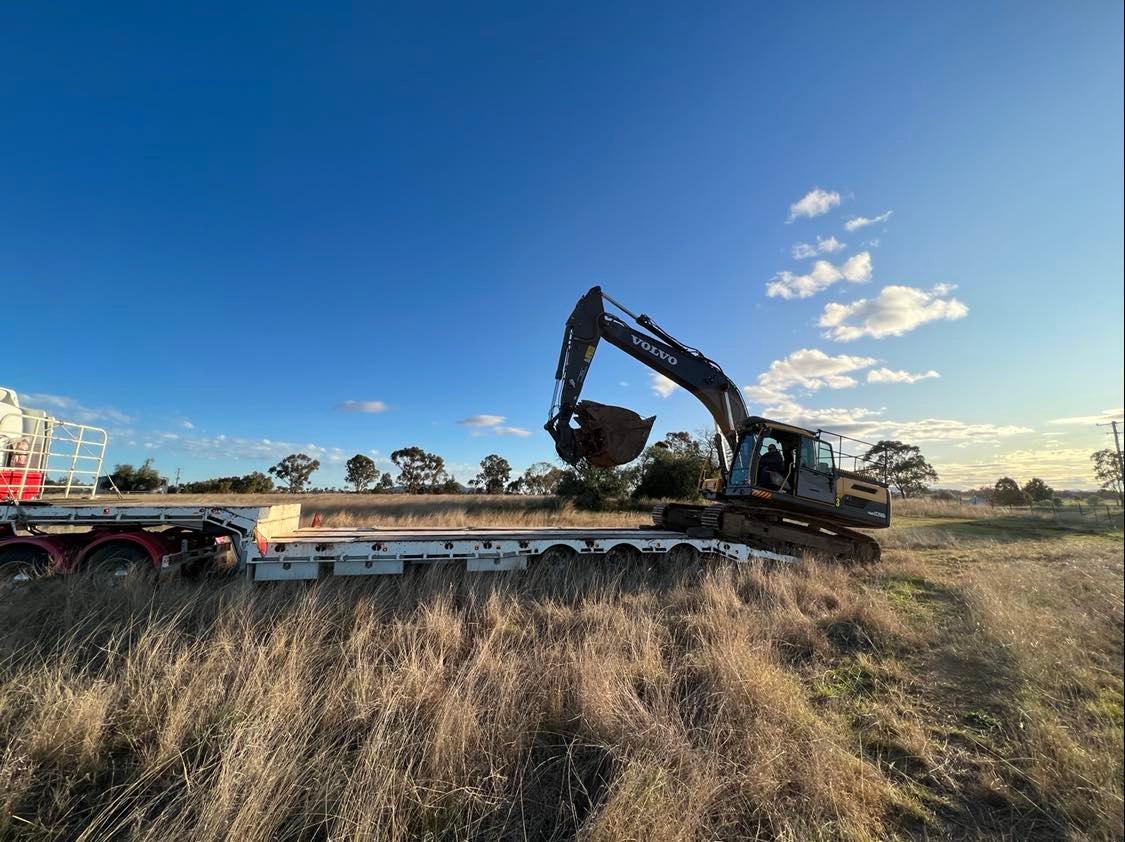
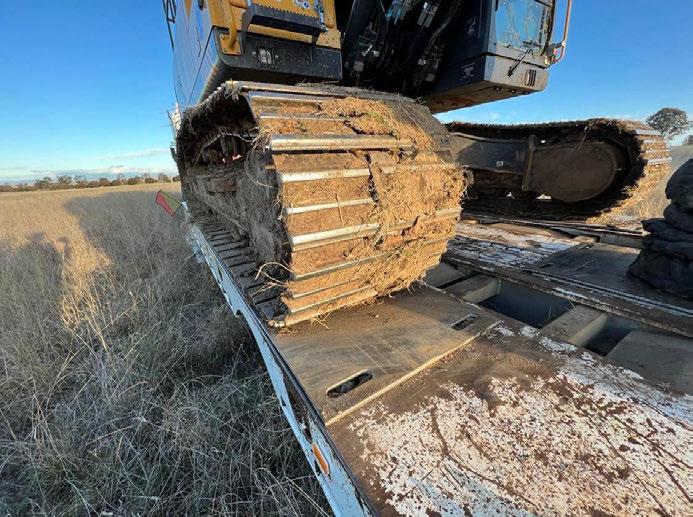
on the steering wheel signifying that it is a specially built truck.”
Of course, there can only be one Truck of the Show and this year that honour went to Luke Wilson who drives the winning Kenworth T908 for Greg and Nadia Bulmer, of Stony Chute near Kyogle, NSW.
“I’ve never won anything and it’s a privilege to drive this truck. It’s a testament to Greg and Nadia and the way they have done it up. I just wash it and keep it clean.
“It was my daughter, Olivia who talked me into entering the show. I started getting it up to scratch six weeks ago. I’d spend 12 hours on washday, with help from Olivia and my mate’s son Angus, only for it to rain on Monday. ey’ve also been doing a lot of bitumen work in the area so it was constantly getting tarred up and we’d have to start again.”
Congratulations to you all and to Darren Goodwin and the rest of the committee. Today the biggest show in the southern hemisphere, next year maybe the world.


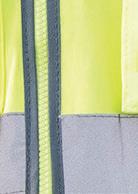



 BY ANTHONY LARAS, NATIONAL MANAGER FOR TRANSPORT, TELETRAC NAVMAN
BY ANTHONY LARAS, NATIONAL MANAGER FOR TRANSPORT, TELETRAC NAVMAN
DATA is the lifeblood of modern transport business, who can achieve compliance, eciency, and better driver behaviour by having information at their ngertips.
Smart OBM is one of these data tools operators now have, along with telematics monitoring applications (TMA), to meet their safety and e ciency goal. Smart OBM and TMA are a regulatory requirement across many of our Australian states, but being a part of them shouldn’t be seen as just something you have to do to get access to the road network.
Most operators would be familiar with the concepts of Smart OBM and TMA, which use digital technology to collect and transmit the mass of axle groups and then calculate the gross vehicle mass in a reliable and standard way.
Smart OBM and TMA are critical tools for government agencies and industry bodies to provide a way to o er assur-
ance around heavy vehicle access to the state road network. As we have seen, Smart OBM monitors the mass of a vehicle combination’s axle groups, while TMA records important positional information, which can provide valuable insights into truck movements.
Operator obligations
Under the NHVR’s Chain of Responsibility (CoR), operators are obligated to provide a safe working environment for everyone involved in the supply chain. Smart OBM can help operators meet these obligations by providing an exact measurement of the gross vehicle mass in real-time.
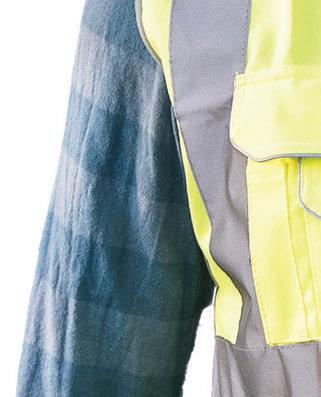
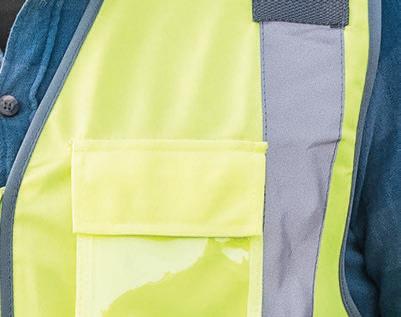
By having this information at their ngertips – and allowing the driver to know what the vehicle’s axle loadings are – Smart OBM can empower anyone who forms a function of the CoR and transport chain to meet their obligations, stay within the law, and provide a safe working environment.
Case study – Bulky goods operator

Smart OBM and TMA, and regulatory programs or











schemes in general, aren’t just about increasing payloads –although that’s an important bene t. Operators can also boost their e ciency by using Smart OBM e ectively, as one of our customers, a bulk dry and liquid transport operator serving the mining, sugar, cement, and fertiliser industries found.
e challenge faced by the company was the fact its vehicles were not allowed to return
via a speci c road after completing a haul because of the load rating of the route. is meant its drivers had to detour 8 kilometres along an approved High Mass Limit route to get back to base, something which increased fuel use, reduced e ciency, and contributed to wear and tear on the vehicles.
e company approached the road managers and jurisdiction about using a more










direct route back to base, however the authority was reluctant to allow this variation in operations due to concerns about bridge infrastructure in the area.
e operator then subsequently proposed tting OnBoard Mass systems within their vehicles, giving it the ability to prove its vehicles were unladen on the return trip to base and therefore complying with the maximum allowable mass limits for the road.
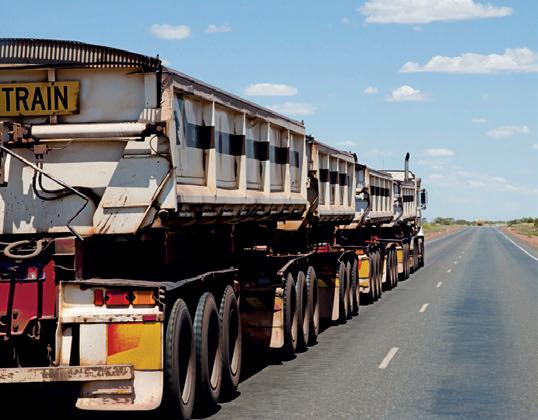
e jurisdiction/road managers agreed to allow the company to implement the solution using Smart OBM, which had several bene ts for the company, including reduced travel time, a lowering of fuel usage and a fall in operating costs.
By being able to access the Higher Mass Limit road back to base, the operator was also able to plan for an additional 2.5 tonnes per payload. Based on 14,000 loads per month, it completed 420,000 extra trips per year and save the equivalent of 12,500 overall trips.
is example demonstrates how smart OBM not only helps with compliance, but




also contributes to e ciency and productivity gains by allowing access to previously restricted routes. is would not have been possible without the real-time monitoring and data streaming allowed by Smart OBM and TMA.
Most jurisdictions in Australia now mandate operators use Smart OBM and TMA on vehicles for access to speci c conditions, schemes, or programs. e added bene t for government is the data collected allows authorities in those states and territories to have a better understanding of how their road infrastructure is used and then plan accordingly.
Governments can also x roads needing maintenance, something which isn’t possible without good, reliable data on how those roads are being used. As a result, all road users bene t from safer infrastructure, and operators become more e cient and safer.
Need advice on your Smart OBM and TMA requirements? Talk to your Teletrac Navman representative.



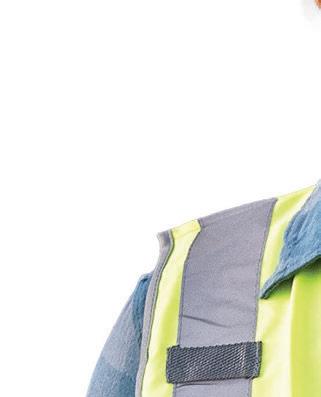
1300 111 477

TN360 provides the tools to help eliminate guesswork. See past the day-to-day to identify and mitigate risks that would previously have been invisible for a safer and more productive operation.
ALCOA Wheels has a rich history of innovation in the transportation industry, with their ground-breaking invention of the forged aluminium wheel in 1948.
eir commitment to advancement remains steadfast, positioning them at the forefront of the industry.
Today’s rapidly changing landscape, characterised by the introduction of electric vehicles (EVs), fuel cell vehicles, and decarbonisation initiatives, has signi cantly impacted eet operations. Additionally, fuel emissions regulations, greenhouse gas emissions standards, and the need for sustainable city transportation have further in uenced the industry.
Australia’s recent adoption of the new Australian Design Rule 80/04, mandating Euro VI standards for heavy vehicle models, marks a signi cant step towards reducing emissions.
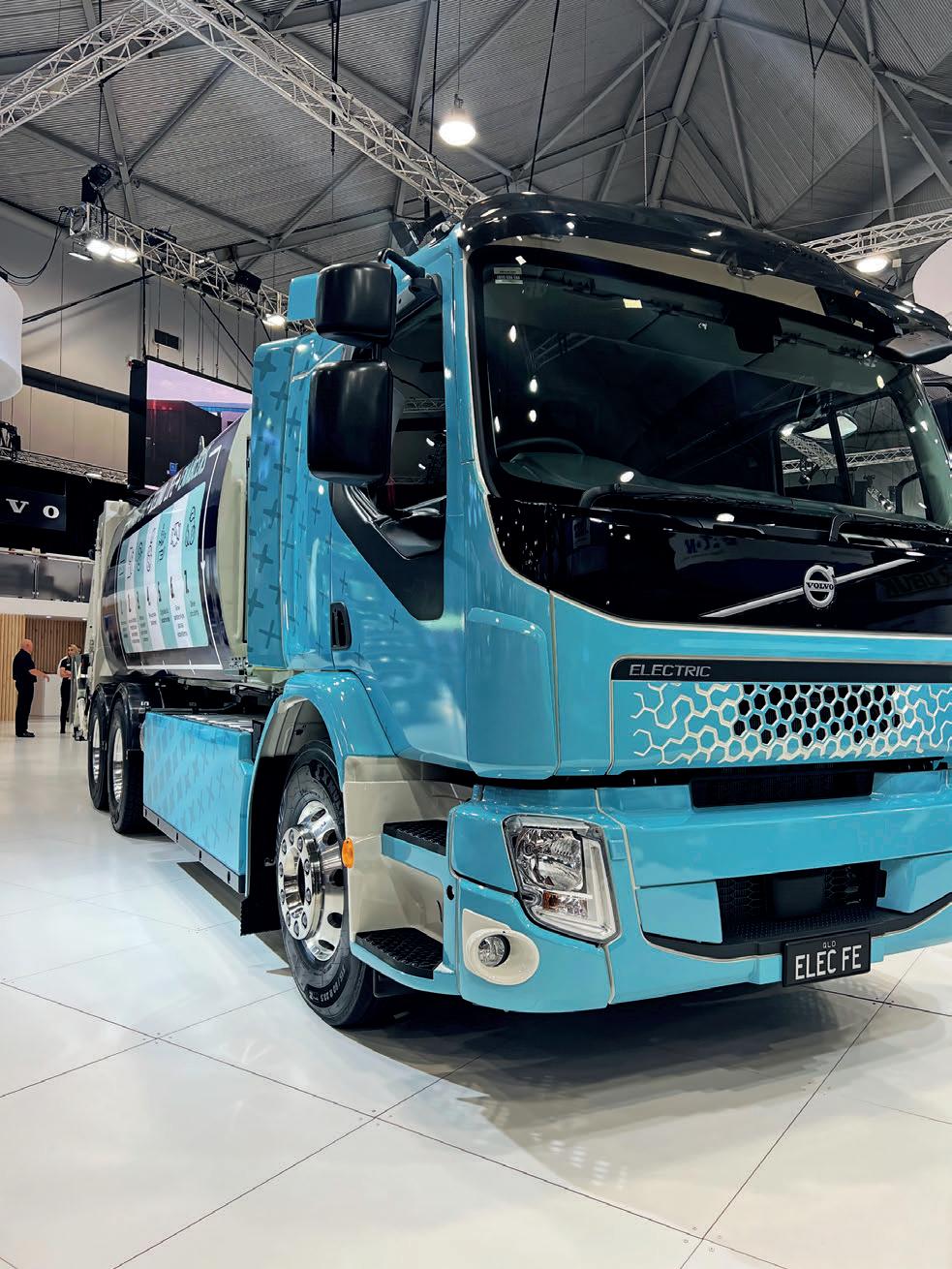
is rule will result in a substantial reduction of up to 80 per cent in oxides of nitrogen emissions and up to 66 per cent in particulate emissions.
Improved laboratory and
on-road emissions tests have been implemented to ensure real-world compliance.
As a result, vehicles have become increasingly heavier due to the technologies required to meet climate change-driven standards.
Role of Alcoa Wheels in electri cation
Alcoa Wheels plays a crucial role in the electri cation of vehicles through their focus on lightweight solutions.
By providing lighter wheels, Alcoa recognises the importance of o setting the added weight of batteries in electric vehicles and the additional mass and space required in Euro VI trucks by the additional emission systems considering Euro VI trucks are heavier than equivalent Euro V trucks, which may reduce the freight they can legally carry.
Lighter wheels also extend battery life and improve the overall range of electric vehicles.
Alcoa Wheels remains dedicated to evolving its innovations to meet the changing demands of the industry.
Alcoa Wheels remains committed to greater productivity through increased payload, improved fuel efciency and enhanced sustainability.
Introduction of the ULT36x wheel
Alcoa Wheels launched the new ULT36x wheel, upholding its position on having the world’s lightest truck wheel portfolio.
Alcoa’s ground-breaking ULT36x 22.5” x 8.25” wheel is 1.6kg lighter than its predecessor, weighing just 16kg.
It is equipped with proprietary MagnaForce alloy, which is 17 per cent stronger than the industry standard alloy.
e new Alcoa ULT36x wheel also features vHubTM Bore Technology, which reduces hub-to-wheel contact area by up to 64 per cent versus other aluminium wheels on the market, leaving less surface area for corrosion to form.
Driving towards a greener and innovative tomorrow
Alcoa Wheels’ tireless pursuit of innovation and sus-
tainability is shaping the future of electri cation in the transportation industry. With a focus on lightweight wheels, they aim to support the adoption of electric vehicles, reduce emissions, and enhance eet e ciency. As the industry evolves, Alcoa Wheels will continue to lead the way, driving towards a greener and more innovative tomorrow.
For more information about the world’s lightest, strong heavy-duty truck wheels, contact: the Howmet Wheel system at 1800 955 191; email alcoawheels. sales@howmet.com; visit alcoawheels.com.au; and follow Alcoa on Facebook. alcoawheelsaustralia.
WIDE tyres, also referred to as ‘super singles’, have been given a tick of approval by a new study investigating their impacts on Australian road construction, in particular sprayed seal unbound granular pavements.
Wide single and ultrawide single tyres have been available for decades internationally, however until now, there has never been a substantial probe focusing on Australian road construction, in particular sprayed seal unbound granular pavements.
is knowledge has always been a barrier to the adoption of next generation wider tyres in Australia, according to experts.
In releasing the ndings of its comprehensive research project using the National Transport Research Organisation’s (NTRO) Accelerated Loading Facility, the Truck Industry Council (TIC) and the National Heavy Vehicle Regulator (NHVR) both say the results are encouraging.
Nine identically designed pavements were constructed, with each loaded repeat-
edly to determine the relative rate of pavement wear for each tyre.
e results showed the pavement deformation rates for both the dual tyres and single tyres were within a similar range, and the 255/70R22.5 dual tyres caused the highest deformation rate.
e comparative pavement wear of super single tyres was not as sensitive to modest variations in in ation pressure, when compared to duals.
According to the nal report summary, tests designed to quantify the e ects of tyre in ation pressure for wide single tyres implied that wide single tyres can operate at a wider range of in ation pressures, with no discernible di erence in pavement wear.
is nding was consistent with the pressure distribution tests which showed less variation in contact patch area when compared with dual tyres.
“Taking a real-world perspective on the comparatively small di erences in pavement wear found, the pavement damage exhibited by the
ithin a similar range.
commonly used 11R22.5 dual tyre con guration was notably in uenced by in ation pressure, with the highest damage observed when these tyres were over-in ated – a common occurrence in practice,” explained TIC technical o cer Paul Caus.
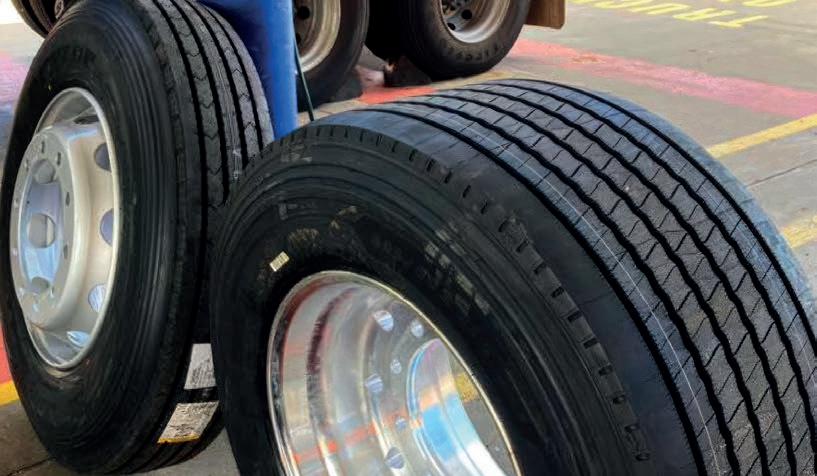
“In addition to the nding, day-to-day use of single tyres make it easier for drivers to check tyre conditions,
monitor in ation pressures, and inspect brake components reducing the risk of overheating brakes and wheel end res.
“It can be expected that in real world conditions, the wider adoption of wide tyres would not cause a discernible increase in road pavement wear.
“TIC’s view is that there is no justi cation in limit-

TIC’S VIEW IS THAT THERE IS NO JUSTIFICATION IN LIMITING AXLE MASSES WHEN USING APPROPRIATE WIDE SINGLE TYRES GIVEN THE IMPROVED VEHICLE STABILITY AND EFFICIENCY THEY BRING.”
PAUL CAUS, TIC TECHNICAL OFFICERing axle masses when using appropriate wide single tyres given the improved vehicle stability and e ciency they bring. ey should be permitted to operate at the same mass as equivalent dual tyred axles.”
NHVR’s chief safety and productivity o cer David Hourigan welcomed the report’s ndings.
“ e ndings of this
report will be of great importance to equip road managers and the NHVR with the knowledge needed during consideration of vehicle load limits and the bene ts provided by super single tyres,” Hourigan said. e project was funded by the NHVR’s Heavy Vehicle Safety Initiative, supported by the Australian Government, and was led by TIC, the peak industry body representing truck manufacturers and importers in Australia.
BENDIX’S latest ADR-compliant Ultimate 4WD Big Brake Upgrade Kits deliver vastly improved braking performance for owners of dual cab utes and their wagon derivatives, in the convenience of two comprehensive front and rear kits.
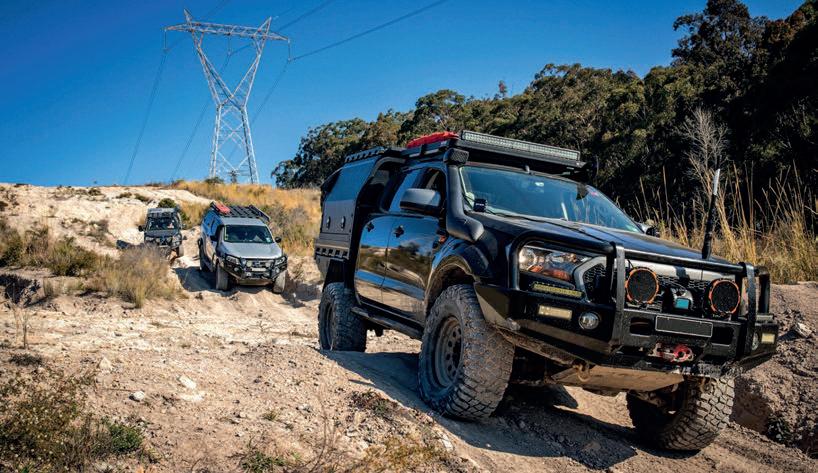
e increasing popularity of these 4x4s as dual-purpose vehicles – family haulers and workhorses – means that there’s
a huge range of accessories and modi cations available. Although these improve functionality, they also add weight, increase centre of gravity and rolling resistance which reduces OE braking performance –the Ultimate 4WD Big Brake Kits address this shortfall.
What’s included?
e front kit includes larger diameter Ultimate 4WD Disc
Brake Rotors, Bendix 6-Piston monoblock calipers with bracket mounting kit, as well as Ultimate 4WD Brake Pads and Ultimate 4WD Braided Brake Hoses.
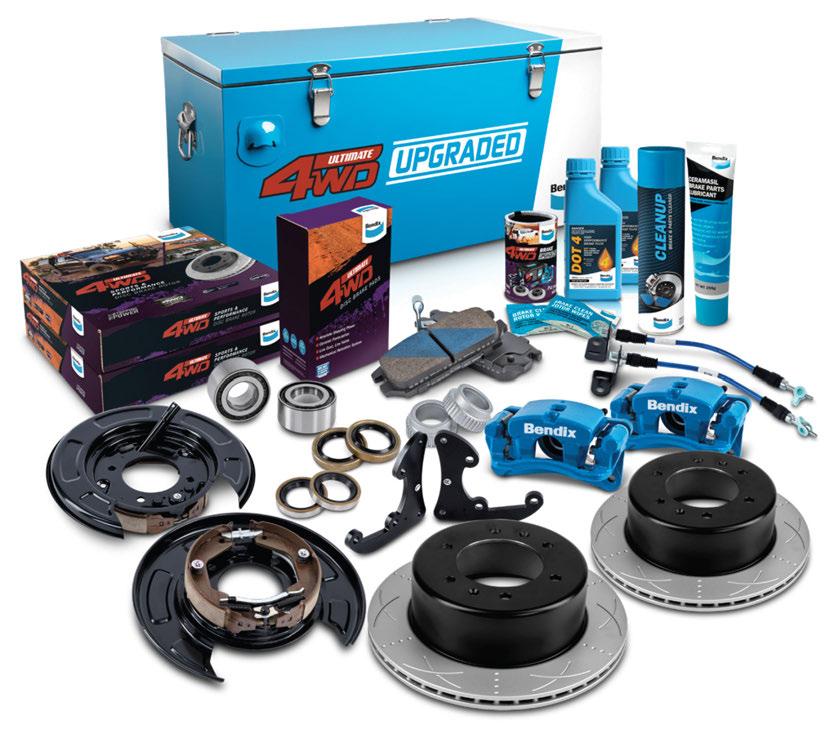
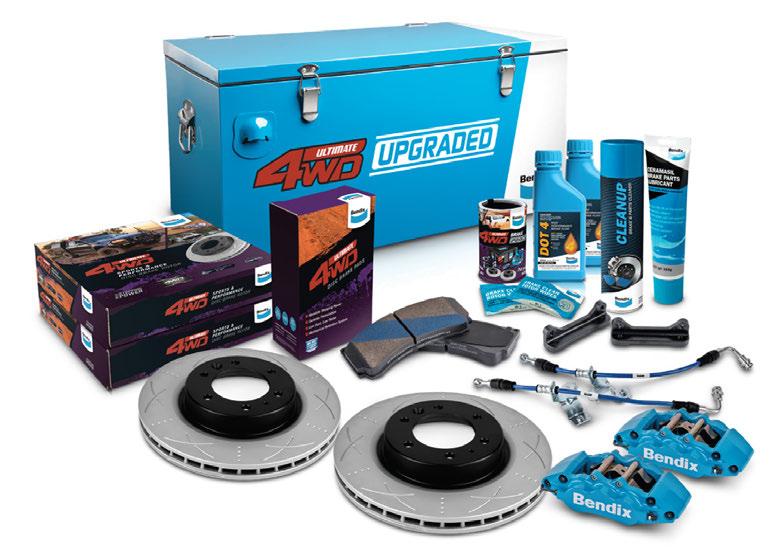
e larger Ultimate 4WD Disc Brake Rotors are 365mm in diameter and feature a ‘Diamond Tip Slot’ that allows gases to escape in demanding driving situations, maintaining braking performance.
Other bene ts of the rotors include High Carbon Metallurgy which improves noise dampening while lowering thermal conductivity. Additionally, the rotors feature SwiftFit surface protection allowing them to be tted without cleaning or anti-rust oil treatment.
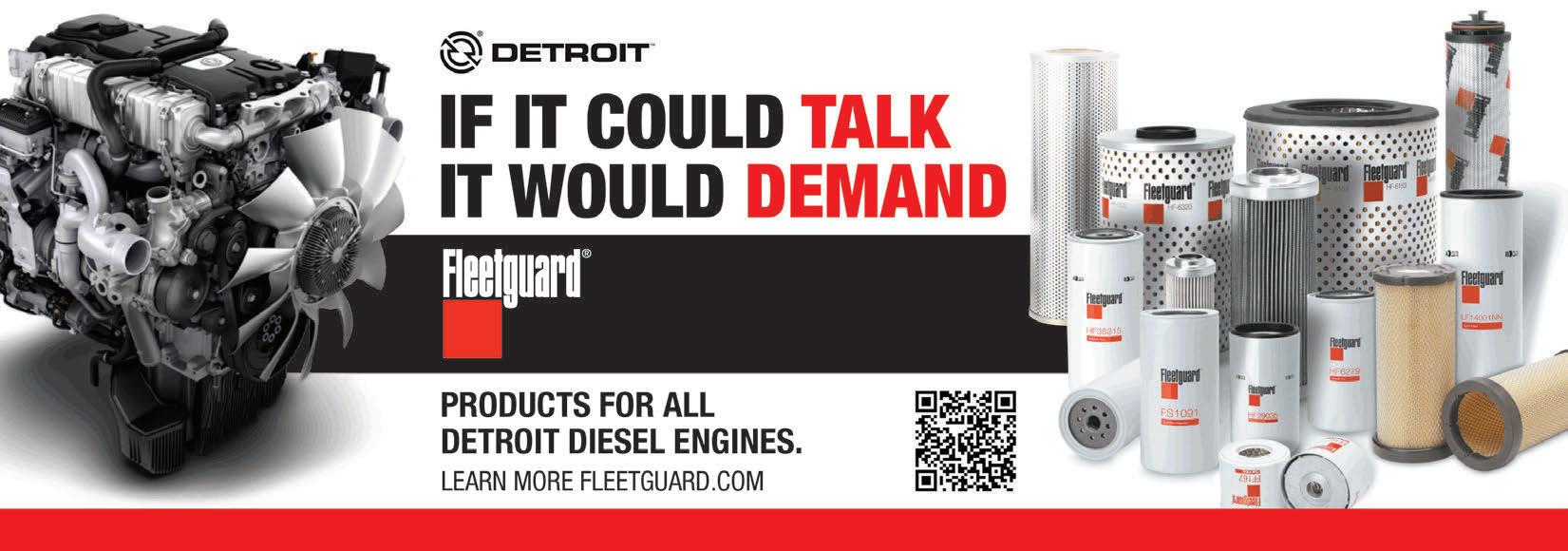
Complementing the rotors are the proven Ultimate 4WD Brake Pads which have been specially designed for use with slotted rotors. Also included is a Mechanical Retention System (MRS) backing plate, which improves pad attachment strength in demanding operating conditions.
Another important component of the front kit is the Bendix 6-Piston calipers – with additional pistons compared to OEM calipers, greater pressure is applied to the brake pads.
SAEj1401-approved Ultimate 4WD Brake Hoses, a
litre of Bendix Heavy Duty Brake Fluid, a can of Bendix Clean-up, a tube of Ceramasil brake parts lubricant and a 60 litre Bendix branded icebox are also included.
Rear Ultimate 4WD Big Brake Upgrade kit with drum to disc conversion e rear kit is a full drum to disc conversion package, that removes all OE drum assembly and replaces it with the Bendix Ultimate 4WD disc rotors and hydraulic calipers. Installation requires the removal of all components from the vehicle axles, which is why the kit comes complete with replacement bearings and seals (ABS rings and collars depending on vehicle model). e kit also includes a replacement park brake mechanism that’s actuated using the OE park brake cable, Bendix Brake Hoses, Ultimate 4WD
Brake Pads and all the ancillary components and accessories mentioned for the front kits.
Meeting ADRs
All kits are 100 per cent legal and comply with Australian Design Rules. Some legal variances from state to state mean that in certain locations (VIC, NSW, ACT, SA and TAS), an engineering inspection will be required to ensure the kits have been installed properly and are functioning correctly, after which a mod plate will be issued.
For owners in QLD and WA, Bendix have a pre-authorised LG1 certi cate, and all that’s required after tment is to advise the registration authority.
For further information including vehicle suitability details, real world test data and FAQs, visit the website bendix. com.au.
IN the land of the long white cloud, the roads are narrow and the mountains are steep.
Like driving trucks in Australia, truck driving in New Zealand is hard work, and the cost of diesel and tyres can often exceed Australian prices. New Zealanders pay almost twice as much in tax on fuel compared to Australia, there is less demand with a smaller population, and the exchange rate also plays a part.
To these factors, we add narrower roads – more winding and steeper than you might expect – and few motorways. So, the New Zealand truck drivers are very open-minded to innovative ways to save costs.



Australian innovation: thousands of trucks and buses
Atlas Balance Rings are a
highly successful truck and bus wheel balancing system. is unique method of balancing has proven itself to be the best type of balancer ever helping reduce wastage of resources, with many operators saving up to 50 per cent on tyre life, and contributing to a cleaner, greener planet.
e company is Australian made and Australian owned, with close to 10,000 rigs tted here. New Zealand distributor, Aaron Eagle, has tted out over 200 rigs in less than a year. e drivers immediately experience a better drive and freer coasting out of the throttle, so naturally less fuel is needed and there’s less wear on tyres; in fact there is less wear and tear on all parts, including the driver!
Here’s Aaron’s story: “I’m Aaron and I operate a Scania
truck and trailer on tip work around Auckland. In June 2022 I airfreighted a set of Atlas Balance Rings in from Aussie. Taking Simon McQuillan’s advice, I tted my steers only for the rst week. After one day I wanted to t the drives, but I held o . e driveability of my truck changed dramatically in a positive way, left to right correcting disappeared, any tyre roll on certain corners disappeared,” he explained.

“Once I tted the drive rings the whole truck rolled down the road so much freer (coasting) out of the throttle. You went so much further before having to put your foot down. I was on a set run for seven months, four months prior to the rings being tted. In the later three months, I averaged a 3.5 per cent fuel saving (with the full truck on Atlas
Balance Rings, not trailer). is blew me away so much (and I haven’t got onto the tyre wear yet) that I took on the New Zealand distributorship for Atlas Balance Rings. Today, we have 200

rings.
trucks running around the country with Atlas Balance Rings on and growing daily.”
Fitting Atlas Balance Rings is a simple and easy exercise, with a low entry cost from $605 for a pair of
steer balance rings. A small investment to save many thousands on tyres and diesel.
For more information, visit atlasbalance.com.au/ shop/ or call 1300 228 527.
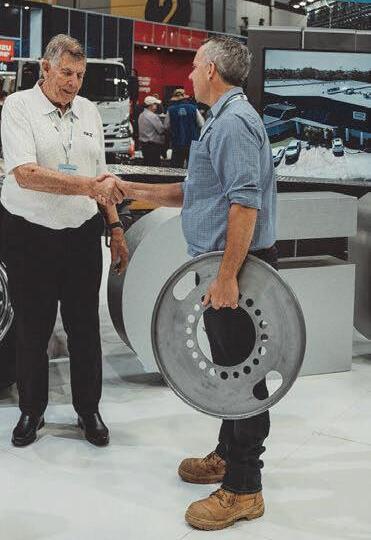
WASTE management contractor JJ’s Waste and Recycling will put the Volvo FE Electric to work in waste applications, as part of a threemonth trial on Queensland’s Sunshine Coast.

A ectionately dubbed “Oscar” by Volvo Group Australia (VGA) sta , the 6x2 FE Electric featured on the manufacturer’s stand at the 2023 Brisbane Truck Show.
e truck has been tted with a rear loading; 16 cubic metre waste body ideally suited for urban operations.
Volvo says the new trial with JJ’s will provide insights into the impact of electric PTO use on range
and productivity.
Utilising four Gen 2 batteries with a capacity of 265KWh the dual motor FE Electric has a potential range of up to 220 kilometres.
“ e electromobility and waste management really do go hand in hand,” said Gary Bone, vice president Volvo Trucks Australia. “ e stop start nature of this application in densely populated urban areas should prove to be a promising zero emissions solution for our cities.”
Bone added that he’s looking forward to seeing the results of the trial.
“Recent developments in
battery technology, which will ow down to Volvo’s medium duty electric range have seen signi cant increases in both range and charging performance which will only add to the attractiveness of electric vehicles in waste applications,” he said.
With the rear loading waste body, the FE Electric has a potential payload of up to 7 tons depending on body positioning and the corresponding front axle load.
Joe Branagan, operations manager, JJ’s Waste and Recycling, added, “ is is the perfect opportunity for us to understand how we can
decarbonise our eet over time.
“Clearly we can’t just switch to electric overnight so partnerships like the one
we have with Volvo Trucks are vital to see what applications we can put electric trucks to work in now as well as what the future of

zero emissions waste management could look like.
“I will be watching the outcome of this exercise with great interest.”
FUSO has begun an Australian test program for its next-generation all-electric eCanter, that will see it running day and night, completing ve double shifts a week on a loop near Melbourne.
e manufacturer rst launched the zero-emission eCanter in Australia in 2021.
e local test regime for the new model comes in addition to a massive global Fuso eCanter test program.

Fitted with a tray, the widecab eCanter will run half of its testing with no load and half with a full load at its Gross Vehicle Mass (GVM) of six tonnes.
“Fuso is determined to ensure we vigorously test our trucks, diesel or electric, in local conditions, and that is what our customers expect from an OEM with a long history in Australia,” said Fuso Truck and Bus Australia vice president Alex Müller.
“ e zero emission eCant-



er is a serious workhorse, so we need to be absolutely sure it can toil hard around the clock in rail, hail and shine on Australian roads before we hand it over to our customers.”
He added that the test data will also enable Fuso to work with its customers to plan how the eCanter can be utlised in their operations when production vehicles are made available.


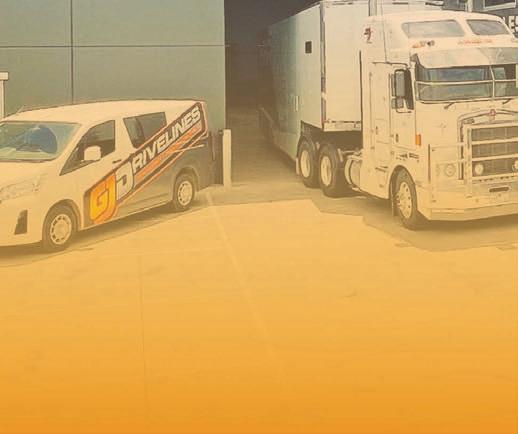
e existing eCanter was the rst electric light truck with active emergency braking and the next model extends this further with additional advanced safety features.

e next generation eCanter introduces a raft of new technologies and a substantially larger line-up including di erent cab sizes, wheelbases and battery pack options.
One of the eCanter’s new headline technologies, not

seen in other electric trucks currently available in Australia, is an eAxle, which delivers considerable e ciency gains.


In most electric truck designs, a motor is located towards the front of the truck and a driveshaft links it to the drive axle at the rear of the truck. For the next generation eCanter, engineers have built the electric motor into the rear axle itself, so there is no need for a driveshaft. is saves weight and reduces energy losses. e introduction of an electric Power Take O (PTO) opens up a raft of new possibilities, with the truck’s electric power now able to operate tipper bodies, cranes or even a fridge body.
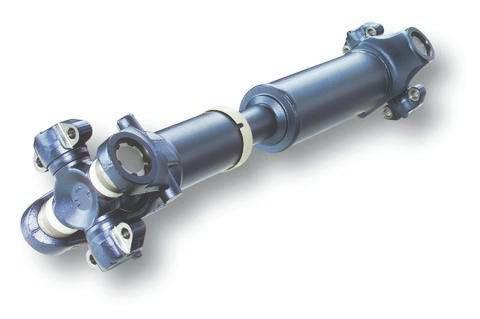
Despite all the advances, the new eCanter can be charged with common AC power if customers don’t want to invest in a DC charging station.




AUSTRALIA needs to do better when it comes to plans and policies for fuelling hydrogen trucks or it will be left behind by the rest of the world, warns a new report.
e study released this week by the CSIRO, Australia’s national science agency, calls for Australia to focus on hydrogen-powered transport, alongside electric vehicles.
While battery electric vehicles will drive decarbonisation of road transport in Australia, there are opportunities for hydrogen-powered vehicles to play a signi cant role with long-haul travel and freight transport, the report said.
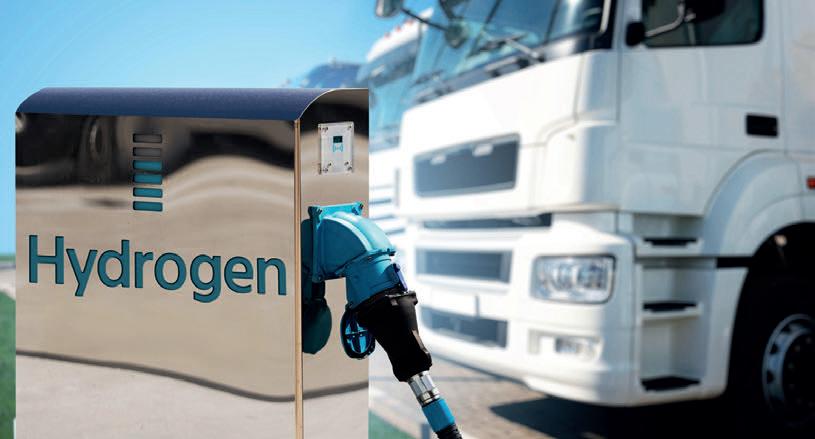
is is because hydrogen-powered vehicles are quicker to refuel, have a greater range between refuelling stops and can maximise their payload because they don’t need to carry large, heavy batteries required by electric vehicles.
e ‘Hydrogen vehicle refuelling infrastructure’ report sets out the opportunities and challenges for deploying refuelling stations for hydrogen-powered road vehicles in Australia.
CSIRO’s chief scientist,
Prof Bronwyn Fox, said Australia needs to urgently decarbonise its transport sector, which currently accounts for 18.6 per cent of our greenhouse gas emissions, if the country is to meet its net zero commitments. Heavy vehicles are a key contributor to these emissions.
“While we know hydrogen will play a critical role, we also know that much of the key infrastructure for storing, moving and distributing hydrogen for use as a transport fuel – including pipelines, storage tanks and refuelling stations – is yet to be built,” Prof Fox said.
“ at’s why this report is so important. It identi es priorities for action, including areas that would bene t from targeted research and innovation.”


e report compared the di erent hydrogen storage and dispensing options available, and evaluated refuelling infrastructure options based on fuel demand and distance from the hydrogen source.
It found that while all Australian hydrogen refuelling stations currently have onsite hydrogen production, we will need to move to centralised
o site production and distribution of hydrogen in order to refuel vehicles at scale.
Shawn Wolfe, executive advisor at GHD Advisory and lead author of the report, said Australia currently has only ve hydrogen refuelling stations in operation, with 20 planned or under construction.
e latest opened at the bp Port of Brisbane Truckstop in
Lytton on August 14, o ering renewable hydrogen produced using solar power at Bulwer Island.
BOC is producing the renewable hydrogen at its Bulwer Island production site with a 220 kW electrolyser powered by solar energy generated onsite. It is then transported in hydrogen tube trailers to the hydrogen refuelling station lo-
cated at the bp Port of Brisbane Truckstop.
Bulwer Island production site is strategically located to supply renewable hydrogen to industrial and transport customers across the state.
“ e pace of the transition to hydrogen-powered transport is moving a lot faster internationally than in Australia,” Wolfe said.
“Companies like Daimler and Ampol are not hedging their bets – it’s a hydrogen and electric transport future.


“We need to get into lockstep or risk being left behind.”
Dr Patrick Hartley, leader of CSIRO’s Hydrogen Industry Mission, said research is happening at every point of the hydrogen supply chain, from hydrogen production through to storage, distribution and ultimately utilisation technologies like fuel cells.
“Australia is unique in terms of our size and sparse distribution of population, so nding ways to make hydrogen available across the continent will be a key enabler,” Dr Hartley said.
He said the report will help regulators and industry stakeholders understand where they can best focus their activities and progress their plans to develop infrastructure for hydrogen-powered transport.
e federal government is currently reviewing the 2019-released National Hydrogen Strategy, with a view to becoming a “global hydrogen leader” by 2030.


POWAUTO has always been the rst name in PTOs (power take o s) throughout Australia. Now, rebranded as Hydreco Hydraulics, this is set to continue following the introduction of the new 18 speed Endurant XD Pro AMT (automated transmission) by Eaton Cummins Automated Transmission Technologies. Hydreco has been quick to develop new PTOs for this transmission, working with Kenworth to ensure t and performance is up to the standards demanded by these international companies and the Australian market.

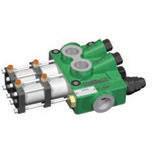
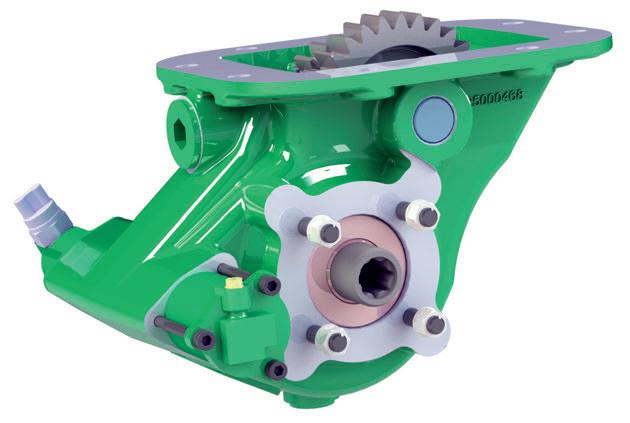
e rst truck in Australia to receive the new transmission is the Kenworth K220 and Hydreco was ready with the PA850BK series PTO. is power take-o utilises the existing architecture of our familiar PA850/851 range but tted with a new idler cluster gear. Operators will bene t from the knowledge that the PTO is a “known quantity” that will serve them well into the future. For the installer, the PTO mounts to the familiar SAE 8-bolt bottom opening via a (unique to
Hydreco) rubberised metal gasket that reduces installation times. Showing overall for the K220 PTO application, that evolution was better than revolution.


e Kenworth T410 and T610 models recently received the upgrade to the new
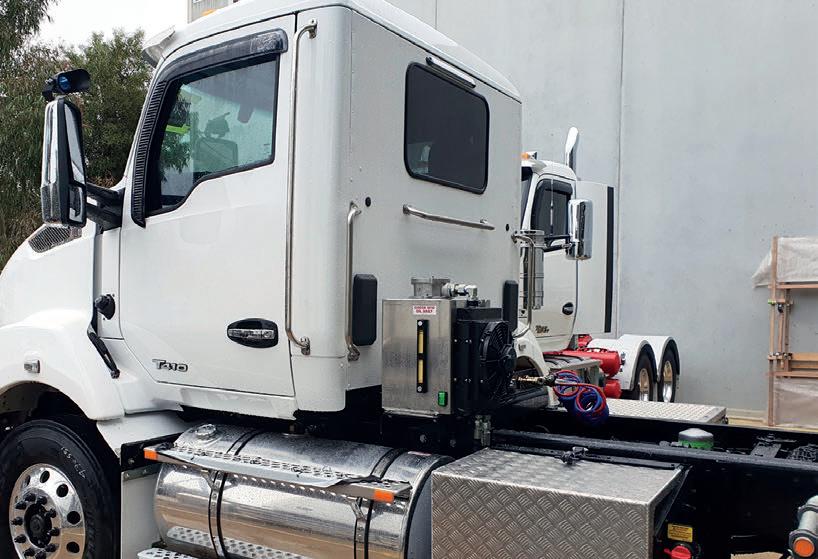


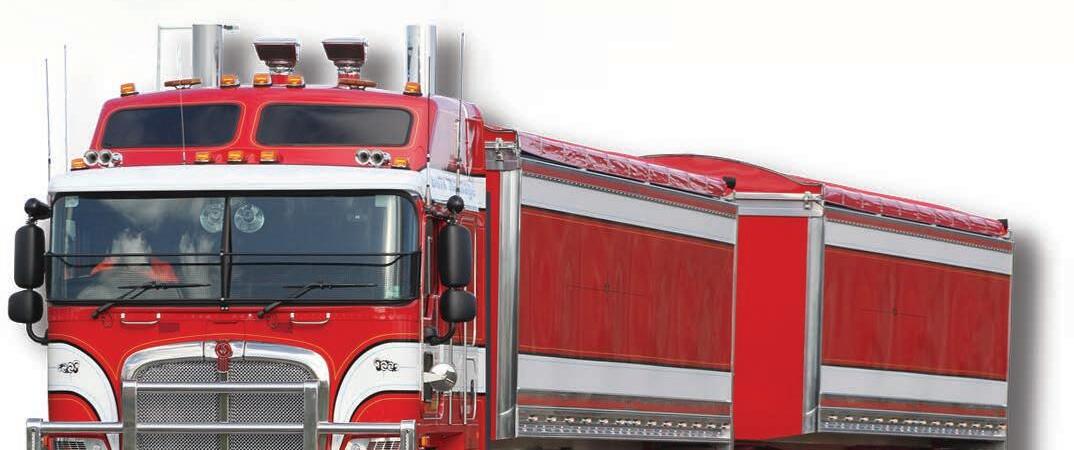
PACCAR TX-18 and Endurant XD Pro transmissions respectively, and this introduced a new raft of challenges to PTO designers. Foremost of which is the location of the engine exhaust in relation to the PTO opening; meaning that the PA850BK could not
be used on these models.



Now it was time for a revolution. Collaborating with Eaton and Kenworth engineers, Hydreco came up with a novel design for the PTO housing to clear the Kenworth exhaust system, which was validated via rapid pro-

totyping technology. us, the new PA8700 series PTO was released in August 2023, ready for distribution to the dealer network.
A great addition to your hard-working prime mover would be the new TKC oil tank cooler. e new environmentally friendly oil cooler tanks are an aluminium oil tank and cooler assembly designed for use on vehicles where the hydraulic system is required to work for long periods of time under high pressure, which can cause signi cant oil heating. Consistent unloading times can be achieved, due to the hydraulic e ciency not deteriorating as would normally occur as the hydraulic oil heats up.
Typical applications that would bene t from the TKC unit are Walking Floor, live bottoms, tankers, water carts and asphalt trucks. e tank is made from
marine grade aluminium to provide superior corrosion resistance in harsh environments and added durability in high vibration conditions. e tank is available in two sizes, 20 and 40L, that use a small footprint requiring less space for mounting. is provides up to 200kg weight saving over a standard bulk oil tank system. It eliminates the need in some trucks to “split” a fuel tank, preserving the truck’s fuel capacity. e smaller oil capacity is a bonus in the event of a hose failure due to there being less oil to clean up – the vehicle can carry enough spill absorption for the full oil charge and a hose repairer would usually carry enough oil to re ll the system. Powauto to Hydreco; still delivering, still dependable. For more information, please contact Hydreco Hydraulics on 02 9838 6800 or visit hydreco.com.


DELIVERING a remarkable high beam lighting performance, and product styling that exudes quality, the Sentinel range of LED driving lights from Lazer Lamps are becoming a popular choice among truckies all over Australia.
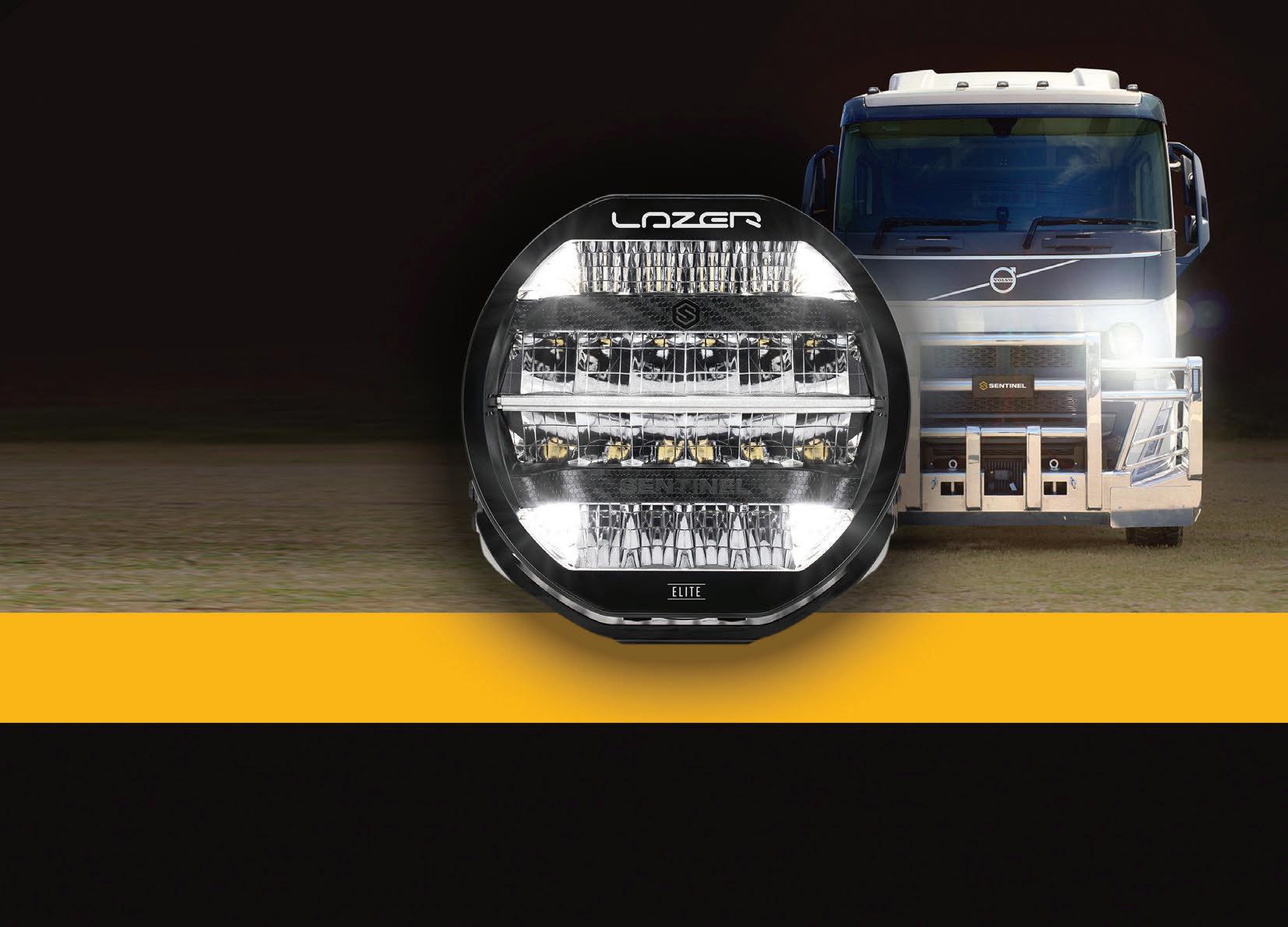
Originally launched in 2021, the Sentinel range of driving lights includes 7- and 9-inch versions, available in Standard and Elite grades and optimised for heavy truck installs.
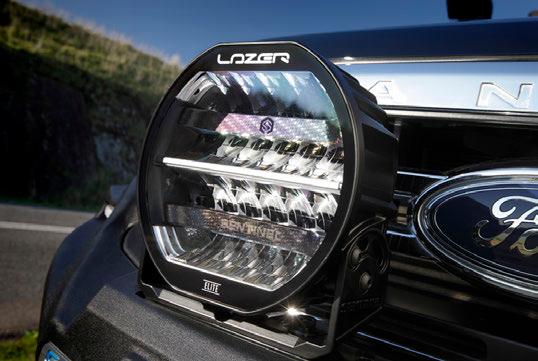

Boasting a true ‘combo’ beam pattern, the central rows of LEDs and optics deliver the
long-range illumination, while the upper and lower sections deliver an ultra wide pattern, with 65 degrees left/right spread.
e result is a perfectly balanced distribution of light, at a carefully selected 5000 kelvin colour temperature, to make night driving safer and more enjoyable. Considering the lamp’s size and power rating (87W in the Standard version, 145W in the Elite version), these lamps outperform on every level.
e Sentinel range of 9” round LED lamps are designed with the speci c needs
of heavy-duty vehicles in mind. Emitting 15,232 raw lumens per lamp, the Sentinel 9” Elite delivers 1 lux to 1049m when mounted as a pair, and o ers superior lighting performance that can help prevent accidents and keep you safe.
World renowned 4WD adventurer Andrew St Pierre White, who remains non-sponsored, has recently installed Sentinels on his Australian truck. You can witness them in action on his cross-country journeys via his Instagram account @4xoverland_com.
e Sentinel range o ers a lighting solution that is reliable and durable, backed by a comprehensive ve-year warranty.
Sentinel lights are built to last, with a rugged construction ideally suited to the challenging conditions that Australian heavy vehicle drivers face on a daily basis. In the words of Lazer Lamps’ founder and MD, Ben Russell-Smith: “ e Australian market is hugely important to us, and when our Australian o ce insisted that we needed a 9” round product, we set out to comprehensively understand the market needs and deliver a product which would
outperform the competition. Australia is big, and the long roads require big illumination distances, but at the same time we were regularly asked by customers for a much wider spread of lighting than was available from other brands. We’ve been delighted by the reaction of this product down under, the beam pattern gives this beautifully wide spread, combined with long range punch. Product validation via our extensive test program is what gives us the condence to warrant these products for ve years. When you’re tting lights on a commercial vehicle, you need to trust that it won’t go wrong. Down time costs money, and we aim to deliver product reliability like no other. We use LEDs which have a colour temperature of 5000K, and a high colour rendering index. High quality LEDs reduce driver fatigue, and make long distance driving more manageable. And when you factor in our IP68 watertightness, you’ve got the winning formula for unmatched reliability and performance.”
All Lazer products are made from the highest quality materials. We use marine grade alu-
minium across all of our product lines, and we pre-treat and powder coat the products in house, to ensure we deliver world class products with every shipment.
e polycarbonate lens is hardcoated to prevent against discoloration and scratches, and has a lifetime guarantee – if it cracks or breaks through normal use, Lazer Lamps will replace the product.
e aesthetic appeal of the lamp is furthered through the sculpted diecast aluminium mounting bracket, which like the lamps themselves has a marine-grade pre-treatment before being powder coated.
As with all Lazer products,
the Sentinel range of lamps have been designed, engineered and manufactured in-house, at the UK-based head o ce and production facility. Established in 2010, Lazer Lamps has remained at the forefront of auxiliary LED lighting.
At Lazer Lamps, there is no compromise in regards to component parts, or build processes to achieve a superior product, while simultaneously ensuring that environmental stewardship and an ambitious carbon-reduction program feature heavily in the product’s design and build.
For more information, please call 08 7092 8444 or email sales@lazerlamps.com.au.
HIGH-PERFORMANCE LED LIGHTING SOLUTIONS, MANUFACTURED IN THE UK AND BACKED UP WITH A 5-YEAR WARRANTY!

A BUSINESS born from hardwork and determination, Stattic Heavy Haulage was started by then 21-year-old Harry Christou in 2012 with just one truck.
As he explained, “I couldn’t get a job. I applied at a lot of places and no-one would give me an opportunity so I ended up getting my own truck and creating my own opportunity from there. At rst, I was moving containers, then I slowly shifted into transporting construction equipment and then into heavy haulage.”
Now 33, Christou has continued to grow and develop his business, which now operates a eet of 11 trucks from the company’s base at Werribee South in Melbourne. Its operations are centred around heavy haulage, and transporting construction equipment, such as cranes, building supplies and road barriers, Australia-wide.
ough Christou spends less time behind the wheel these days, he was actually in the truck when he spoke with Big Rigs. “I usually don’t hit the road much myself, but I’m heading to Alice Springs at the minute. I get behind the wheel when I have to, it’s only about once a month or so now, but I do miss it,” he said.
A few years ago, Christou made the decision to implement WHG’s telematics systems across his eet. “We were actually with another company and then shifted over to WHG when they called and explained their product, which is a far better quality product. You often get cold calls from people, but I’m glad I gave these guys a go,” he explained.
“ ey o er better customer service and a bigger team. You could tell straight away they offered a superior product. I did a

trial with them rst and it denitely proved itself.”
Stattic has adopted multiple WHG technologies including solar panel trailer tracking units, live-tracking GPS and the new FleetCAM vehicle monitoring system.
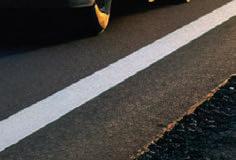
“FleetCAM is one of best things I’ve ever done to my trucks,” Christou said. “If an incident occurs, I can go on and see exactly what happened. it means we don’t need to solely rely on drivers accounts or the public, we can just log on and see for ourselves.
“ e FleetCAM system includes forward facing, rear facing and central facing dashcam cameras. Prior to having these, we had issues with people false-



ly claiming we had hit them; so this gives us piece of mind that if something does go wrong, we can investigate correctly and either defend ourselves or take appropriate action if needed.”
Solar panel trailer tracking units are also tted across the trailer eet, which is comprised of four low loaders, ve at beds and two dollies.
“ ese solar panel tracking units are mainly used for security. If a low loader is stolen, it’s literally half a million dollars in the two trailers I have on. And they’re really not easily replaceable either – I waited two years for these ones. at’s why I have that additional security measure in place,” explained Christou. “I actually noticed them on
another person’s product and realised how good they were. It just turned out that WHG supplies that customer as well.”
Adding to the WHG products used by the company, live tracking GPS systems have had a big impact. “With every truck I have and every truck I buy, the rst thing I do is call WHG and they come out and t GPS and the FleetCAM cameras,” Christou said. “You can’t constantly ring drivers and ask where they are or what part of the job they are up to, so with this we can go online without bothering them and can give our customers information on where their load is or if they are loaded or unloaded. e cameras also give more insight into what’s going on be-


cause we can see it all.”
Christou has been so pleased with WHG’s systems, that GPS and FleetCAM have even been added to the company cars too!
“Over the years, WHG have proven themselves to be very reliable as a team. Any time I have a minor issue, they’re quick to jump on board and have even provided us with training when we’ve needed it. WHG is a very good company to deal with.”
With Christou’s passion for specialised transport services and WHG’s leading technology, Stattic continues to expand propelled by safety, e ciency and visibility.



For more information, visit stattictransport.com.au and whg-telematics.com.
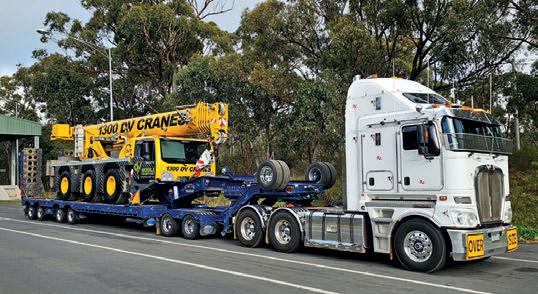

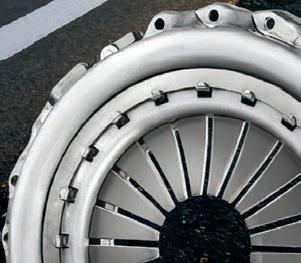














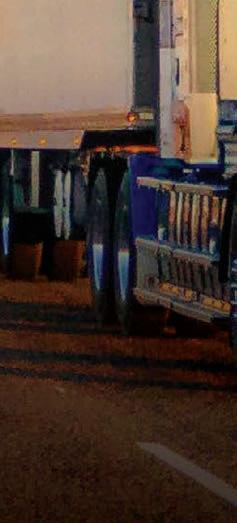
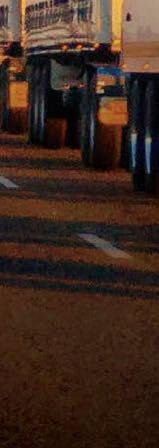



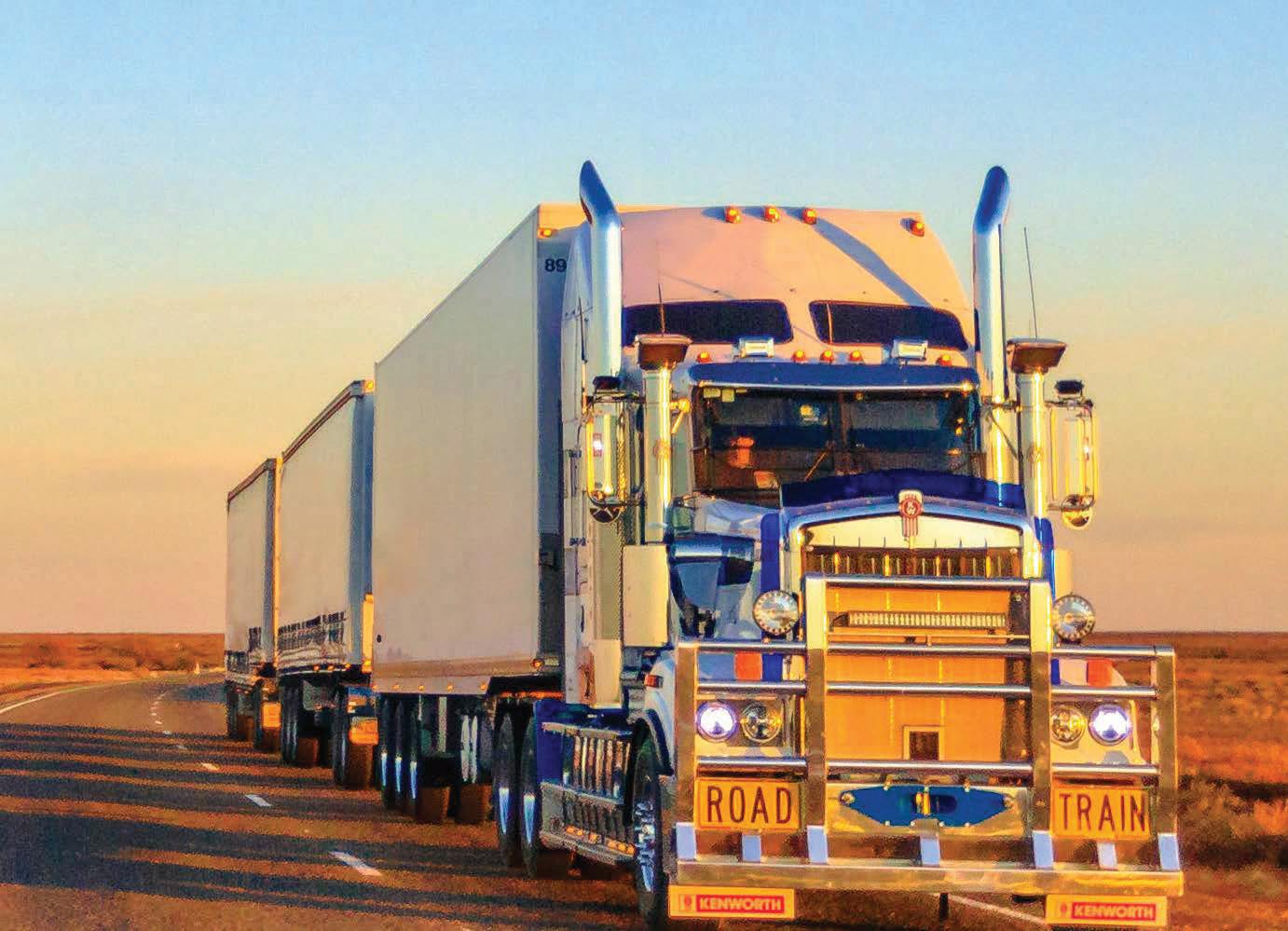




AUSTRALIANS by nature are fond of a drink, with many life events ending in a toast, or a hard day nishing up with a cold drink at the bar.
However, some Australians do have a problem with the amount of drinks when they do start, when ten is not enough, and one drink is too many. is story is directed to those people, the ones wondering if they might possibly have an issue with the drink, if the problems in their life might be alcohol-related, this one is for you.
Rex grew up in large town in Australia, one within the reach of a capital city, but still small enough away to feel comfortable and welcoming.
By his own account: “I didn’t have a bad upbringing. Played up at school a

















little, left at 15, got a job straight away, just like many of us. At 18, I found alcohol, just like many of us as well.”
As time went on though, Rex found himself drinking more and more to get through the day. Coming home from work, drinking from the early afternoon until midnight, waking up the next morning, thinking of the time he could come home from work and start drinking again.
When his 28th birthday came around, the drinking really took o , and Rex spent years drinking for effect, no longer for the taste of the alcohol.
Unable to turn up for work, Rex ceased to be able to function, and his life just became about the next thirst quencher. It all came crashing down on his 34th birth-


day with a drinking session ending in a hospital visit. Released on the promise of getting assistance with his drinking, Rex found a drug and alcohol counselor, who helped him nd somewhere to dry out.
Whilst drying out, Rex found the Alcoholics Anonymous fellowship, a 12-step program to help those who have trouble achieving sobriety on their own. at was over 18 years ago now, and Rex is still not drinking to this day. And his life has changed for the better because of it.
Alcoholics Anonymous is a fellowship of people who share their experience, strength and hope with each other, that they may help themselves and others to achieve sobriety. A spiritual program that has helped many before, and all that is required is a desire to









stop drinking.
Alcoholics Anonymous meetings can be found all over Australia and the world, with Zoom allowing people from di erent countries all over the world, at any time during the day to be amongst like minded people, to reach out for help if required.

And how was Rex’s life changed? Rex told us: “At the end of my drinking I had lost family, jobs, I had lost my life. In sobriety I have been able to achieve so much more than I though I was capable of. Trucking
across the Nullarbor, engaging life on my terms, living my own life and enjoying every day.”
Rex does understand that reaching out for help can be hard, and that Alcoholics Anonymous meetings may be hard to attend for truckies, with their schedules all over the place.
For truckies, he has this advice: “It’s not like you can dump the trailers at the bp and take the prime mover to a meeting, although I did do that once. Since the pandemic, the amount of Zoom meetings and phone
meetings has increased. is means that you can be anywhere, at any time, with the aid of a smart phone you can take part in a ‘check up from the neck up’, and be able to relate to others with the same issues as you.”
If this sounds like you, that you may want help, then check out the Alcoholics Anonymous website at aa.org.au to nd your most convenient meeting to start on the journey to sobriety. Asking for help might be di cult, but not asking for help might end up being more di cult.

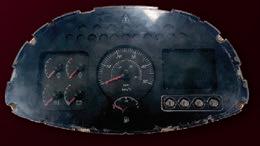


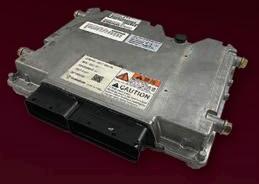

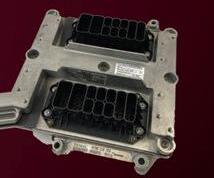
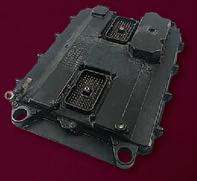
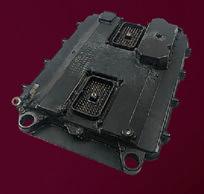





CUMMINS INTERNATIONAL CELECT PLUS ECM
Heavy-duty vehicles and trucks play a crucial role in the Australian economy. They are responsible for transporting goods and commodities across vast distances, connecting different regions, and facilitating trade. HD vehicles are used in a variety of industries, including agriculture, mining, construction, and logistics. Without HD vehicles, it would be difficult to sustain many of these industries and the wider economy.
The Cummins International CELECT Plus engine is a popular choice for HD trucks in Australia due to its high performance, reliability, and fuel efficiency. The engine’s electronic control module (ECM) is a critical component that controls various aspects of the engine’s operation, including fuel injection, timing, and emissions. When an ECM fails, it can cause a range of issues, such as reduced power, poor fuel economy, or even engine stalling.

Regular maintenance and inspections can help prevent ECM faults and ensure that the engine operates at peak performance. However if an error occurs, it is important to get the unit repaired as quickly as possible. That’s where Injectronics can help. Injectronics has a dedicated repair line for all HD units. Getting them repaired and back into the vehicle quicker, saving you down time.

and it was altogether a great experience.
JACQUELENE BROTHERTON

I RECENTLY attended my first student VET careers day for some time and what wonderful young people we had the pleasure to meet.
The future is in great hands, they were all polite, focussed, helpful and engaged. Some already were laser-focussed on their career path and some had no idea what they wanted to do, and both of those things are totally ok.
Some started the session very shy and nervous but found their voice and confidence after we played our Transport Women Australia Limited “Living the Dream” video and song.
I was accompanied by TWAL governance director Di Caldwell-Smith and we talked about the varied roles in the industry, the salary expectations and gave them a practical exercise in “pick & pack” to complete.
We spoke to them about training and related courses and that most training is on the job. We spoke to about 35 students throughout the event,
We have our Father’s Day Raffle running at the moment, tickets are available via Oktion, via this link https://oktion. com.au/event-details/459 and we would like to recognise our wonderful sponsors who have donated to this years’ raffle - Muscat Trailers, Lawrence Christoffelsz, Simone Reinertsen and RT Health, and Viva Energy Australia. The raffle will be drawn at 6pm AEST on Father’s Day.
The 2023 Driving the Difference scholarships are now open for application and application forms and criteria can be obtained by emailing to chair@transportwomen.com.
au
Now in its fifth year, this Daimler Truck Australia Pacific-backed TWAL program provides a unique opportunity for women in the transport and logistics industry and those wishing to enter the field.

Daimler Truck Australia Pacific’ continued support of this fantastic initiative allows TWAL to offer successful applicants the opportunity to undertake a course that will allow them to enhance their current role or advance their career within the transport and logistics industry. Applications are open to individual TWAL members or employees of cor-
porate members. Applications will be accepted until October 31 and recipients will be announced on November 16 and certificates presented at EOY events in the state where the winners are based.
Previous winners have been from the trucking, rail, and marine sectors, so have assisted a diverse group of women of varying ages.
Planning on our end of year functions has been continuing, and we have some learning Initiatives Breakfasts coming up in September, we have our first Canberra breakfast for quite some time on September 27, with Brisbane and Sydney to be announced shortly.
We are looking for sponsorship for all these events, if you are interested in being involved, please contact events@
transportwomen.com.au
We have some sponsors and speakers signed on for our 2024 ‘Living the Dream’ conference. We also have a great programme in the process of completion and the conference will be in a new format on two full days starting with welcome
drinks on the Thursday night and ending with an awards dinner on the Saturday night.
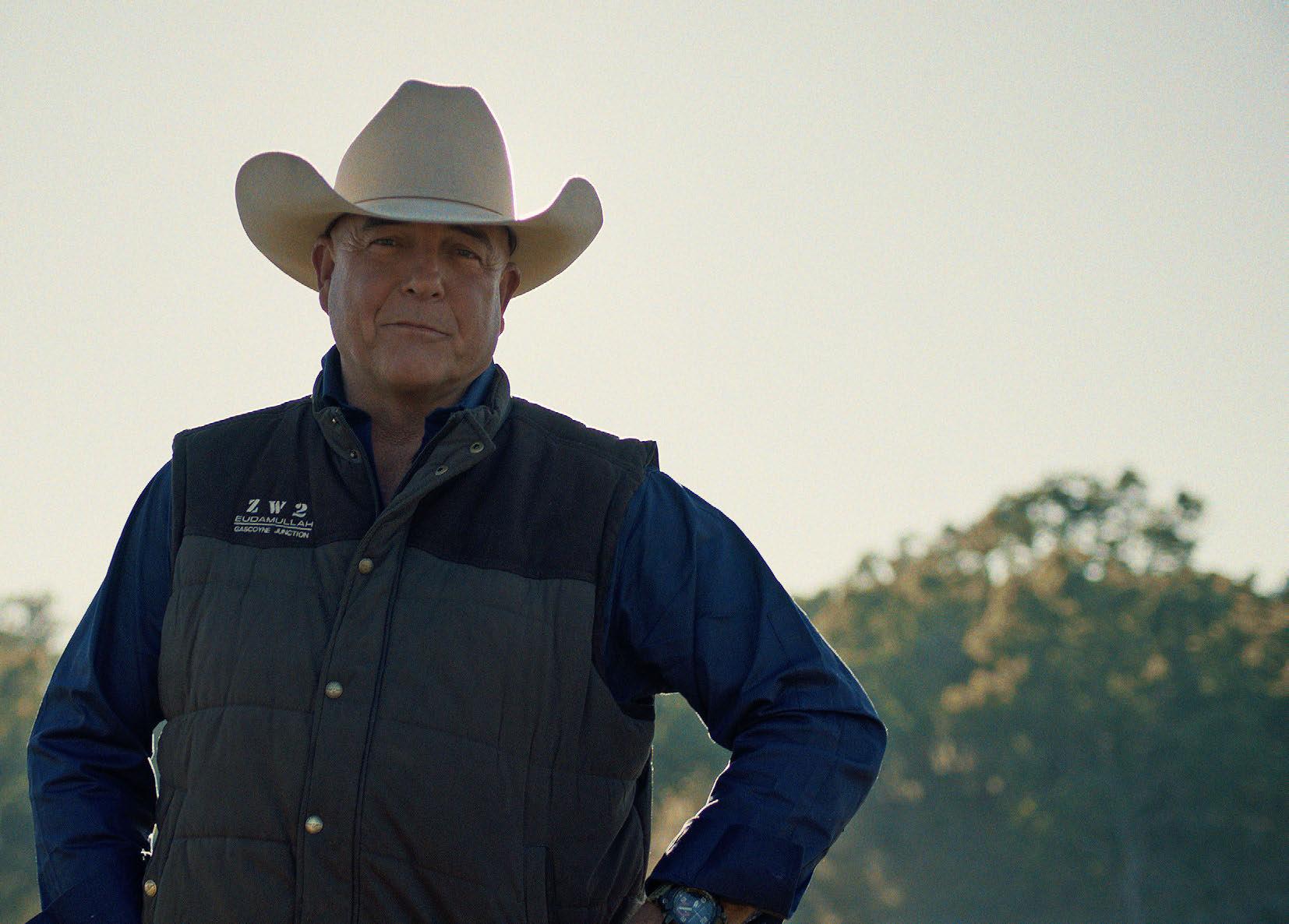
For sponsorship enquiries, please contact chair@transportwomen.com.au or phone 0417422319.
We will be bringing you the update very soon from the
Transport Women Unite Red Ball and Dream Maker Awards at Alice Springs. We have also nominated members in the Australian Freight Industry Awards, and the NatRoad Awards. I hope that we can add to the TWAL Superstars on our website.
weallneedspace.com.au
THOSE WISHING TO ENTER THE FIELD.”
ent approaches.
INDUSTRY ADVOCATE WARREN CLARK NatRoad CEO
A DAY doesn’t go by without a spate of media stories pushing hydrogen as a viable fuel alternative to diesel, or that electric trucks are entering the market, although in small numbers and for specialised purposes.
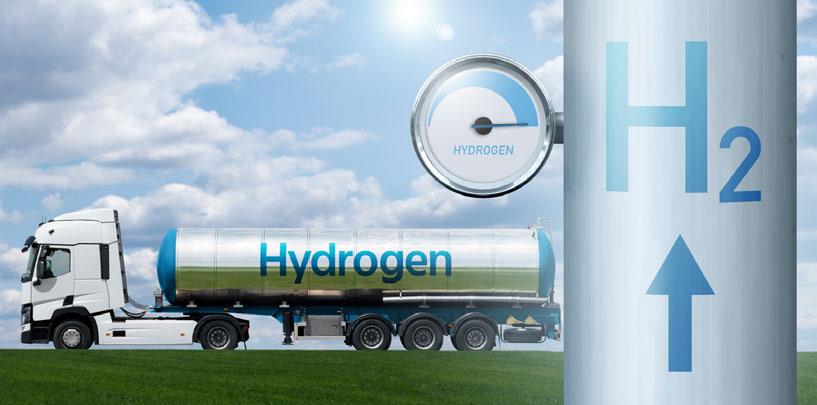
The transport sector is responsible for about 18.6 per cent of Australia’s greenhouse gas emissions. Road transport (passenger and freight) for about 85 per cent or that.

Australia has committed to a 43 per cent decrease in total emissions by 2030, and net zero by 2050.
I know most heavy vehicle operators are too busy making ends meet to be too concerned about decarbonisation.
In fact, NatRoad research released earlier this year showed that only eight percent in a sample of 158 trucking companies considered reducing their carbon footprint as ‘very important’.


The rapidly changing business environment means






that we need to start thinking about what the future looks like sooner rather than later.
Big supermarket Coles, for example, recently announced that by 2027, it will only work with suppliers that have science-based emissions reduction targets.
Whichever way you look at it, change is coming.
NatRoad is doing some substantial work in the background, looking at what our members need in terms of a roadmap to net zero. We’ll have more to say shortly, but I want to share some preliminary thoughts.
The Australian Government has committed to a
number of plans to reduce emissions in the heavy vehicle sector, including the Future Fuels and Vehicles Strategy, the National Electric Vehicle Strategy and the yet to be finalised Transport and Infrastructure Net Zero Roadmap and Action Plan.
The existing documents are big picture and thin on detail, and there’s much more work to be done.
The Future Fuels and Vehicles Strategy, for example, identifies five priority initiatives: investment in electric vehicle charging and hydrogen refuelling infrastructure and helping businesses access latest vehicle technologies.
The Electric Vehicle Strat-


egy covers all road transport and in acknowledging the challenges also poses many questions.
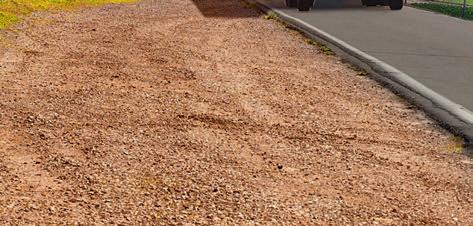
For example, what fuel efficiency standards need to be in place?
Given we import most of our trucks, how can domestic assembly be expanded to encourage rapid uptake of alternate fuel vehicles?
And with the looming loss of income from fuel excise, how should we approach a new road user charging regime?
Australia traditionally looks overseas for solutions to many policy problems - and that’s where we see some fundamentally differ-


Most US freight shipments, move less than 400km. According to the European Union’s version of the ABS, about 45 per cent of all goods transported on its roads travels less than 300km.
In the Australian context, trucks travel an average of 232km per day, but this figure hides some big extremes. In capital cities the average is less than half, but our regional and long-distance operators travel much more.
Hydrogen Fuel Cell Vehicles (FCEVs) powered by electric engines use hydrogen fuel cells as their main source of energy. Hydrogen burns without carbon emissions. Its batteries weigh much less than those in EVs and take less than five minutes to refuel.
FCEVs will have a comparable range to diesel engines but they are still under development.
Electric trucks may increasingly be viable in our cities, but our diverse and significant freight task will require multiple technology approaches so that operators can choose the best truck for the freight job.
In March 2022, the NSW, Victoria and Queensland governments announced a
landmark collaboration to create a renewable hydrogen refuelling network for heavy transport along the eastern seaboard. The Albanese government has since put more money on the table for hydrogen refuelling.
But despite all of that, a new report from the CSIRO finds that Australia risks falling behind. It says our investment in hydrogen refuelling is too slow, and major public-private partnerships have been critical overseas to stimulating demand.
Perhaps the future for road transport will be a combination of electric and hydrogen fuel technology, depending on the nature of the freight task.
The internal combustion engine will also likely continue to be needed for our heaviest and most remote freight tasks. But the supply of alternative fuels that we will need to reduce emissions for these vehicles are largely absent.
The one certainty is that the current policy framework is not yet right for trucking operators to make cost-effective decisions to decarbonise.

Both risks and costs to operators need to be reduced if emissions reduction targets are to be realised.

Rimula ULTRA works harder to reduce your costs, with up to 2% increase in fuel economy* , so you stay on the road for longer.

safety remains our number one priority.
As mentioned, it will significantly reduce reporting requirements for operators, while maintaining safe operations.
AS a modern regulator, the National Heavy Vehicle Regulator (NHVR) adopts an intelligence led, riskbased approach to identify and manage compliance with the HVNL, and to ensure we are focusing on the greatest safety risks on our roads.
In line with this, I’m happy to announce the NHVR has updated its ‘White List’ application process for operators whose fleets travel through New South Wales and South Australia, to help reduce reporting requirements for participating vehicles and companies.
The purpose of the White List is to maintain the balance between monitoring fatigue compliance

in the heavy vehicle industry and the volume of correspondence between operators and the NHVR.
The NHVR utilises the National Camera Network, which monitors the movement of heavy vehicles to identify potential travel time (fatigue) related non-compliance.
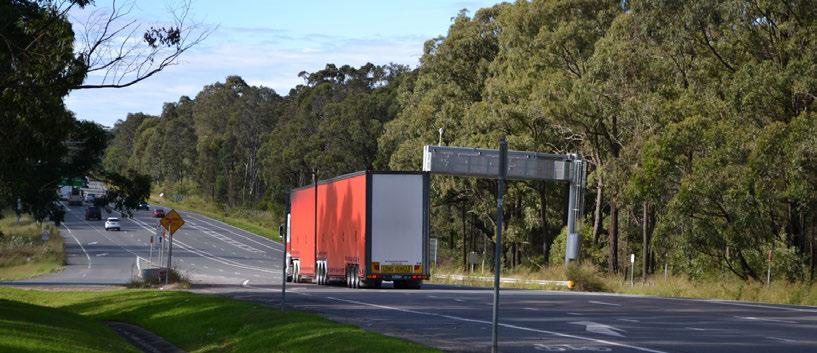
Where potential fatigue related breaches are identified through the network, the NHVR sends out correspondence seeking work diary pages and other evidence from industry to de-
termine if an offence was committed.
As part of this program, the NHVR allows industry to apply and be considered for the White List, which is essentially a list of operators who have successfully applied for exclusion from reporting on certain lowrisk fatigue-related National Camera Network incidents.
The process to apply to the White List includes the requirement for a satisfactory compliance history over a minimum of 12 months, as well as a demonstrated pat-

tern of interstate or longhaul journeys with an effective system of managing driver fatigue.


These new changes will result in a decrease in red tape for compliant operators, while ensuring road
The NHVR always aims to increase the productivity of operators, but our primary function is to ensure that the highest level of road safety is delivered for both industry, and the wider community.
It is our hope that these changes will entice operators to implement fatigue management practices in order to be considered for the White List inclusion.
At the NHVR, we are committed to educating industry around fatigue management and requirements. Fatigue is one of the leading factors that affects safety and heavy vehicle crashes, hence why these management practices are so important.
For more information, including the White List application form, visit nhvr.gov.au and search ‘camera enforcement’.
THE NHVR ALWAYS AIMS TO INCREASE THE PRODUCTIVITY OF OPERATORS, BUT OUR PRIMARY FUNCTION IS TO ENSURE THAT THE HIGHEST LEVEL OF ROAD SAFETY IS DELIVERED FOR BOTH INDUSTRY, AND THE WIDER COMMUNITY.”NHVR EXPERT PAUL SALVATI, NHVR Chief Operations Officer The NHVR utilises the National Camera Network.
THIS tragic tale is dedicated to my mate Des, a veteran truckie who, not too long ago, lost his epic battle with bowel cancer.
Desi was old-school. A hard working, tough, honest as the day’s long kinda bloke, who handled and hauled cattle for a living.
On the rare occasion that bowel cancer screening was mentioned round Des, his response was always the same: “There’s NO WAY anyone’s gonna stick anything up MY BUTT!”
Famous last words from an otherwise sensible bloke who suffered immense, unnecessary pain and humiliation before his senseless premature death.
Rather than give you the usual clinical details of how to do a home bowel screening test, I thought I’d walk you through the reality of watching Des live (and die) with bowel cancer as a truckie out on the road.

Six years ago, sick of eating Quick-Eze 24/7 for his chronic indigestion, Des headed off to his doctor who immediately booked him in for a long-overdue colonoscopy.
Still determined no one was going to stick ANYTHING up his butt, Des finally gave in to family pressure and had the procedure done.
Having had a colonoscopy or two myself, I can confirm it’s a breeze - even for the ‘sookiest’ of truckies, so let’s take a look at what really happens so you can ‘man-up’ and take the test.
A few days before, you start eating a low fibre diet - lots of white bread, custard, icecream, butter etc. Nothing difficult there.
The night before the procedure, you drink two litres of sweet cordial-like prep - then make sure you stay close to the loo.
After about an hour, minor rumblings eventually launch a bowel explosion that gives you THE best clean-out you’ll ever have!
My advice is - turn up the music, shut the toilet door and make sure you have plenty of
loo paper on hand.
The next morning, lying on a hospital bed wearing one of those gorgeous backless hospital gowns, you’ll make a few bum jokes and have a brief laugh with nursing staff as they administer your anaesthetic.
Next thing you’re awake, it’s all over, you have a clean bill of health, you’re probably a well-earned 2kg lighter and you’re back in your truck earning a living for another three years before it’s time to do it all again.

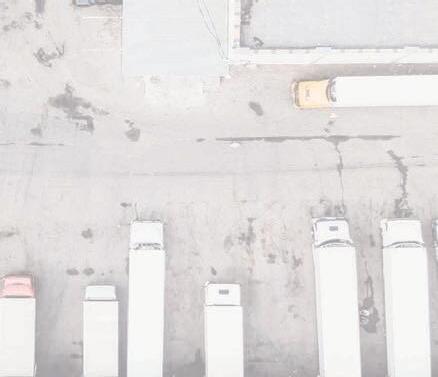
Fifteen years past the recommended age for a first colonoscopy (around 50), Des woke from HIS anaesthetic to the devastating news that he had Stage 4 inoperable bowel cancer.
For the next five years, I
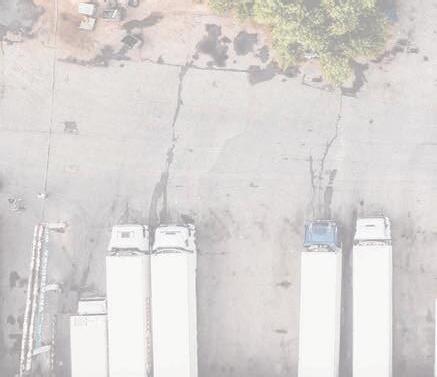
watched this strong, proud, stubborn man wither away to a shell of his former self.
Radiation and chemo took a devastating toll that caused hair loss and indescribable, never-ending nausea.
Des also lost control of his bowel, so had to wear adult nappies and deal with the embarrassment of smelling like poop.
Refusing to give up trucking, bowel cancer made sure he could only drive on the western side of the Great Dividing Range because when that dreaded feeling hit, he had to pull his rig over and jump out before he soiled himself.
Too much traffic and too many prying eyes the eastern side of the range for him to do that.
When his diseased bowel flared up, Des lay for days and nights in agonising pain on the floor wrapped around the toilet so he didn’t have far to go … to go.
Thoughts of suicide danced constantly in his head.


His world diminished to him and the toilet - because he was too embarrassed to venture into social situations where the risk of soiling himself was high.
Too scared to eat - because what goes in must come out, when this 6ft 2in giant of a man finally succumbed to this devastating disease, his voice was no louder than a whisper, and his weight was down to 50kg.
Des’ last five years on this earth were filled with immense, avoidable pain, suffering and
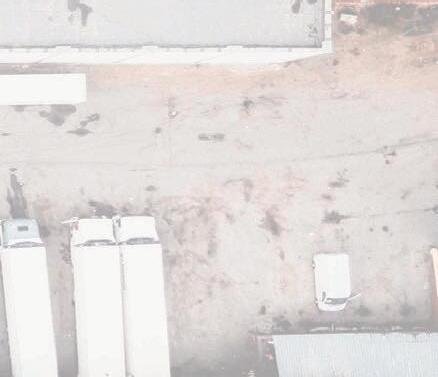
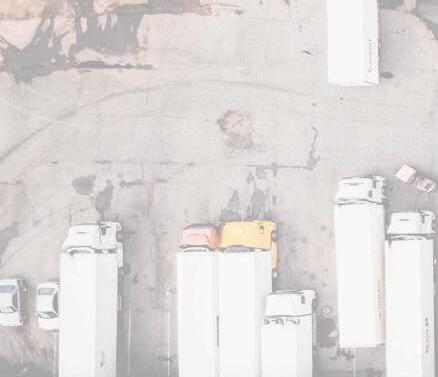
embarrassment - all because he was determined no one was going to stick anything up his butt.
Bowel cancer is on the rise and while there’s no single cause, excessive alcohol intake, poor diet, smoking, not enough exercise and a family history of bowel cancer can all increase the risk.
Thankfully when detected early, more than 90 per cent of cancer cases can be successfully treated – so don’t be like Des.
Do yourself a favour, call your doctor, get yourself booked in for a colonoscopy then once it’s done and dusted, go live your best life secure in the knowledge that someone sticking something up your butt could save your life, not end it.

FOR THE NEXT FIVE YEARS, I WATCHED THIS STRONG, PROUD, STUBBORN MAN WITHER AWAY TO A SHELL OF HIS FORMER SELF.”
Though




 BY DANIELLE GULLACI
BY DANIELLE GULLACI
HAVING gotten her start in trucks in the mines 14 years ago, Jacqueline Larkin has just completed additional heavy vehicle training through the Foot in the Door program, as she looks to further her skills.
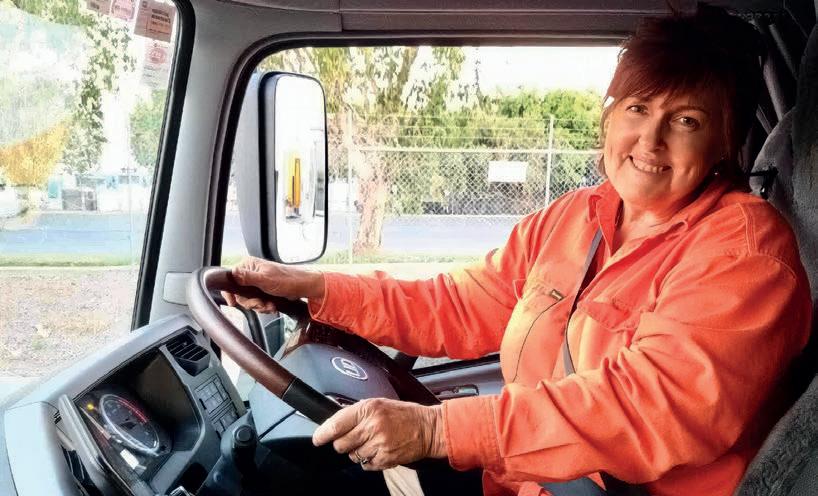
The Foot in the Door program is an initiative of Women in Trucking Australia (WiTA), officially launched earlier this year, that aims to support inexperienced female heavy vehicle drivers into trucking careers. It’s been funded by the National Heavy Vehicle Regulator’s (NHVR) Heavy Vehicle Safety Initiative (HVSI), supported by the Federal Government.

Larkin came into the program with an open MC licence, but she had very little experience.
Through the program, she was able to complete a refresher course with Bris-

first started
bane Truck School to gain further training in areas such as uncoupling and coupling trailers, reversing and road positioning. Currently driving a truck mounted attenuator
on Queensland’s Sunshine Coast, which she’s been doing for about six months, Larkin is hoping to eventually move into full-time HC work in south-east Queensland.
As Larkin explained, “When I got my open HR licence, I did work in the mines in Blackwater, it was mainly rear dump trucks, moxies and a water truck. When my mum became ill,
I got a government job with RoadTek, so I could support mum for a few years. Then when I met my ex-partner a couple of years ago, who was driving a B-double, he inspired me to keep going with my driving career.”
But for Larkin, a passion for trucks is something that started very early on. “My dad was an interstate truck driver for many years, so it’s in the blood,” she said, as she spoke of fond childhood memories travelling in his truck.

“I got to go to Perth, Melbourne… I’d go to sleep in Brisbane and wake up in Sydney. My brother and I loved it. When Dad used to haul grain, he’d make it a bit of a holiday for us and pull up roadside, with billy tea, he’d make sausages and veggies on the stove, I loved that life on the road,” she recalled.
“As a young girl growing up, it was like a romance of the road, seeing things, going through the different
The Opportunity
The Opportunity
Fulton Hogan Transport currently have a vacancy for a tanker owner driver to join our transport team based out of Dry Creek in South Australia. Reporting to the WA/SA Transport Manager, your primary duty will be the transportation of bitumen products to our plants and customers.
Fulton Hogan Transport currently have a vacancy for a company truck driver to join our transport team based out of Hazelmere WA. Reporting to the WA Transport Manager your primary duty will be the transportation of bitumen products to our plants and customers.

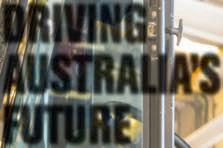

You will be Responsible for
You will be Responsible for
• Adhering to all Safety procedures to operate the Tanker
• Adhering to all Safety procedures to operate the Tanker

What we need from you?
What we need from you?


• Dangerous Goods License
• Dangerous Goods License








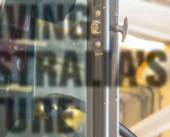
• MC Driver License
• MC Driver License

• Ability to work efficiently and effectively to deadlines
• Ability to work effectively to deadlines
• Accurate completion of all trip paperwork
• Accurate completion of all trip paperwork
• Work in accordance with all Fatigue Laws
• Work in accordance with all Fatigue Laws
• Ability to work as part of a small team
• Ability to work as part of a small team
• Experience in the Asphalt industry an advantage
• Experience in the Asphalt industry an advantage



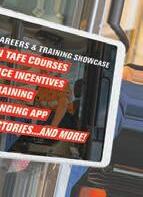

• Willingness to travel and work away when required
• Willingness to travel and work away when required
• Delivering hot bitumen to required sites and ensuring all safety regulations are adhered to during transportation
• Delivering hot bitumen to required sites and ensuring all safety regulations are adhered to during transportation
We Offer
We Offer
• Full time employment

• Continuous work
• Full training and PPE
• White Prime Mover (Late Model) capable of towing a B-Double or Double Road Train


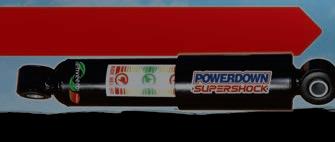
• Fulton Hogan Transport will provide training and all specialised PPE.
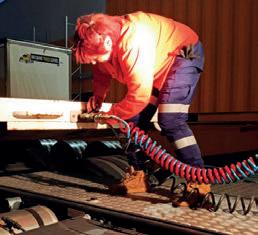










• Remuneration is paid twice monthly.
Fulton Hogan Philosophy
• If you are willing to work the opportunity is there to develop a very profitable and sustainable business for yourself.
• Fixed term cartage contract






Fulton Hogan Philosophy

We build and maintain critical infrastructure that connects and enhances communities across Australia, New Zealand and the Pacific. Everything from roads and bridges, to airports and utilities. We’re committed to ensuring the Good Work we do will make a positive difference to the quality of life for our people, our customers and the communities we all call home. Our continued success relies on generating new and diverse ideas, which is why our ‘Good Work’ culture encourages ownership and empowerment, while never forgetting the importance of balancing life’s priorities.
Sound like you?
If this sounds like and you would like to help build on our Good Work culture, then we would like to hear from you.
We build and maintain critical infrastructure that connects and enhances communities across Australia, New Zealand and the Pacific. Everything from roads and bridges, to airports and utilities. We’re committed to ensuring the Good Work we do will make a positive difference to the quality of life for our people, our customers and the communities we all call home. Our continued success relies on generating new and diverse ideas, which is why our ‘Good Work’ culture encourages ownership and empowerment, while never forgetting the importance of balancing life’s priorities.
Sound like you?
In the First instance please contact andrew.green@fultonhogan.com.au
WA Transport Manager 0498 866 085


If this sounds like and you would like to help build on our Good Work culture, then we would like to hear from you.
In the First instance please contact Peter.Hug@fultonhogan.com.au
Manager
she
driving trucks over a decade ago, Jacqueline Larkin recently completed additional training as she seeks to further her career.
I WANT TO GET TOTALLY COMPETENT IN THE SEMI WORK, KNOWING I CAN GET IT INTO ANYWHERE. IT’S ABOUT COMPETENCY BEFORE I’D CONSIDER THE BIGGER TRUCKS.”
JACQUELINE LARKINLarkin applied for the Foot in the Door program to help further her skills.
towns. My dad used to haul a lot of citrus out of Golden Mile Orchard at Mundubbera to the Sydney Markets.”
She says she was always keen to help out if it meant she’d score a ride in the truck. “They’d load the trucks with boxes and boxes by hand. They were hard days, but also fun days too, we’d help roll the tarps out, and when he got home, my and brother and I would have to wash the truck. We’d be up on top of the trailer trying to lean across to wash the top of the cab with a broom. My brother would disappear so I’d be left doing it myself. Being the obliging oldest daughter, I’d keep going – but it would mean I’d get a ride in it, so it was worth it.
“I associate a lot of adventure and hard but good times from my early exposure to trucking through Dad.”
Larkin has held her MC licence for close to 18 months. She also did a stint driving a powder tanker and an agitator for Hanson in Brisbane.
She says she wanted to gain more experience driving semis. “I want to get totally competent in the semi work, knowing I can get it into anywhere, knowing that I can drive the 18-speed anywhere. It’s about competency before I’d consider the bigger trucks,” she said.

“For me, I needed further practice in reversing and hooking up the trail-

She currently drives a truck mounted attenuator. ers, and getting my BFM as well. The Brisbane Truck School was able to fit me in very quickly. They were very good, professional and supportive. I spoke to Neil and he outlined a plan for me over the phone and spoke to me for about 40 minutes when I first phoned them.
“It’s about learning the mechanical side of your truck too. I do like the older trucks, and knowing your engine braking, the safety

equipment, correct gear selection, different loading and handling capabilities, fatigue management, weight distribution, getting your head around all the aspects, it’s just constant learning. You need to be able to transfer that into the practical.
“This Foot in the Door program is a really good way to get into it. We can drive these things but just need a bit more in the way of training and mentoring.”
THE Australian Government will provide $22 million in funding for a Heavy Vehicle Training and Experimentation Precinct at Wodonga TAFE in Victoria.
This investment will support construction of a heavy vehicle obstacle circuit, a heavy vehicle repair and maintenance workshop, a main client building and car park, along with upgrades to external infrastructure, and the installation of a state-ofthe-art cyber range for simulated courses.
The upgraded facility will support Wodonga TAFE in expanding its Heavy Vehicle Technology Program, which is expected to attract up to 1200 students in four years, and generate more than $70 million in gross regional product.
“Our $22 million investment in this truly trailblazing precinct will overhaul how we build new capability in the transport and logistics industry into the future,” said Minister for Regional Development, Local Government and Territories, Kristy McBain.
“This one-of-a-kind facility will enable Wodonga TAFE to deliver specialist courses that will attract more apprentices and trainees –who will become our next generation of highly-skilled heavy vehicle operators.”
Assistant Minister for Infrastructure and Transport, Senator Carol Brown added, “The upgrade of the Logic Park campus will provide a range of innovative facilities that will expand on the learn-
ing opportunities within the Heavy Vehicle Technology Program, and address skills shortages across this key national industry.

“This enhanced learning environment will improve the efficiency of heavy vehicle operators, and mean that they are equipped with advanced skills to improve their overall safety on our roads.”
The Victorian Government has also backed the project, with $450,000 in funding delivered last year through Regional Development Victoria, to support Wodonga TAFE in fast-tracking the planning stage.
Construction of the facility will commence in 2024 and is expected to be completed in 2026.

73 Formation St, Wacol
Easter Group, located in Wacol, provides time sensitive road transporting solutions to many companies throughout Queensland, New South Wales, South Australia and Victoria. We are a family owned business, operating since 1976. We currently have the following positions available:
OPERATIONS ALLOCATORS (Brisbane based only)








You will be required to work on a rotating roster including Days-Nights-Weekends
Previous Operations experience preferred.
LOCAL,
(Brisbane, Sydney, Melbourne and Adelaide Based)
Come and work for us as we are committed to:
• Training and further education

• Your safety
• Maintaining an impressive Fleet
On offer arepermanent full time and roster positions including paid leave entitlements and public holidays. Drivers will need to be available to be scheduled for work falling across the 7 days of the week.

The successful Applicant will:
• Hold a current MC licence (minimum two years)
• Have knowledge of the HVNL and Load Restraint
• Be professional
• Be reliable
To apply for the Operations/Driver positions please contact Operations Manager or by emailing your resume to
WORKSHOP MECHANICS & TYRE FITTERS WANTED (Brisbane based only)
To apply for Mechanic positions please forward your resume to Workshop Manager via email to employment@kseaster.com.au
















































































